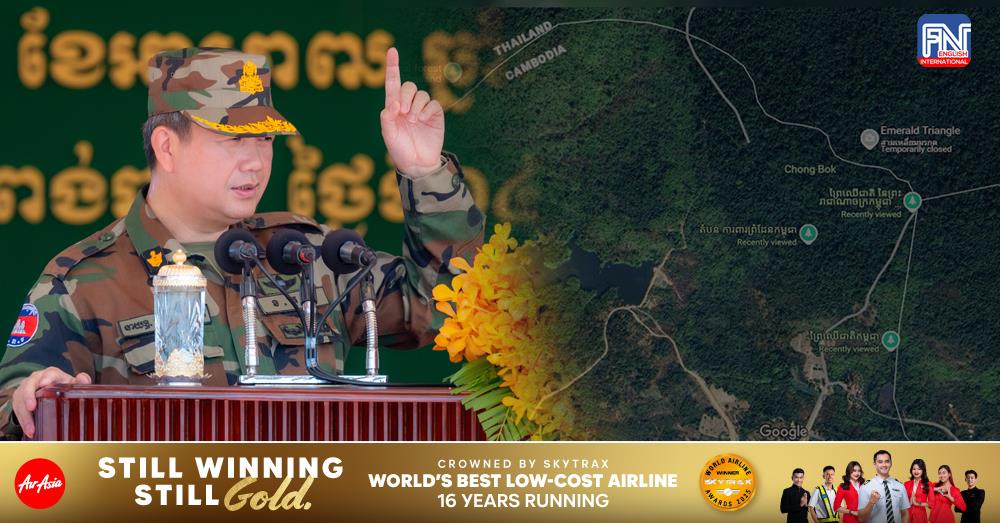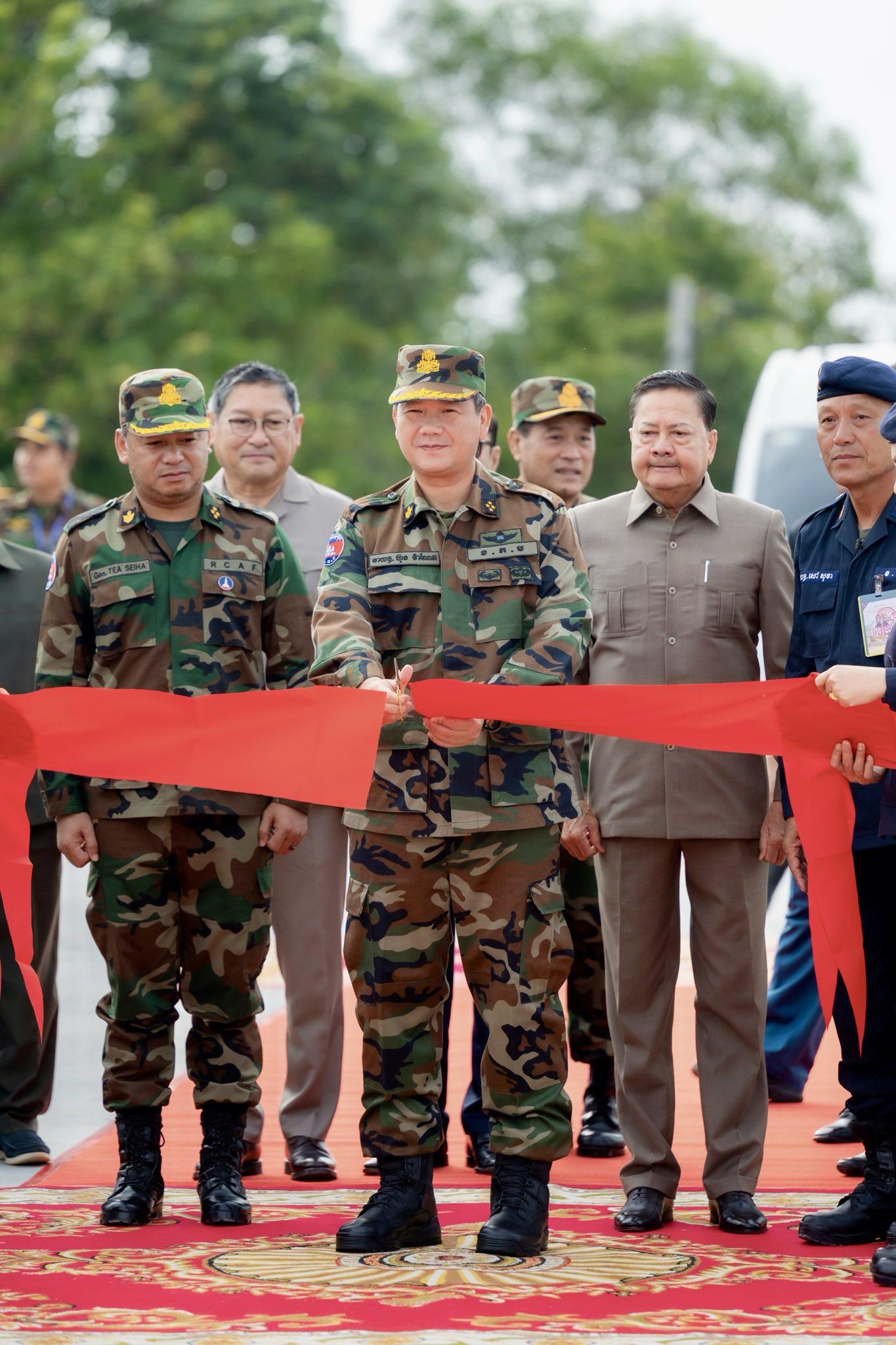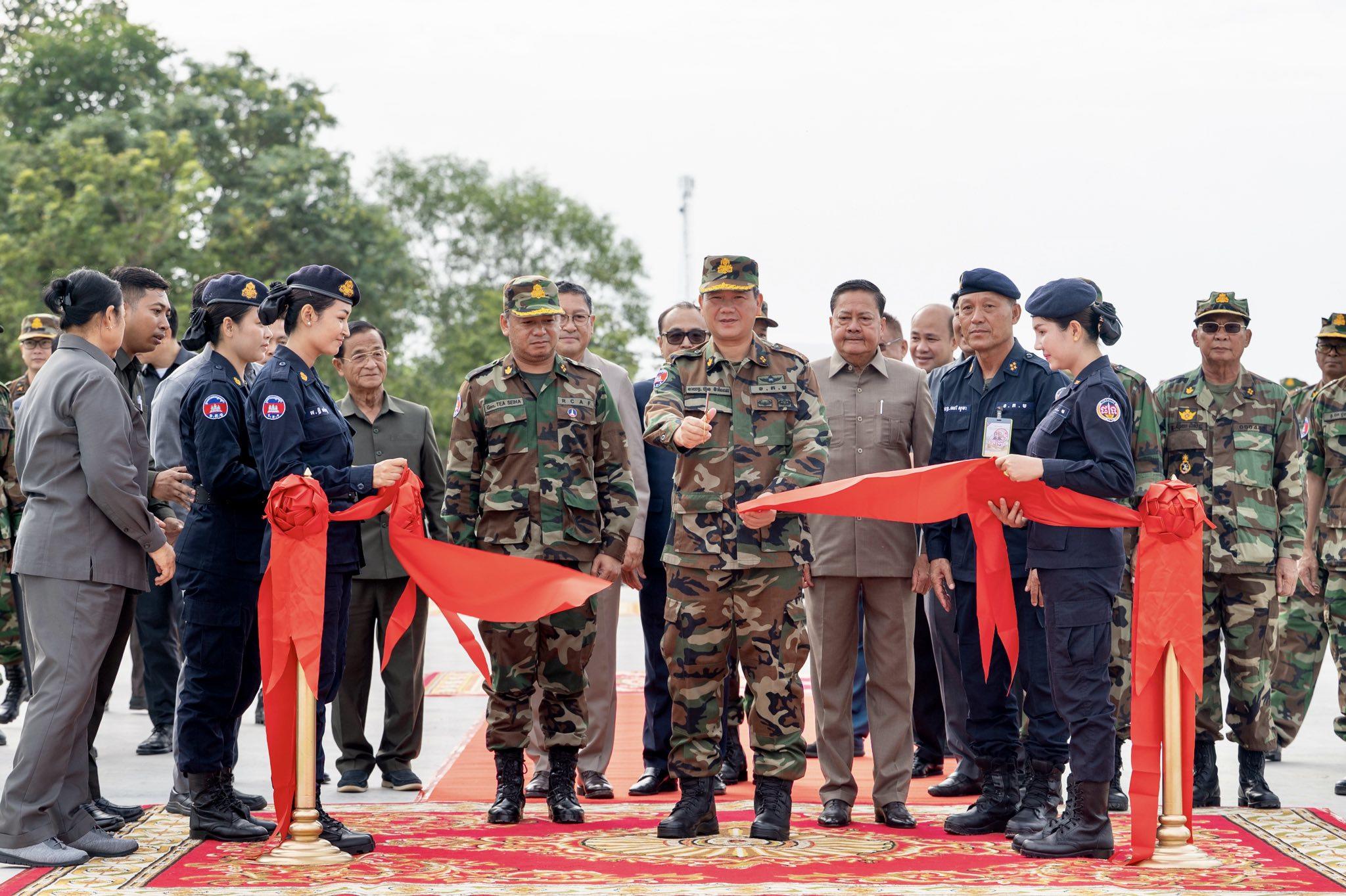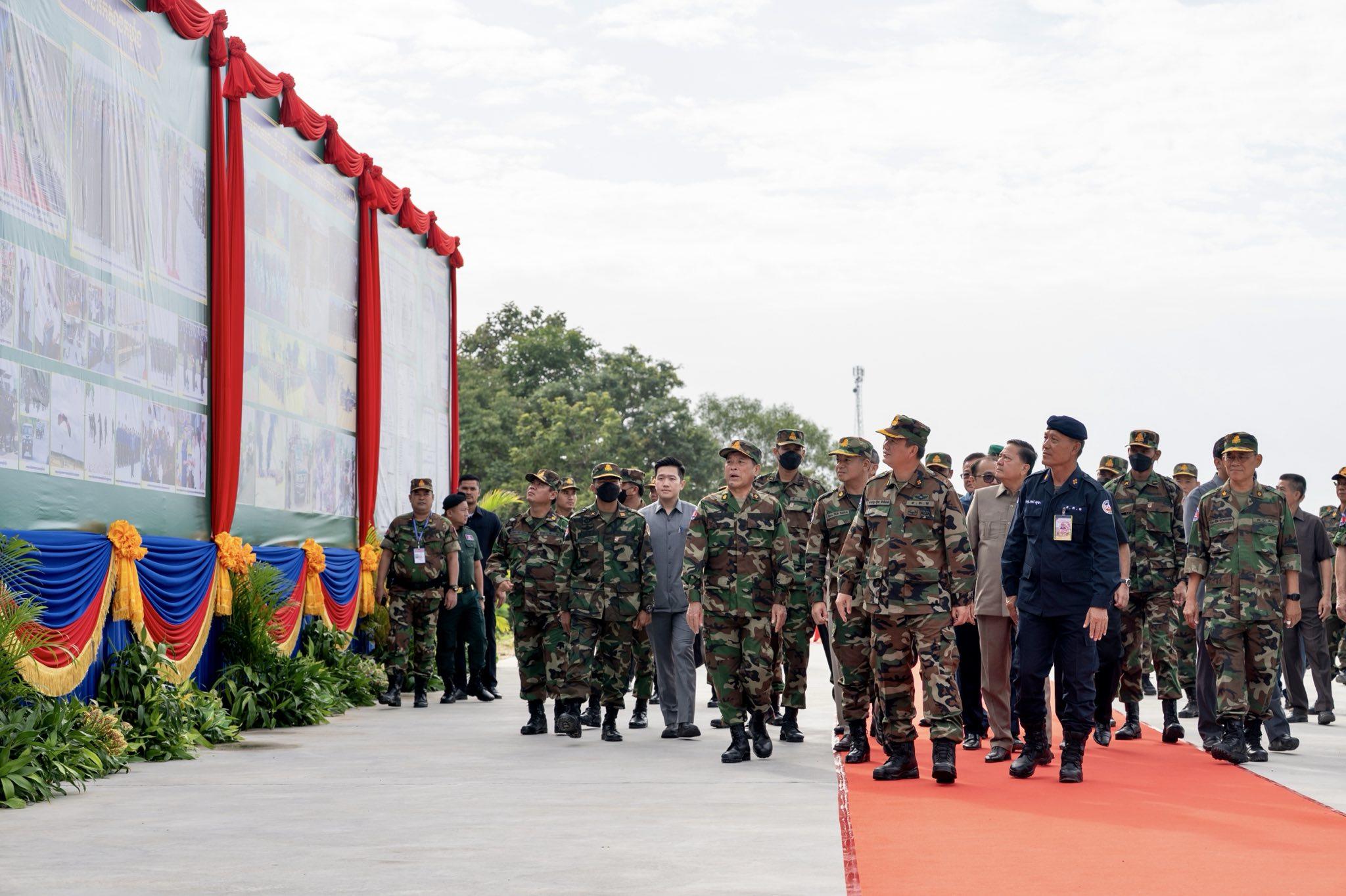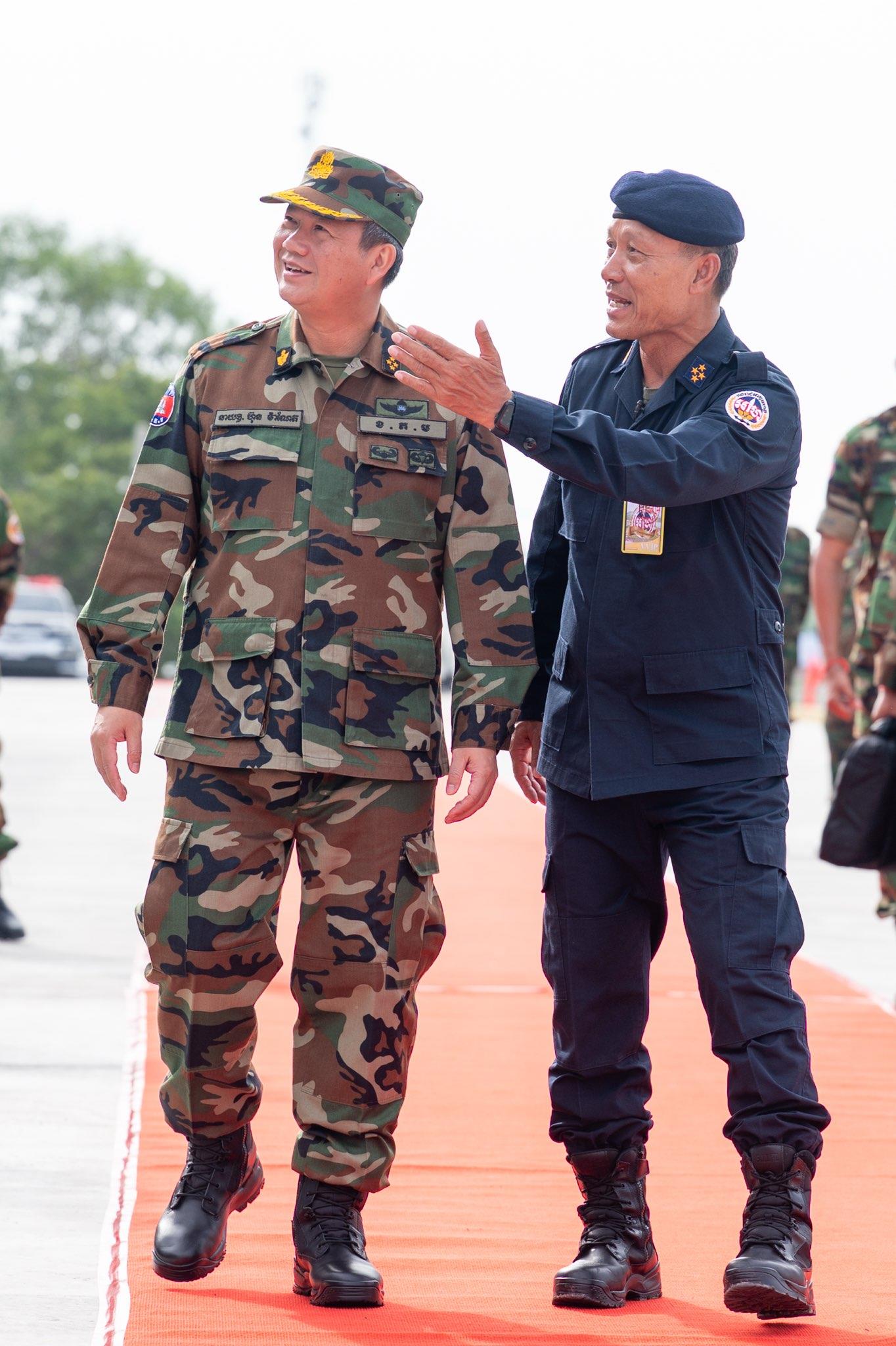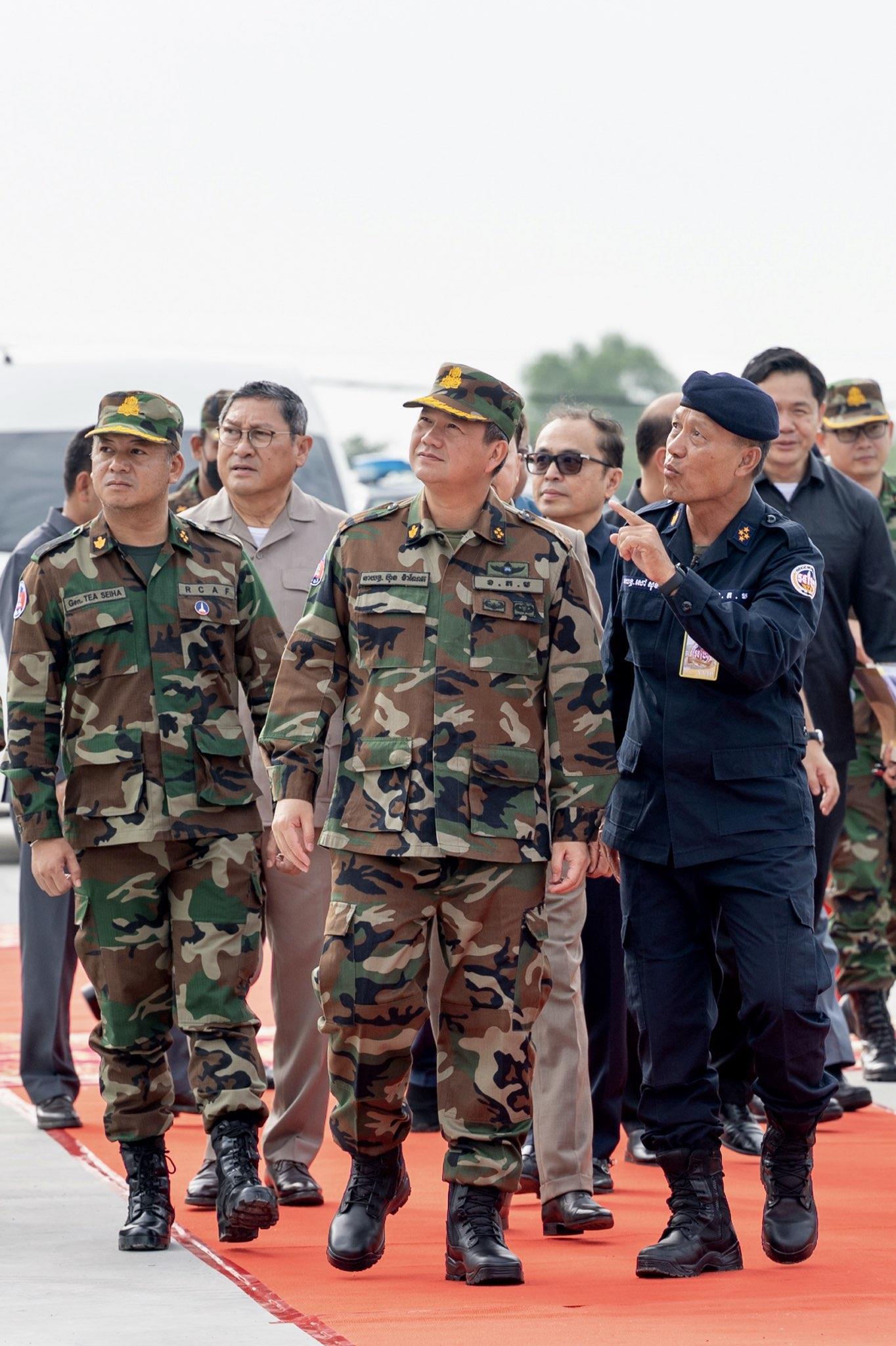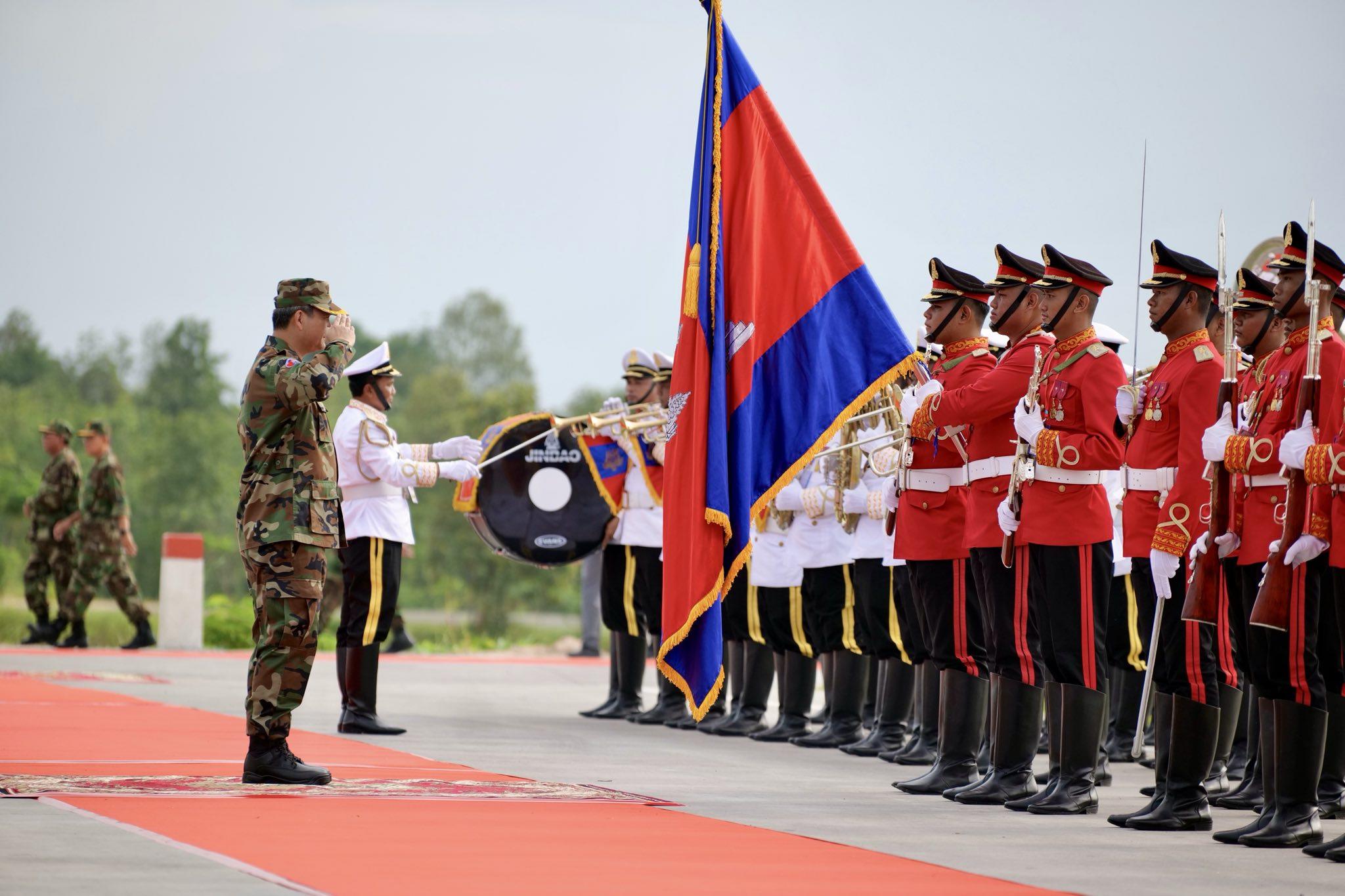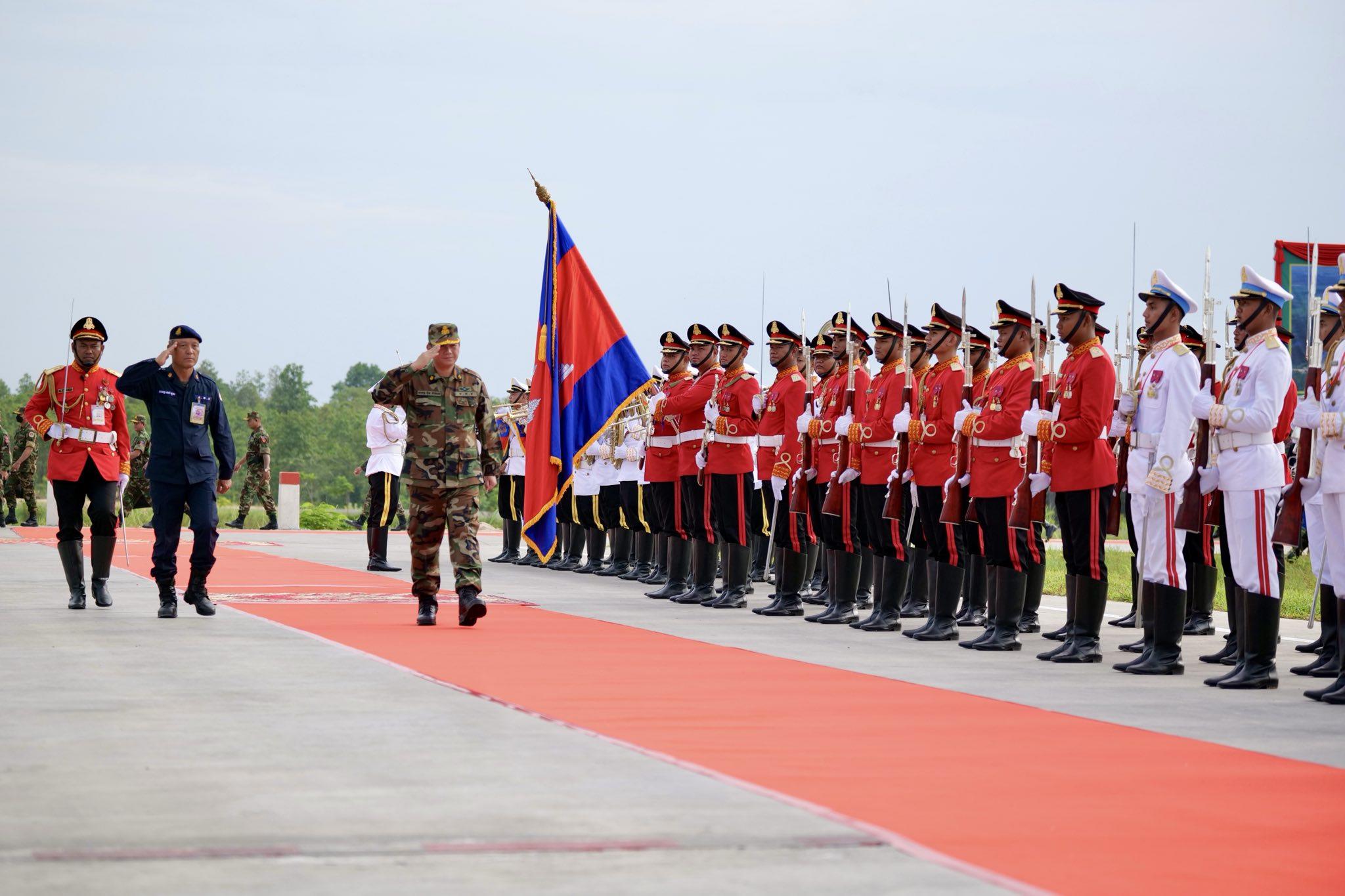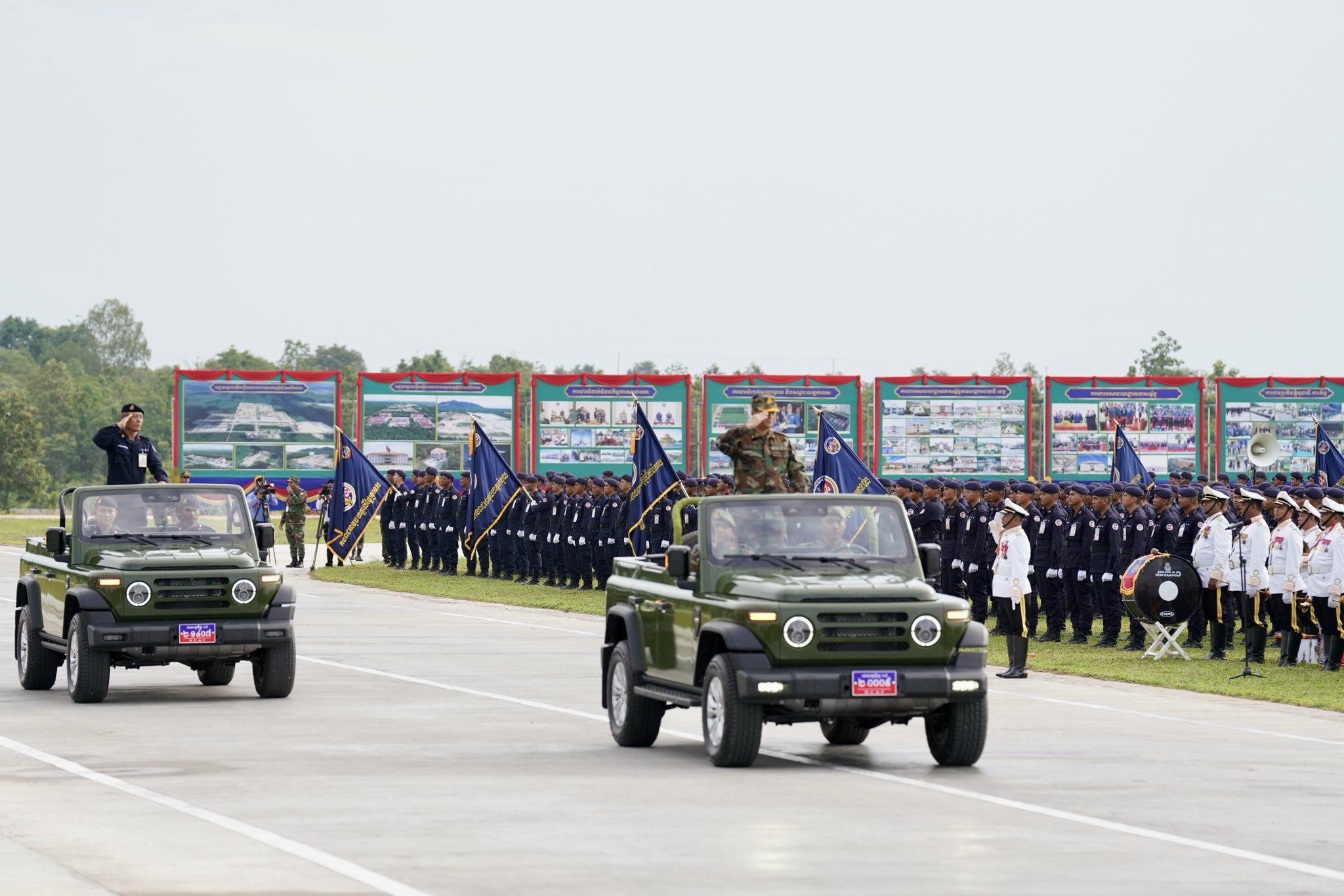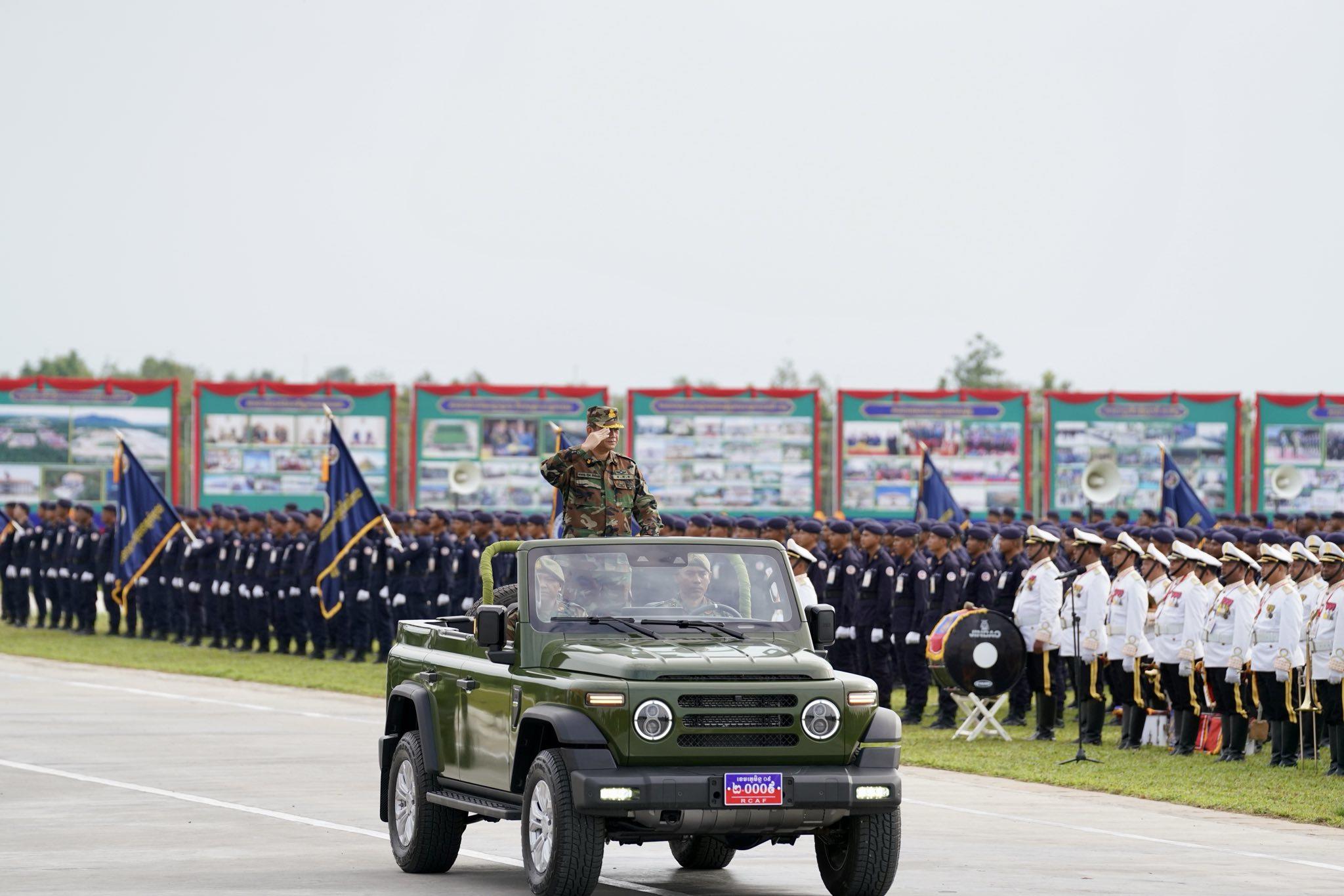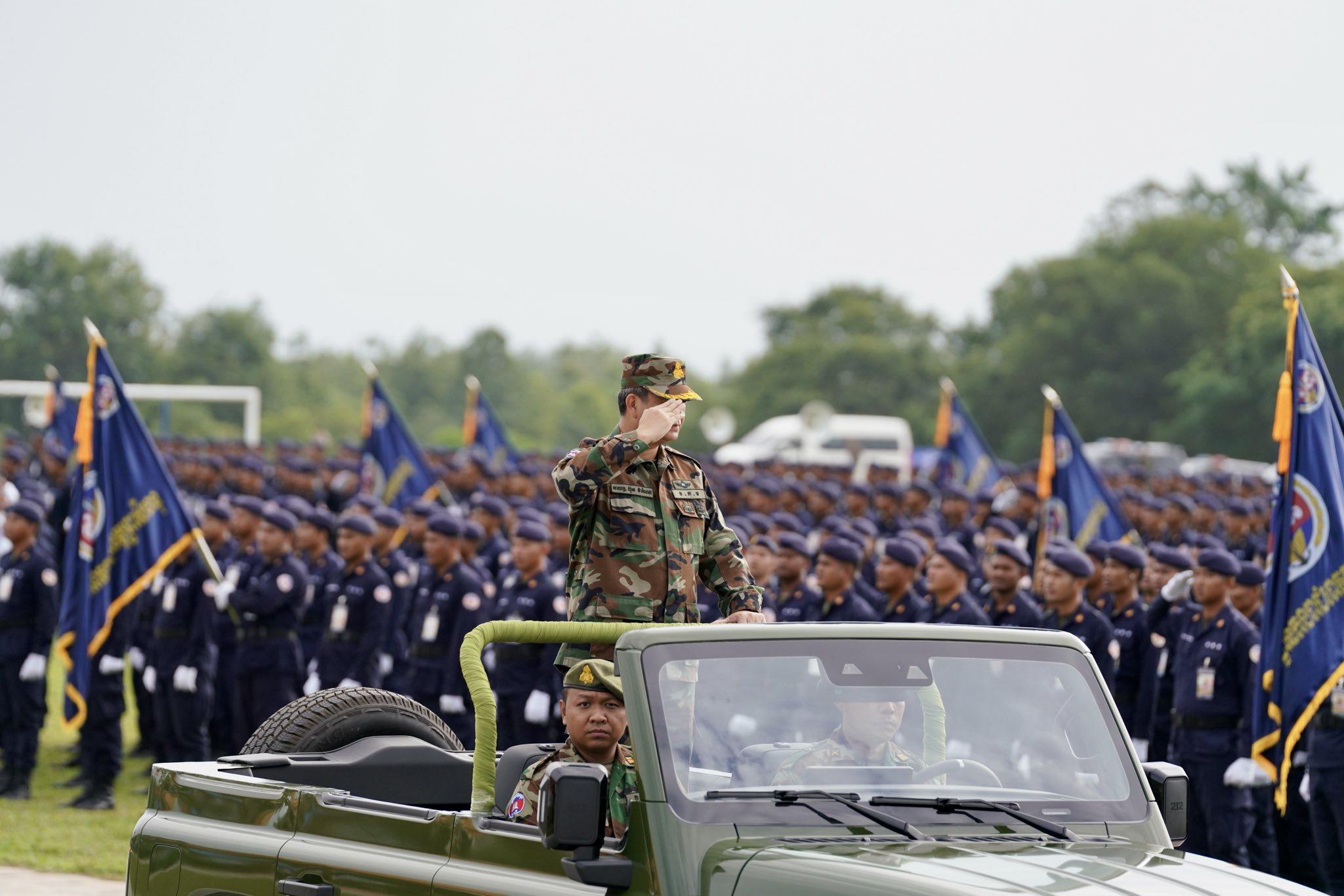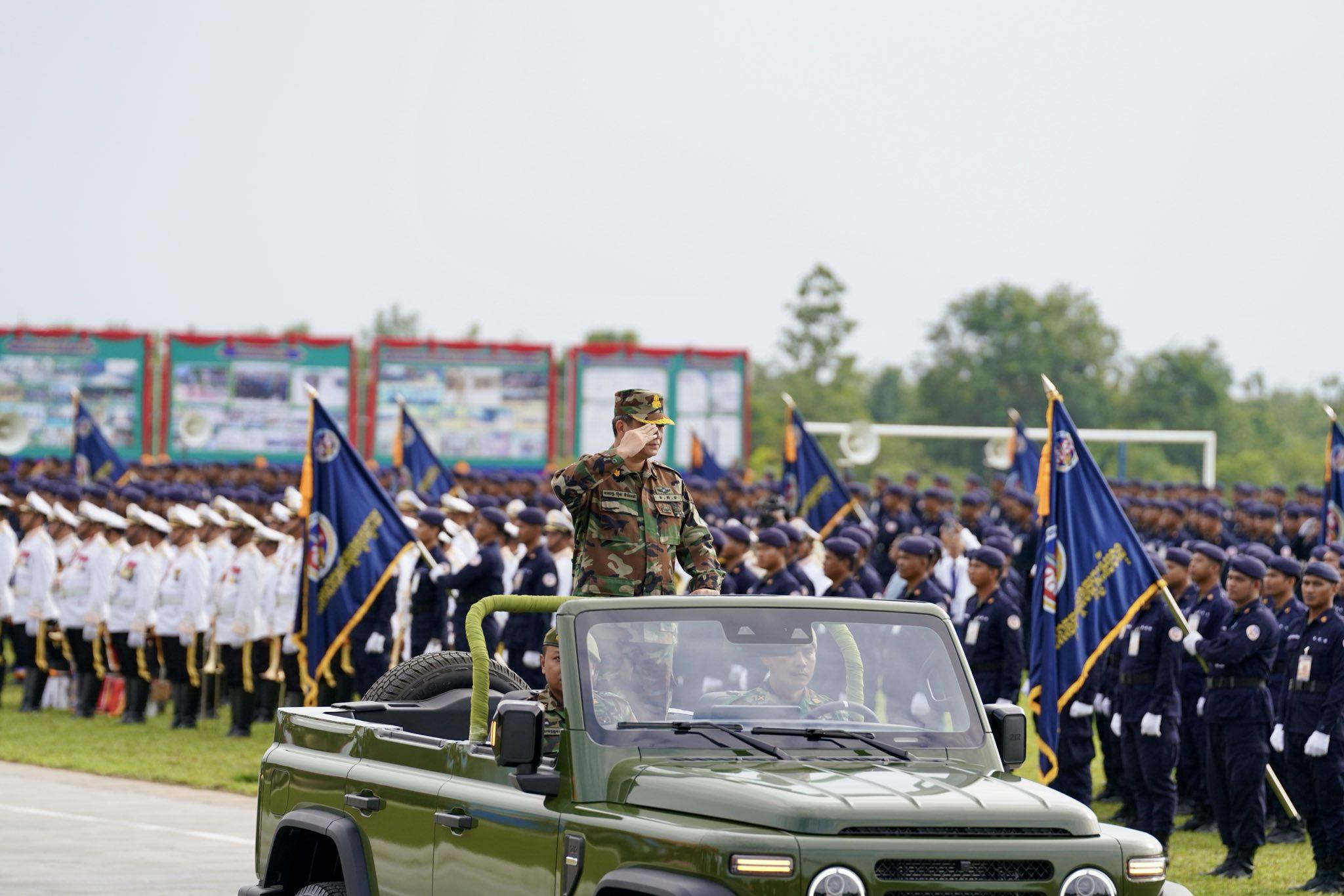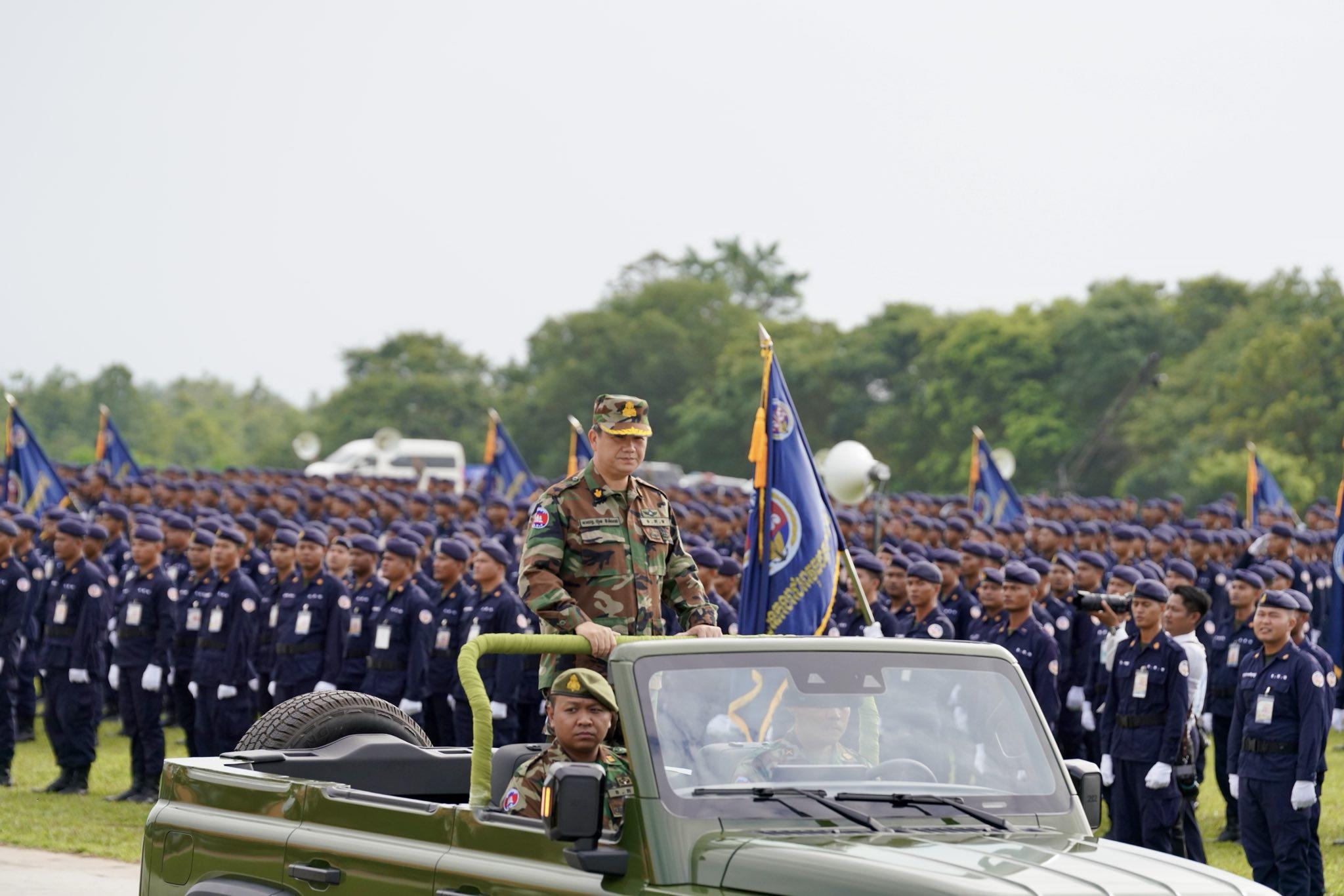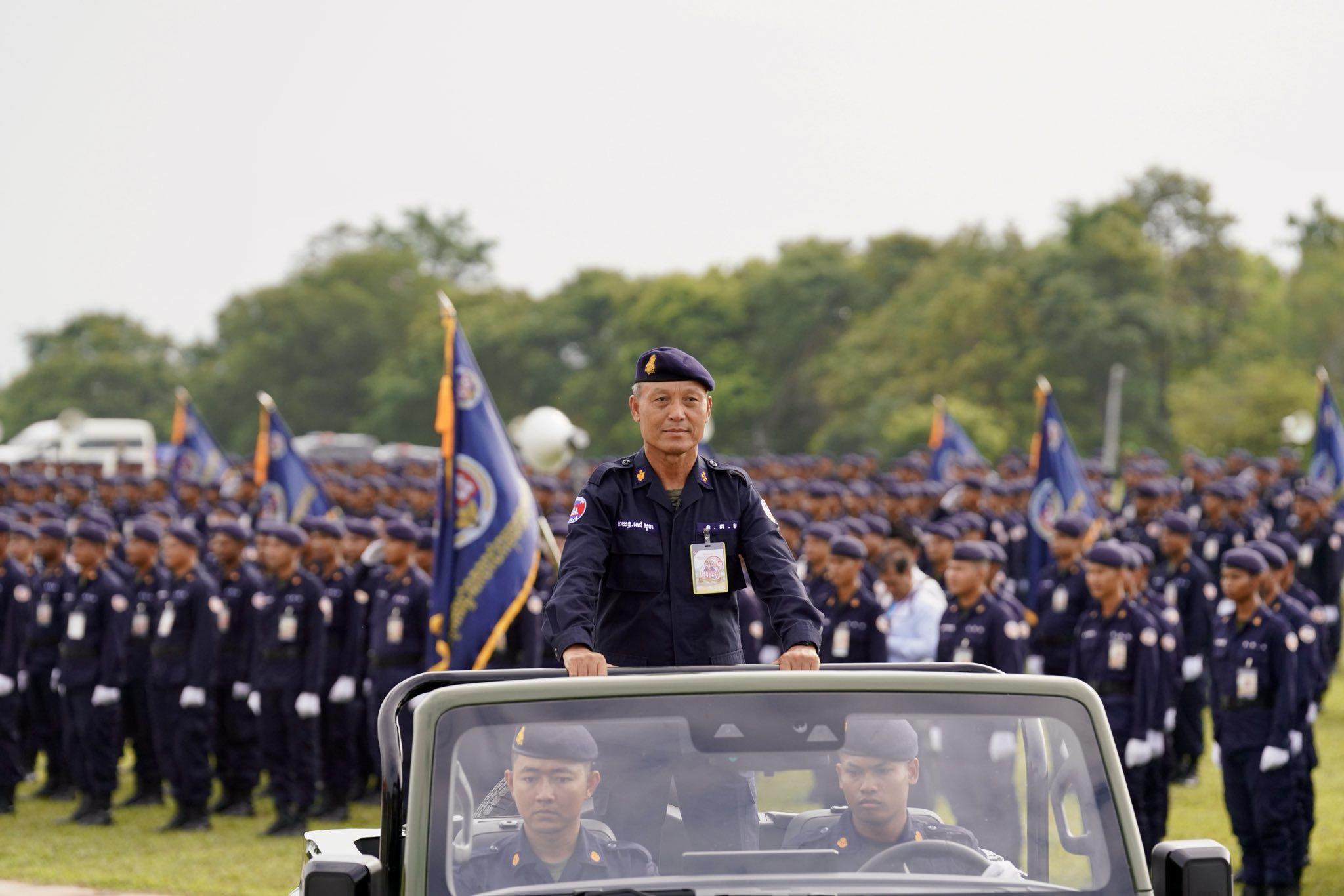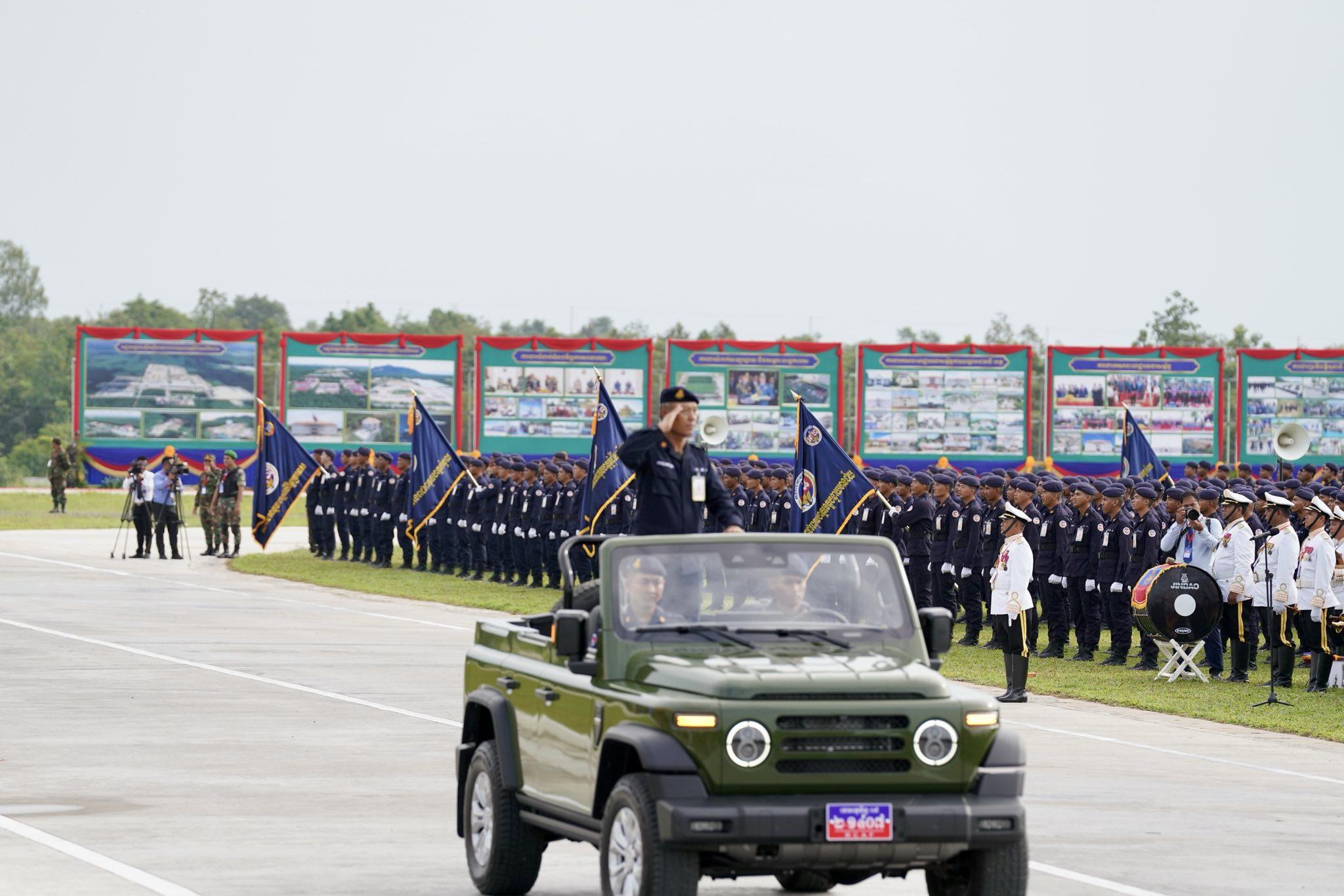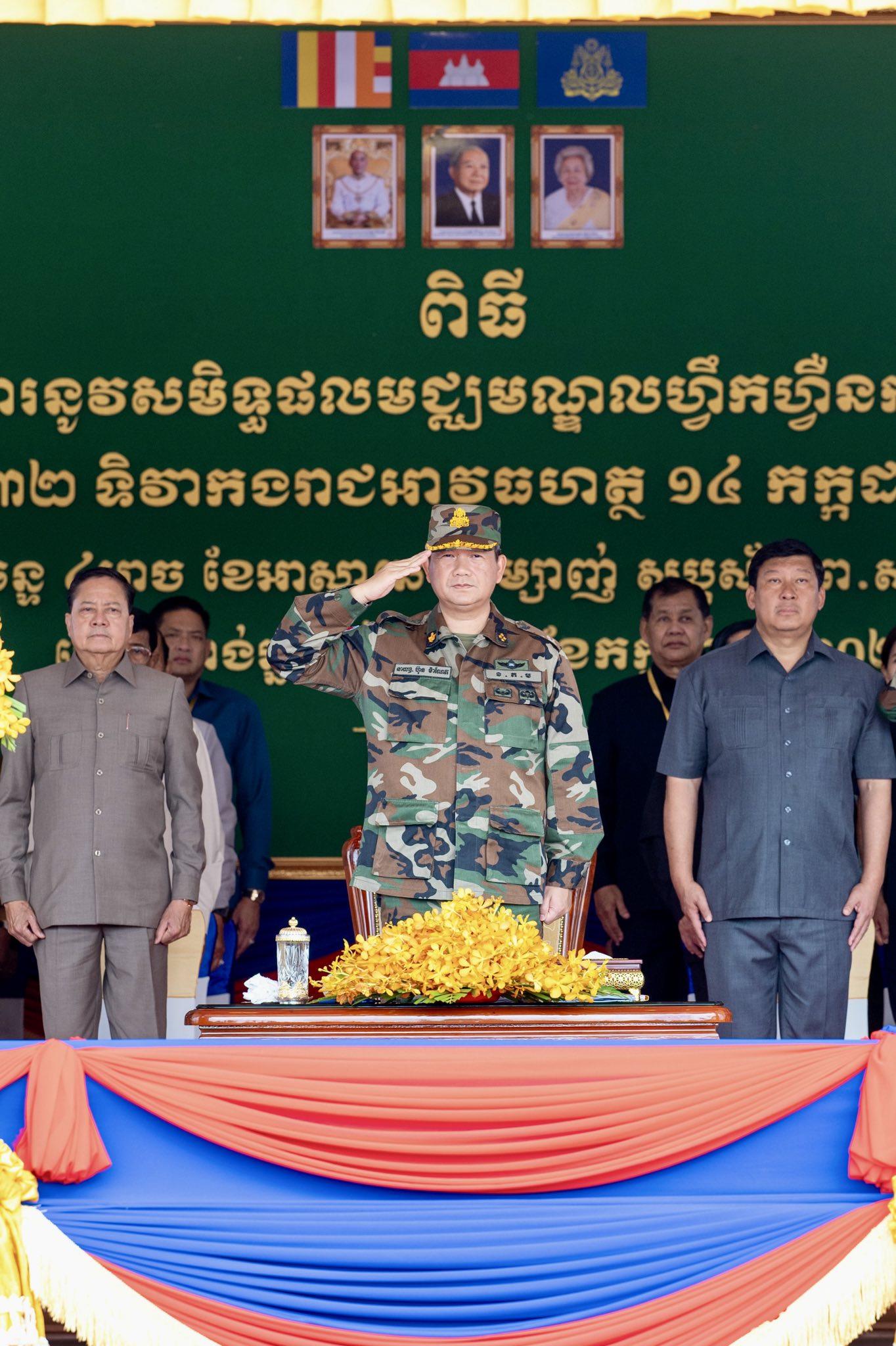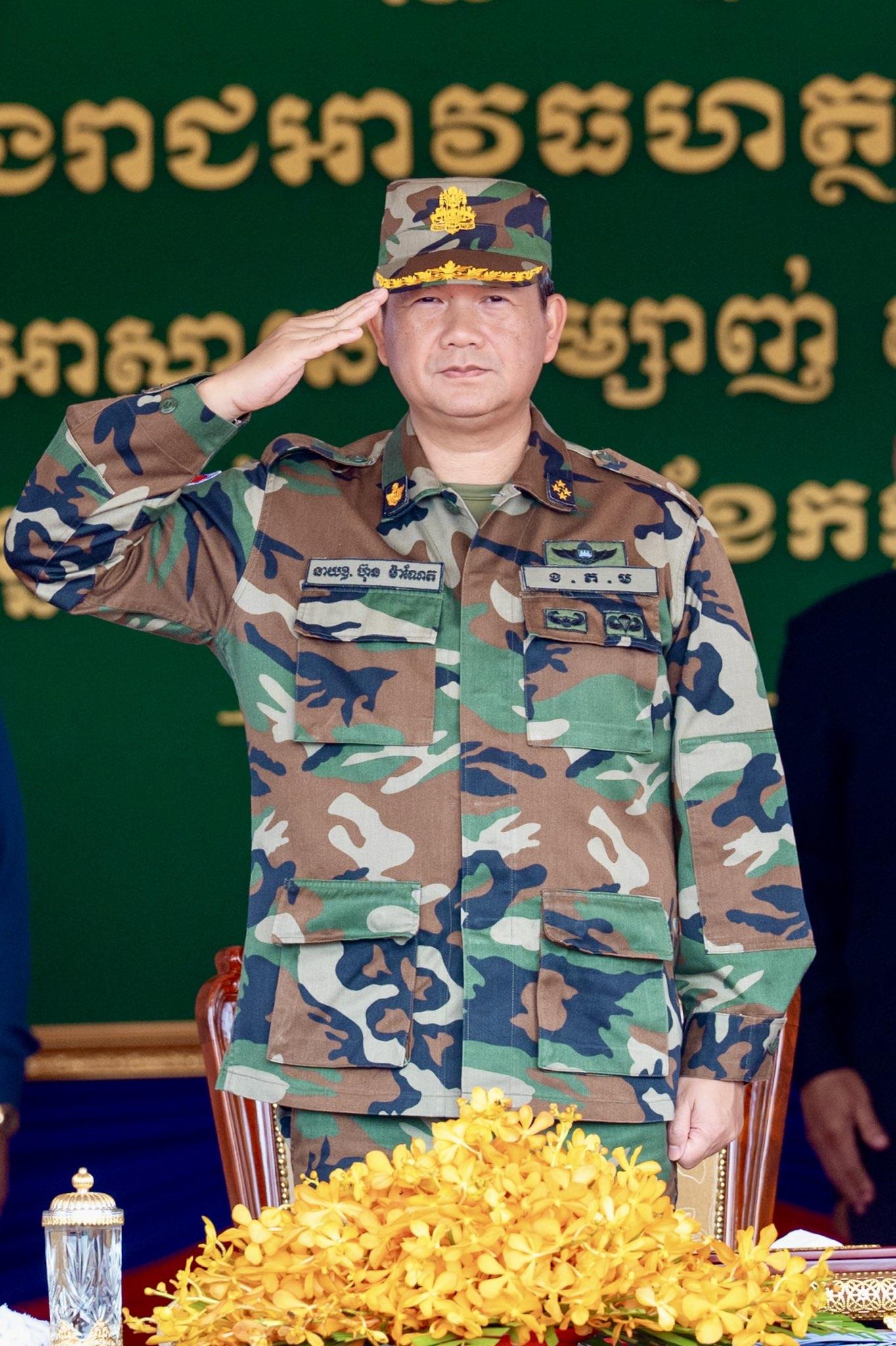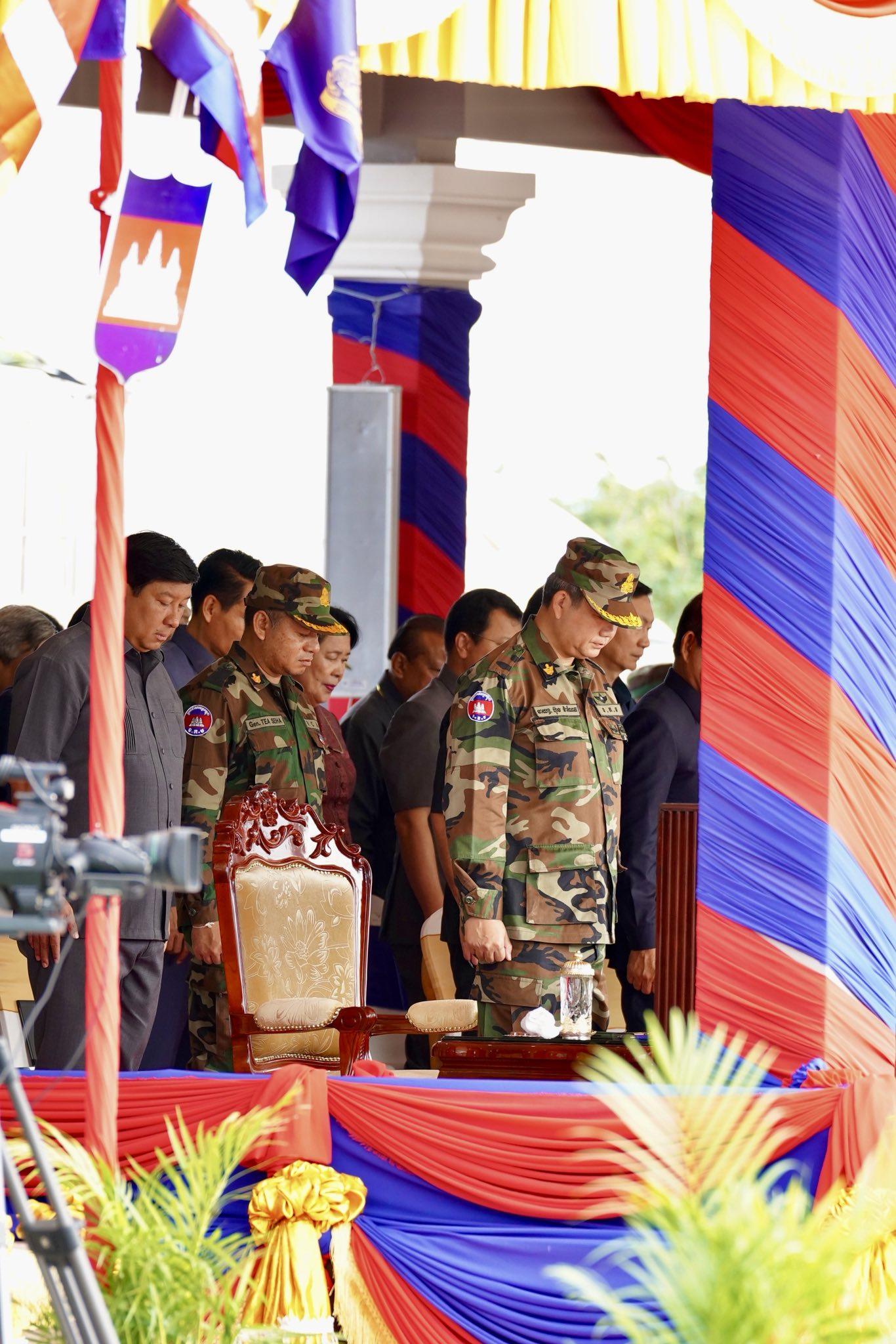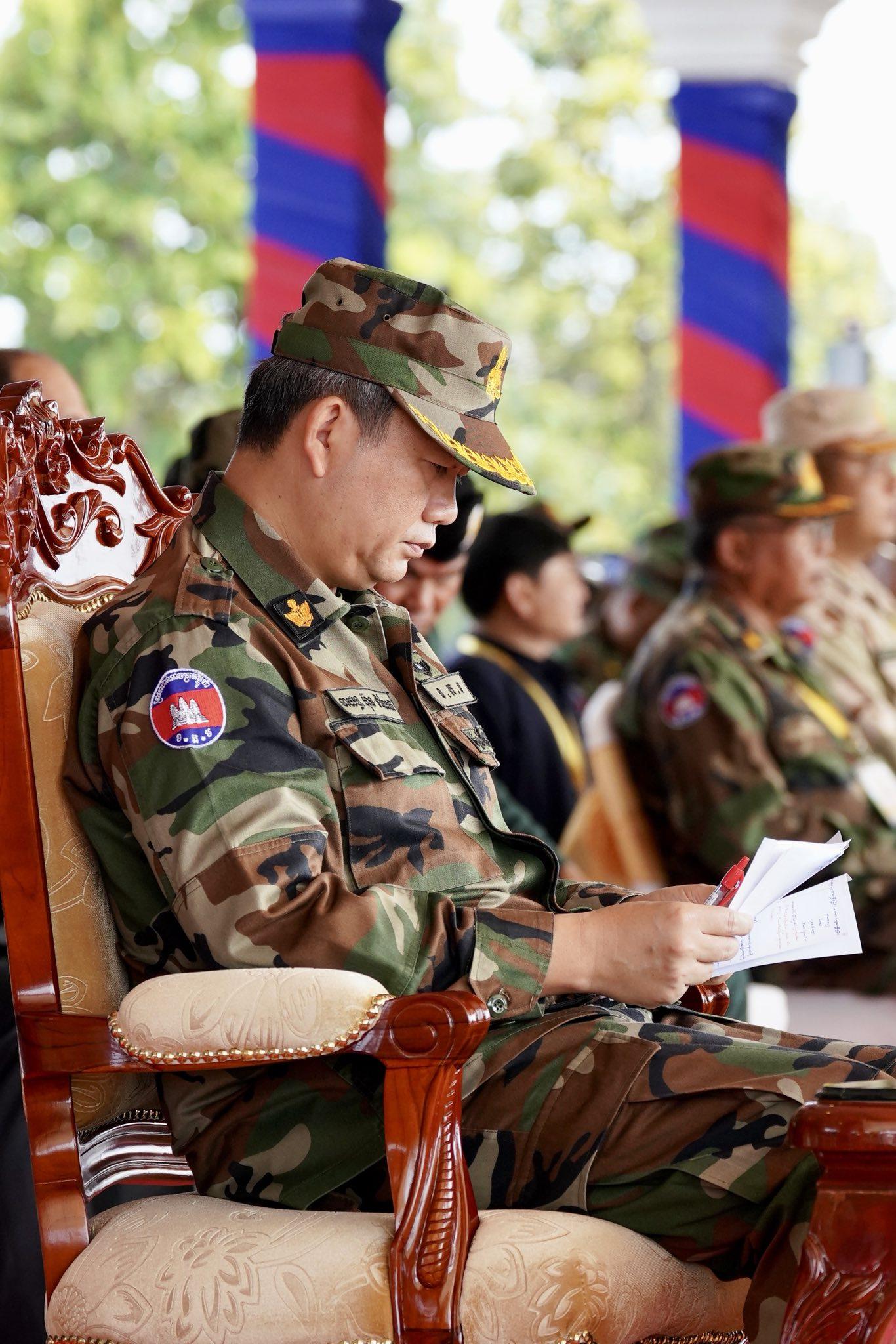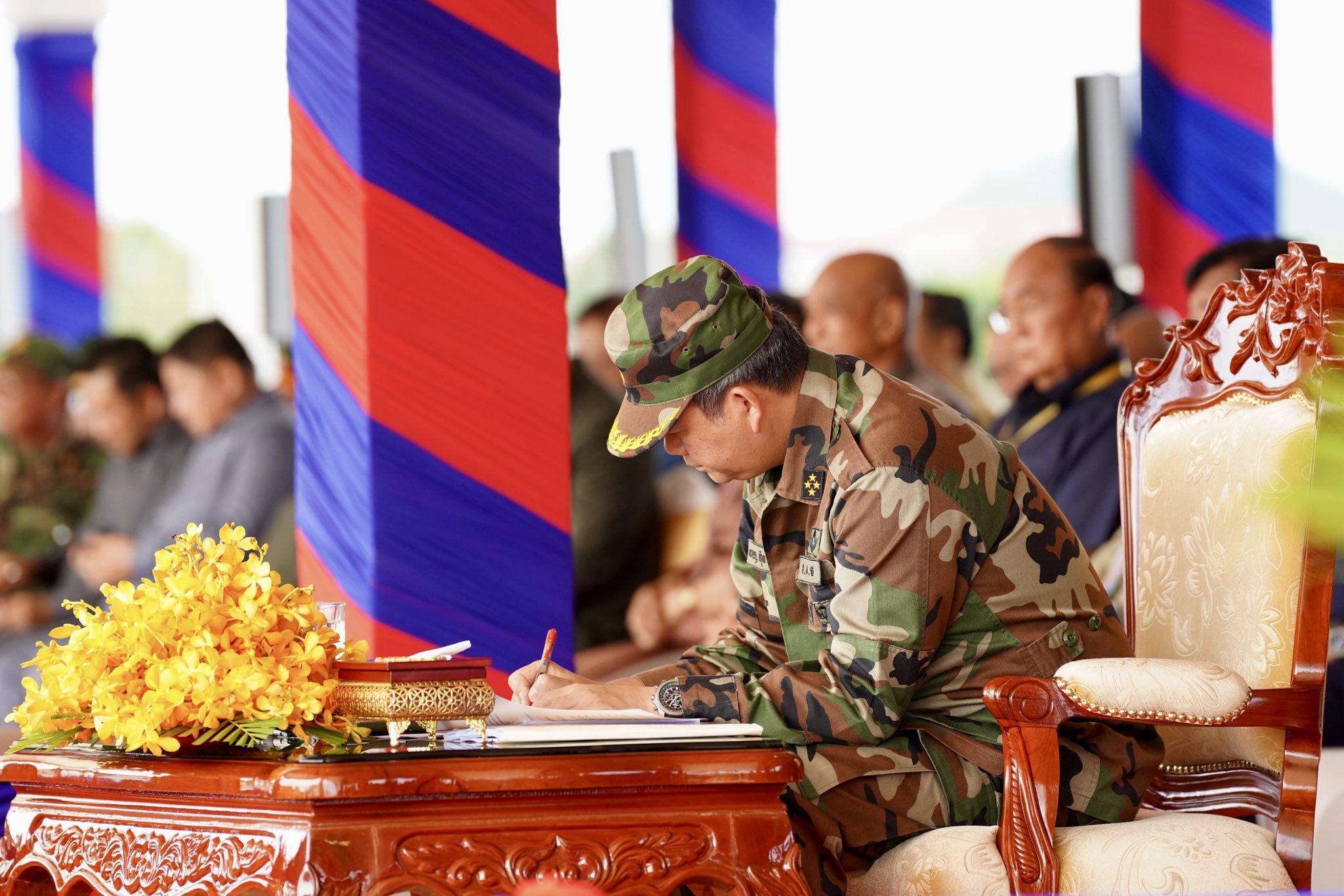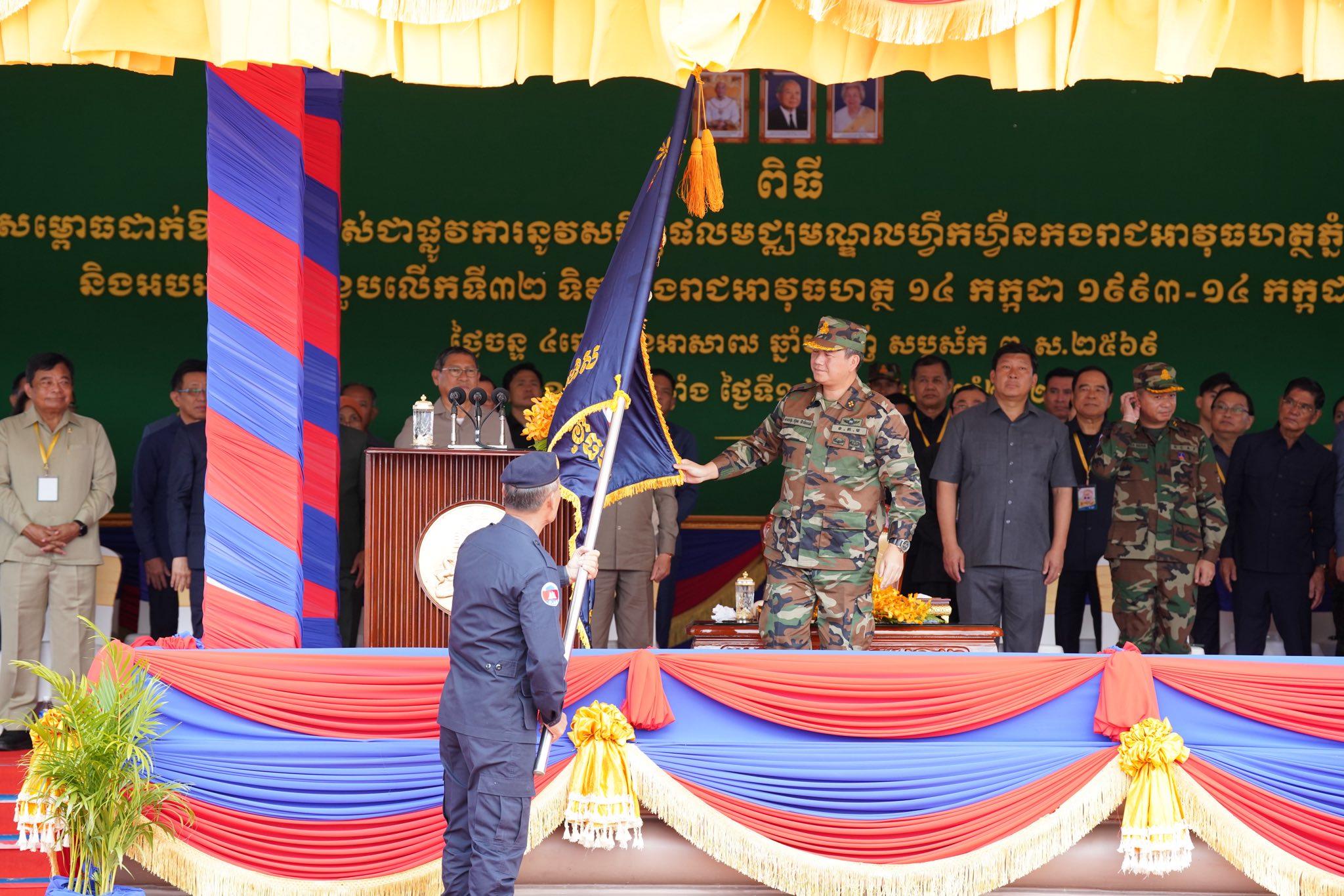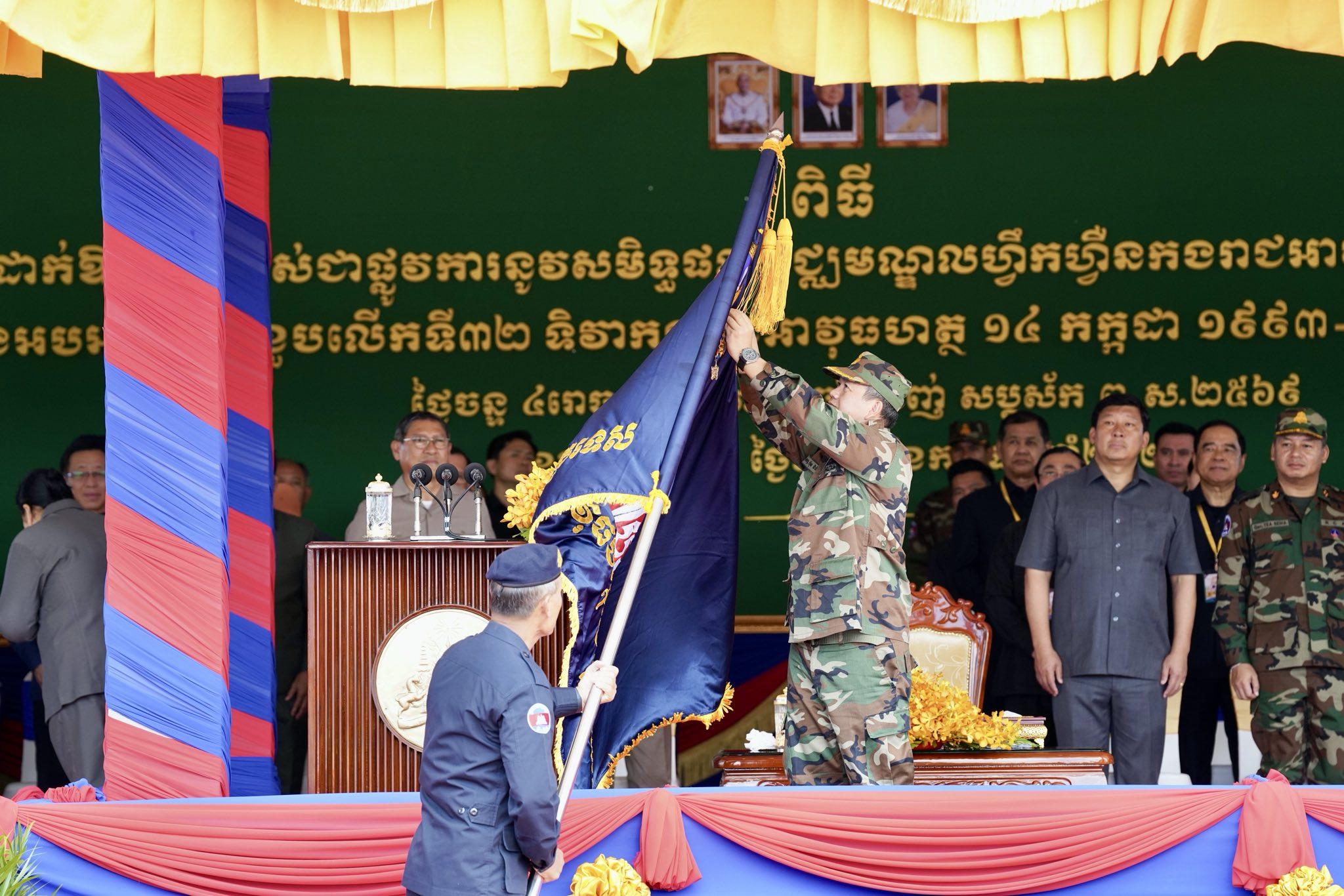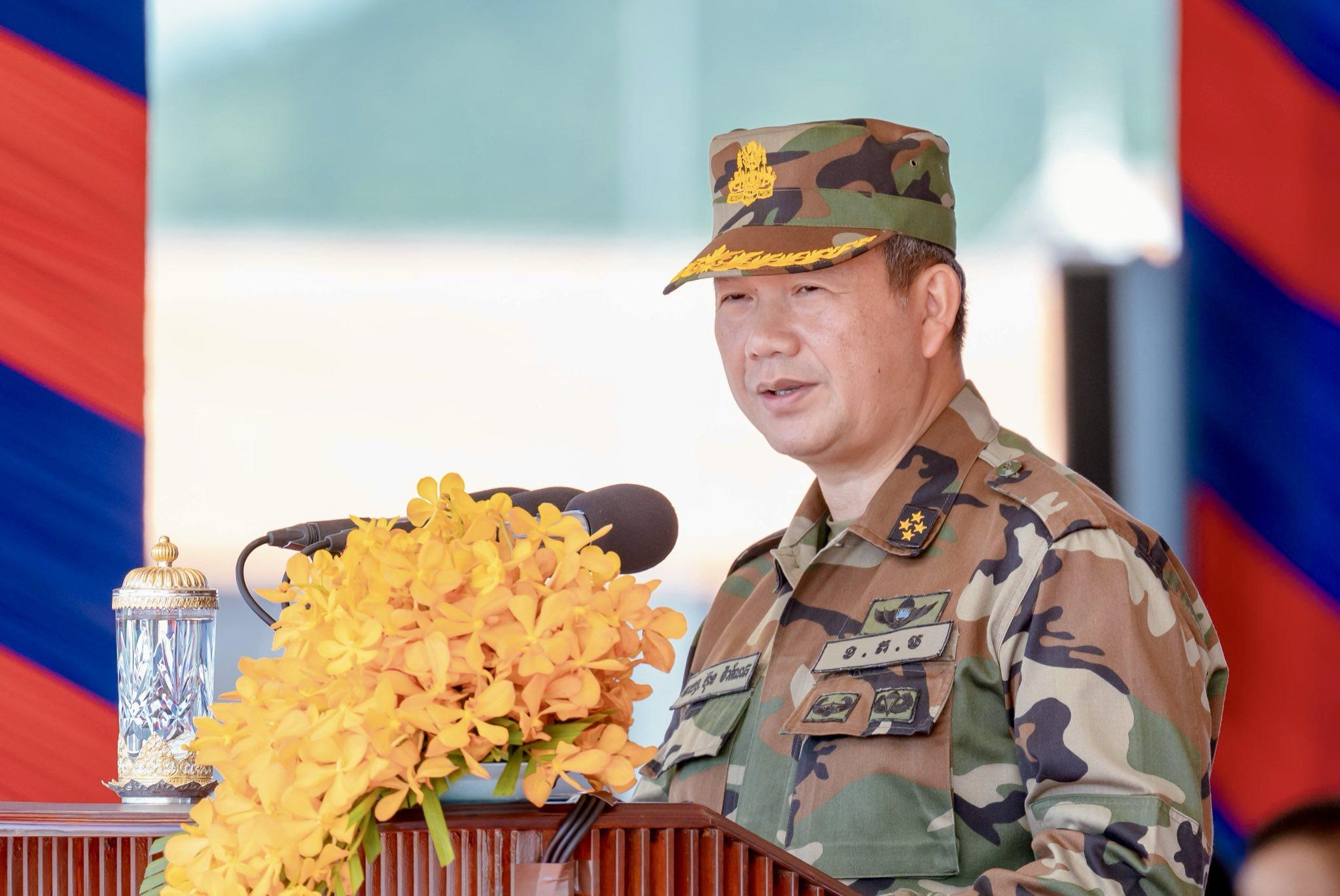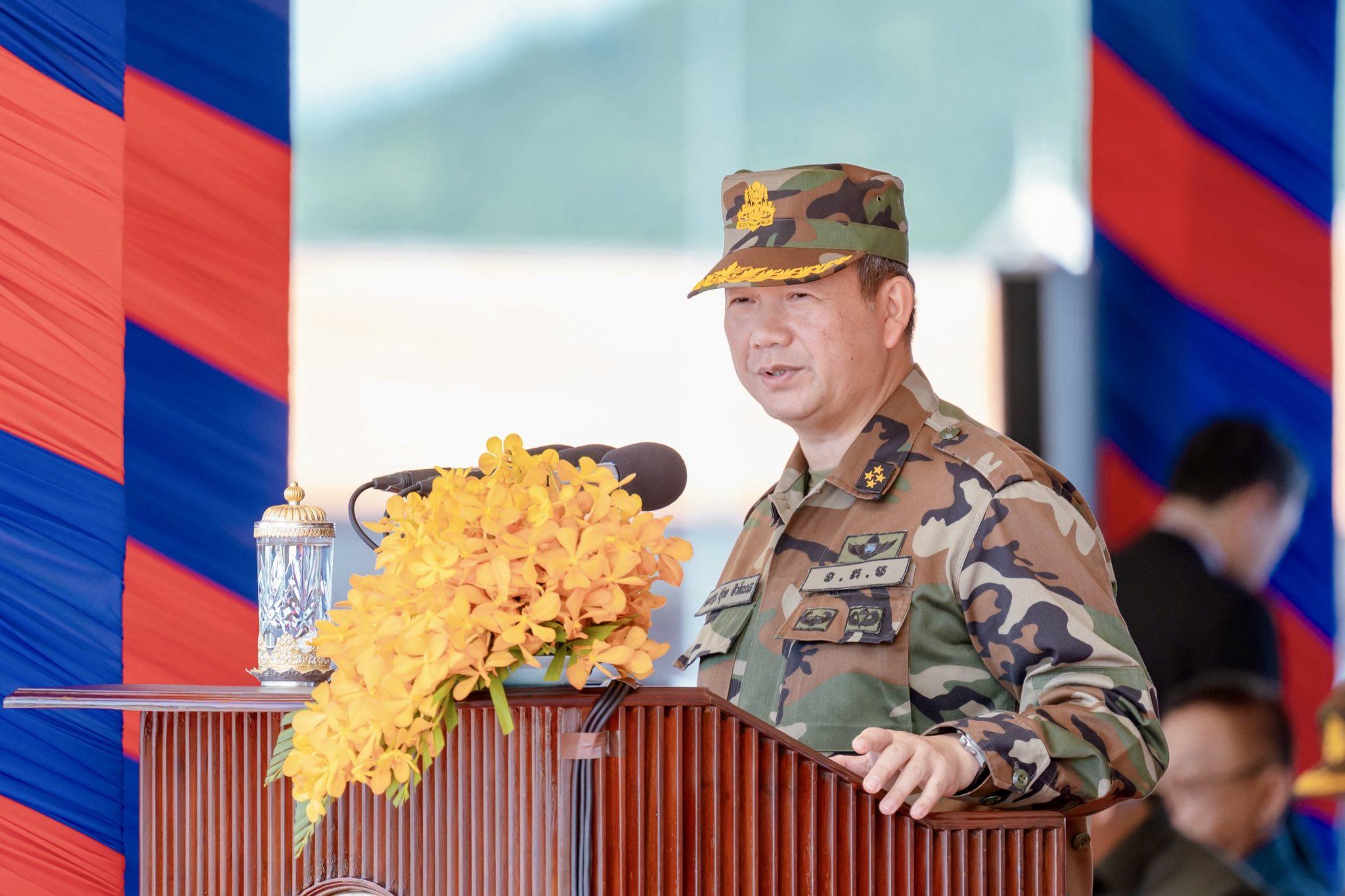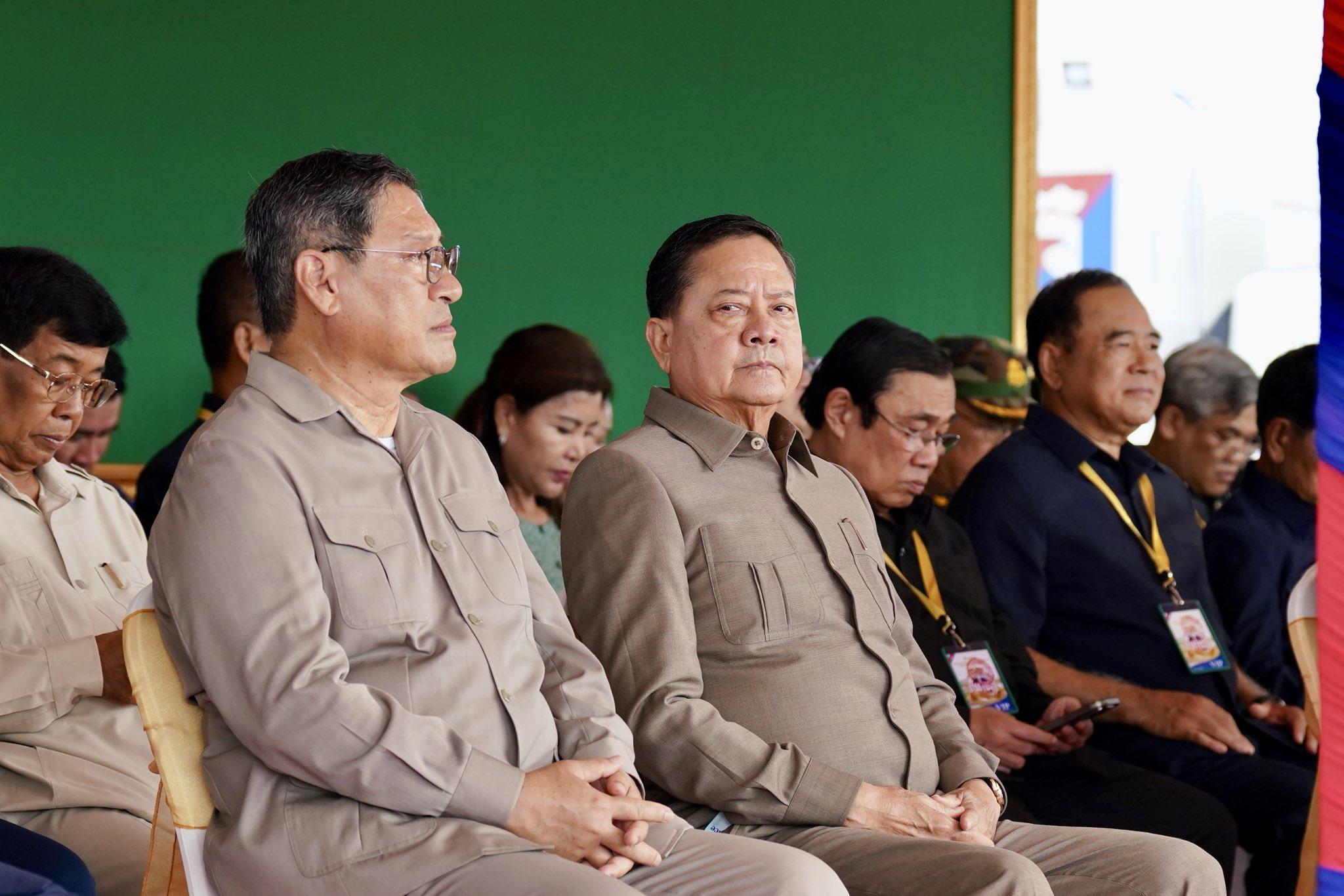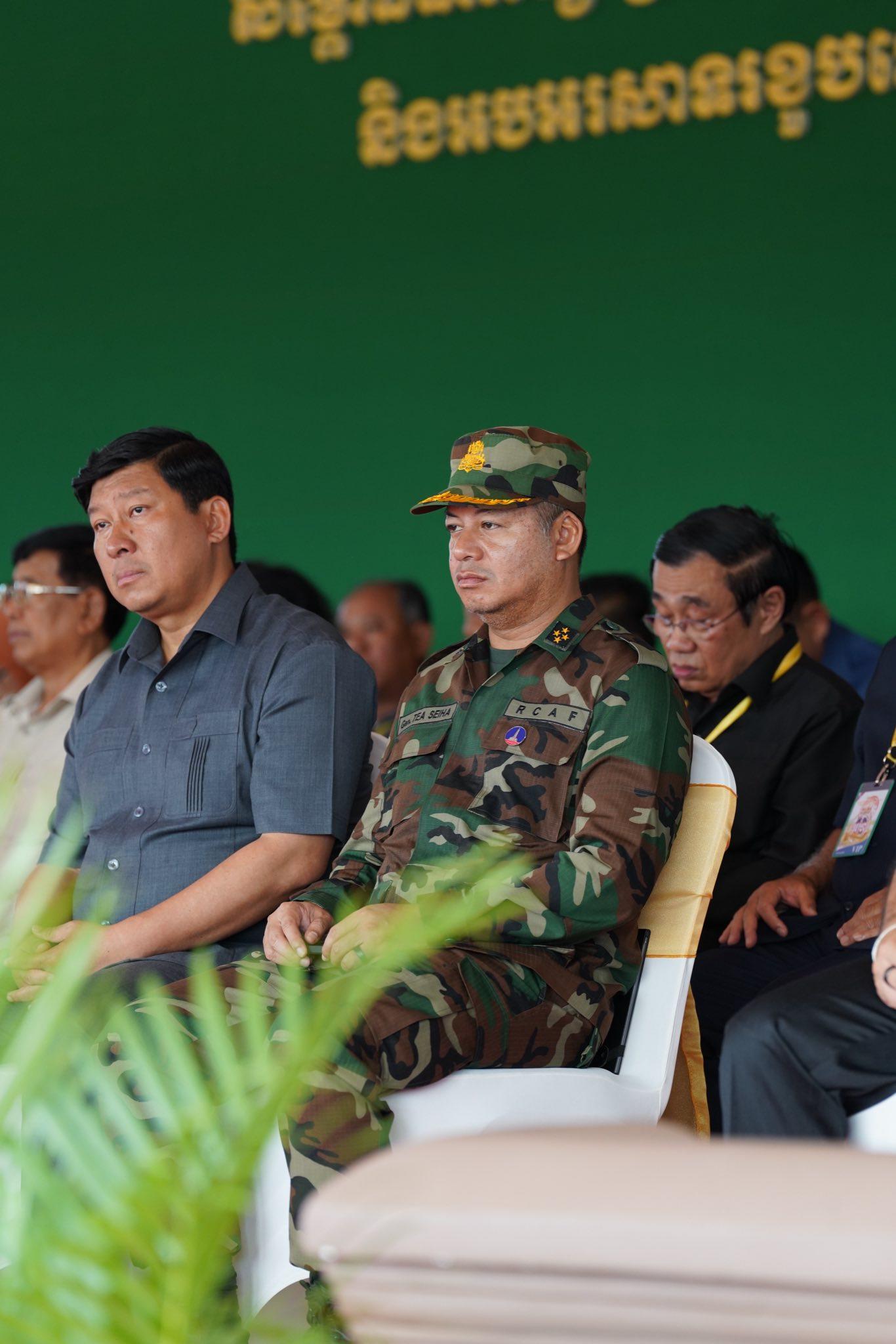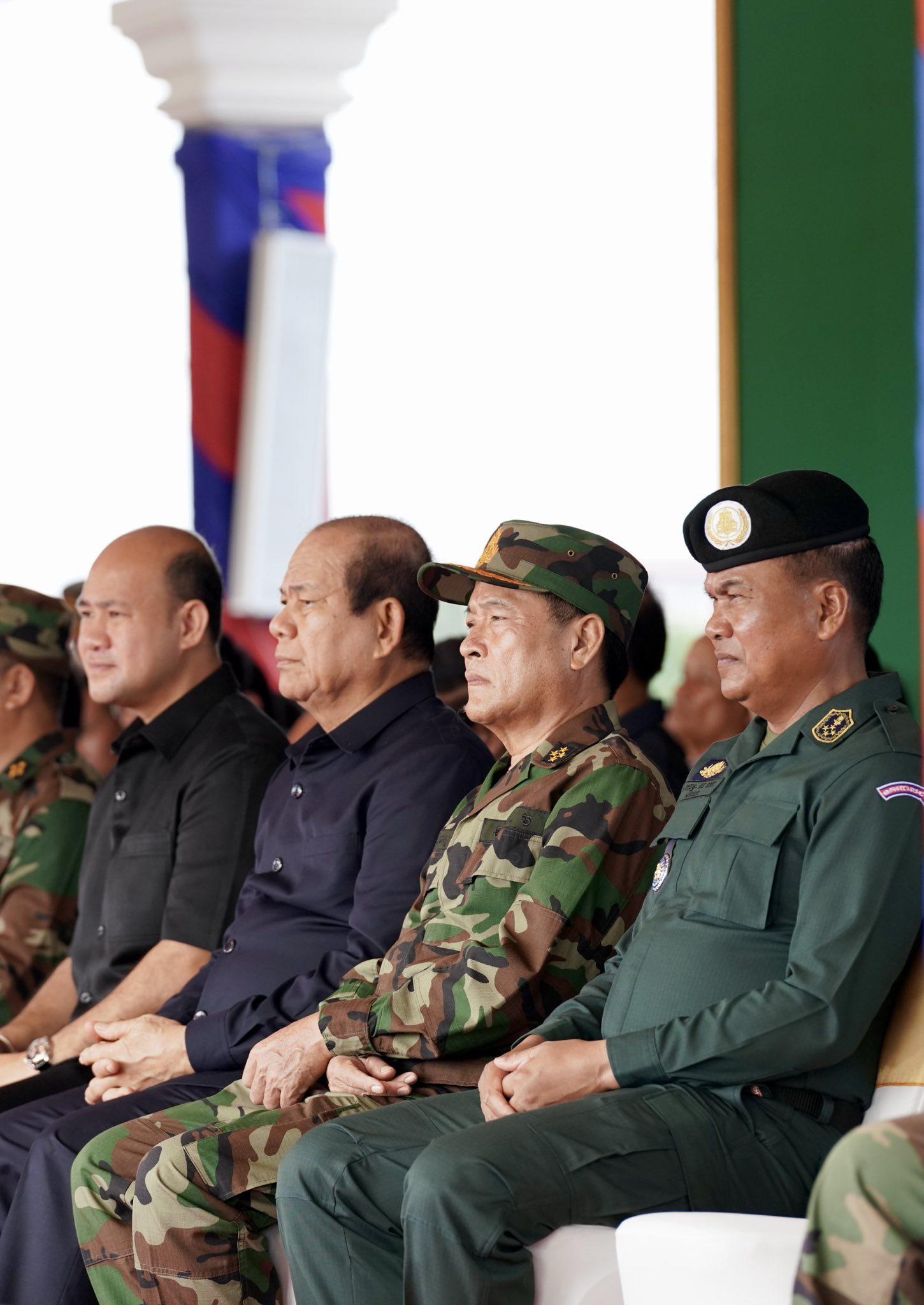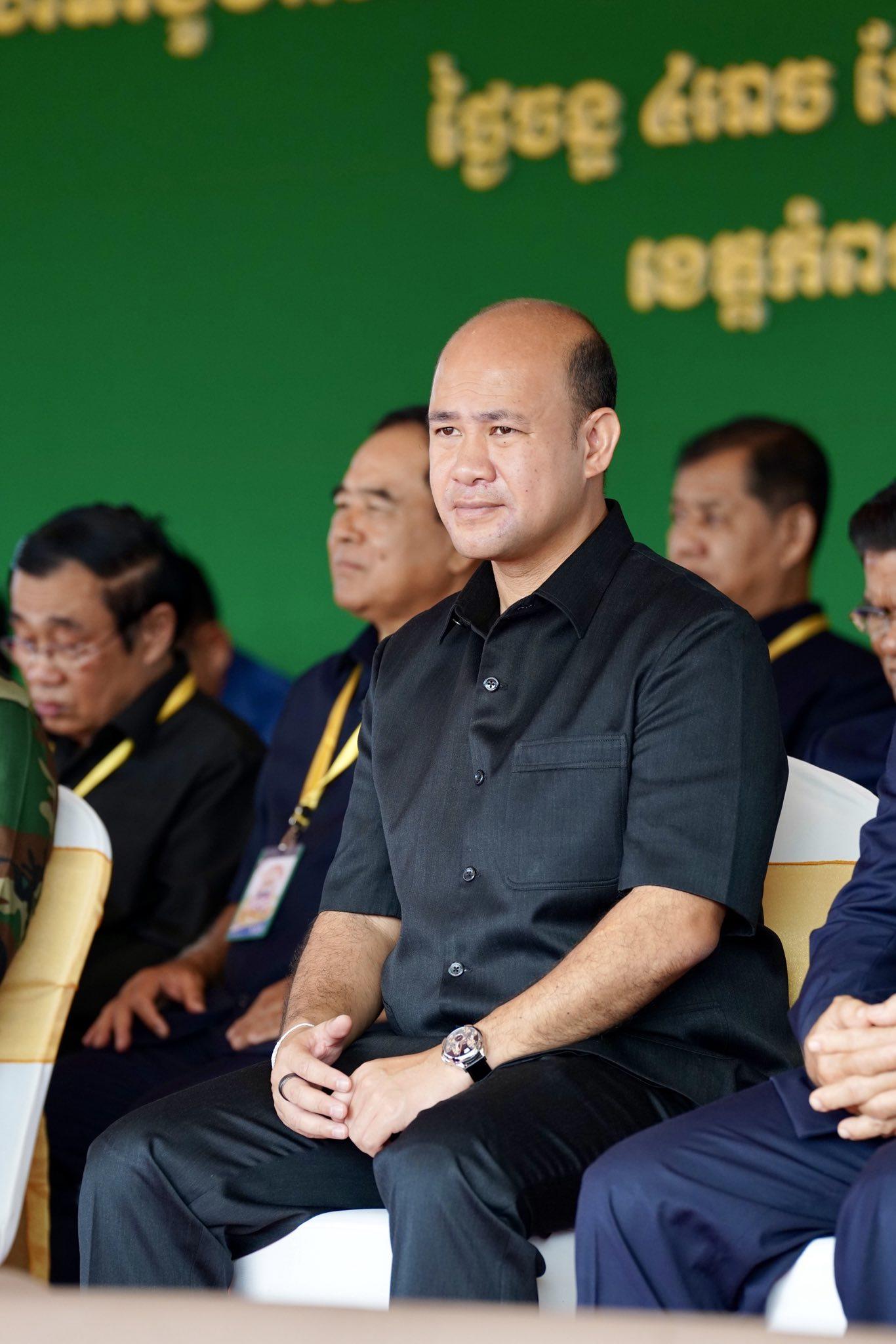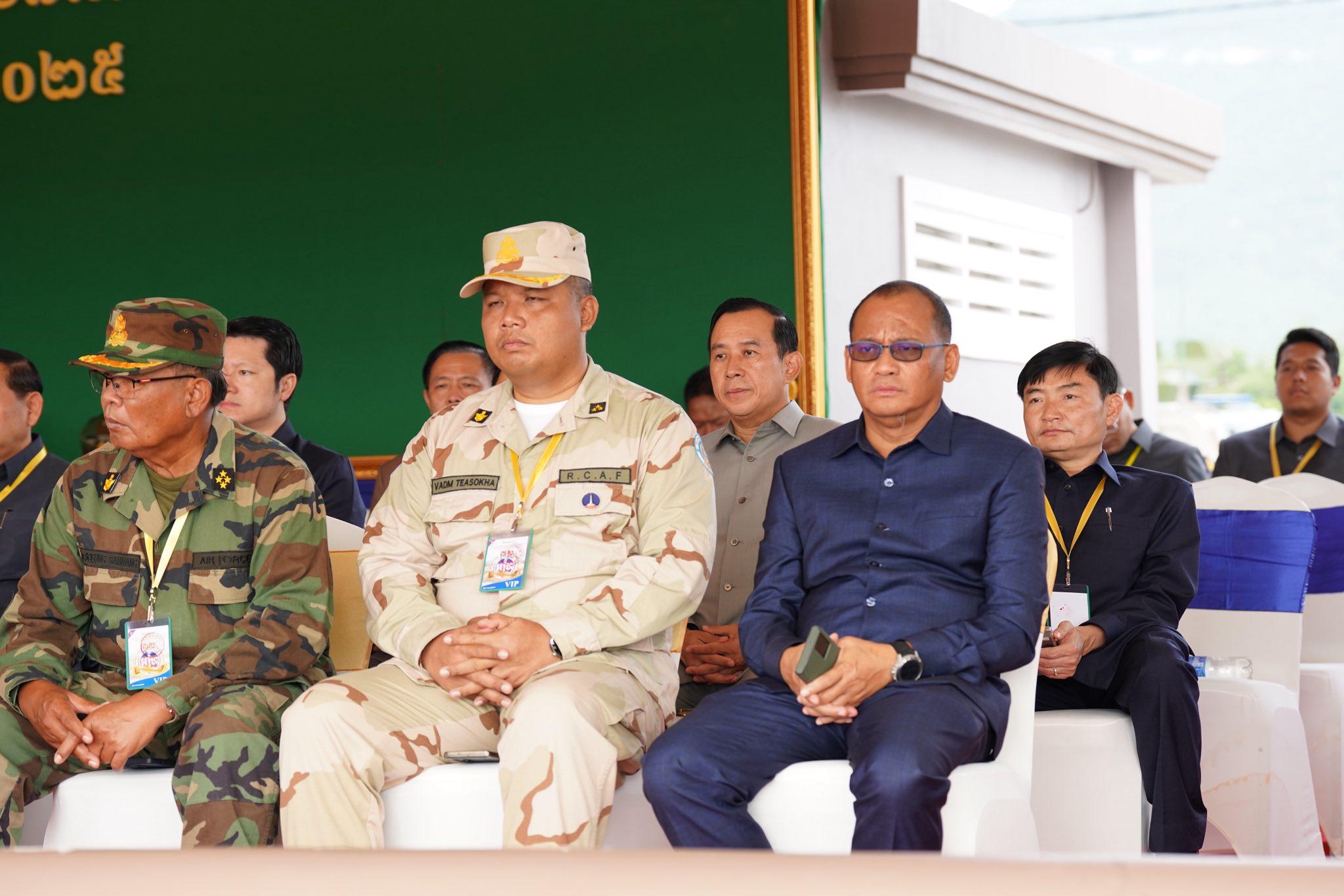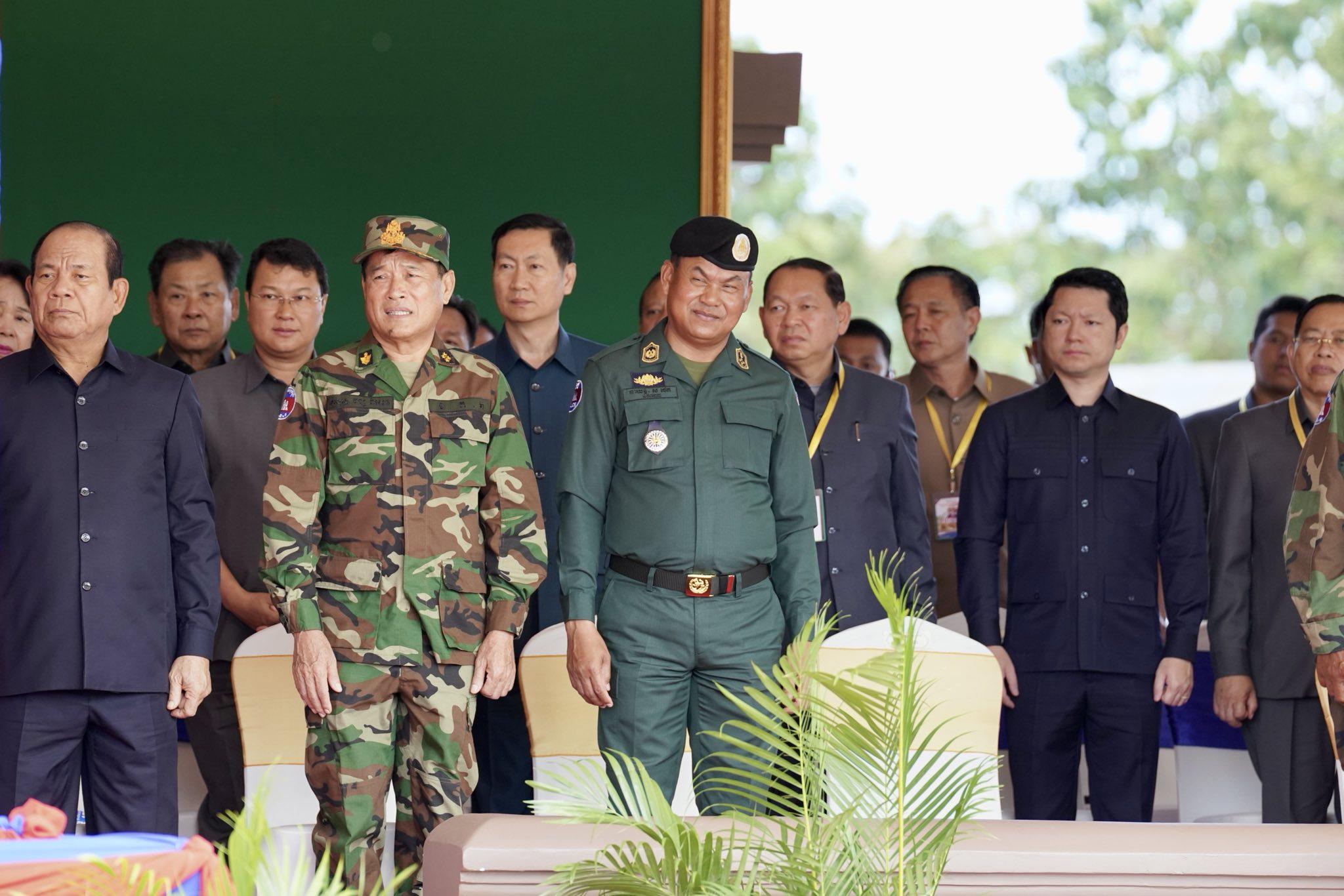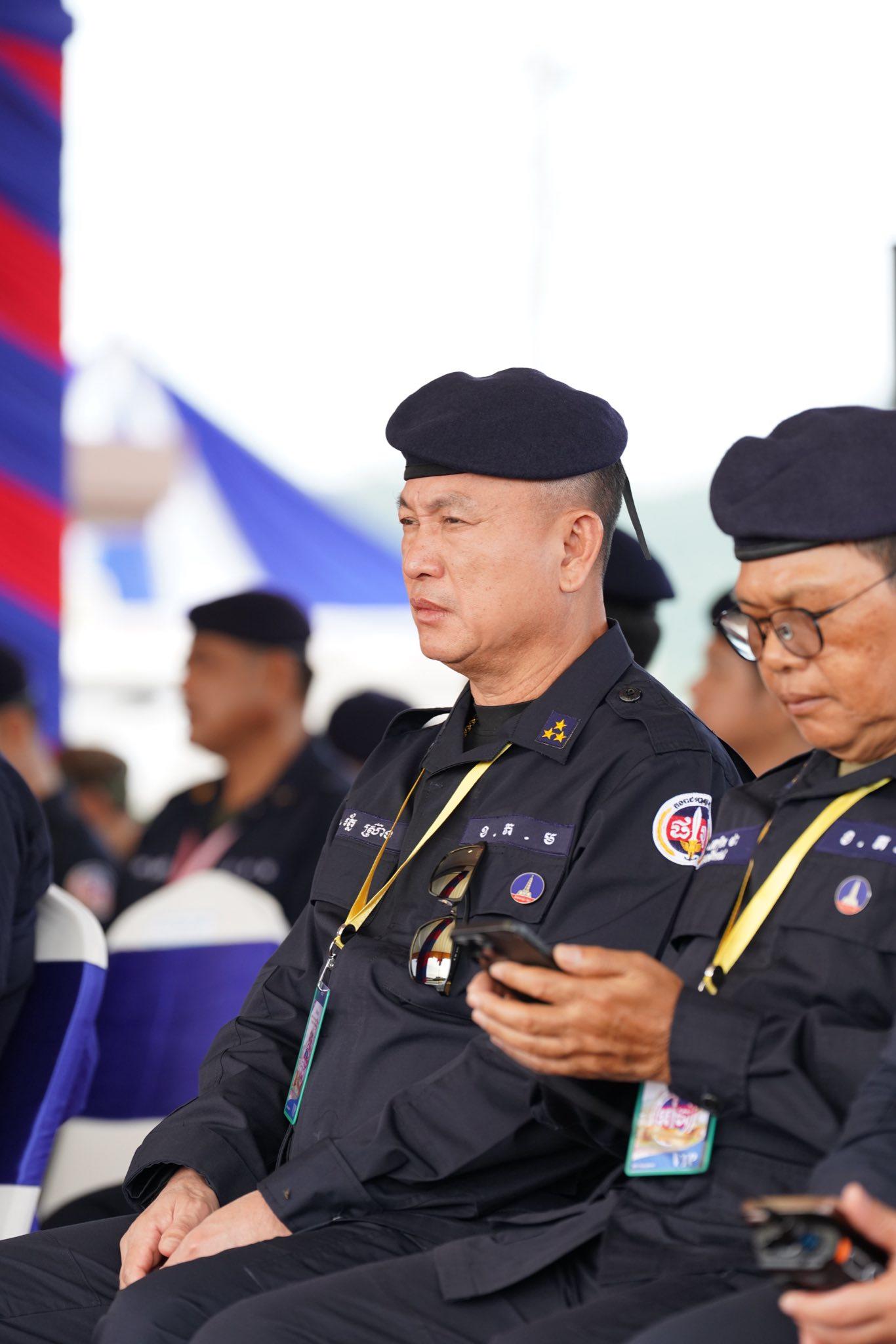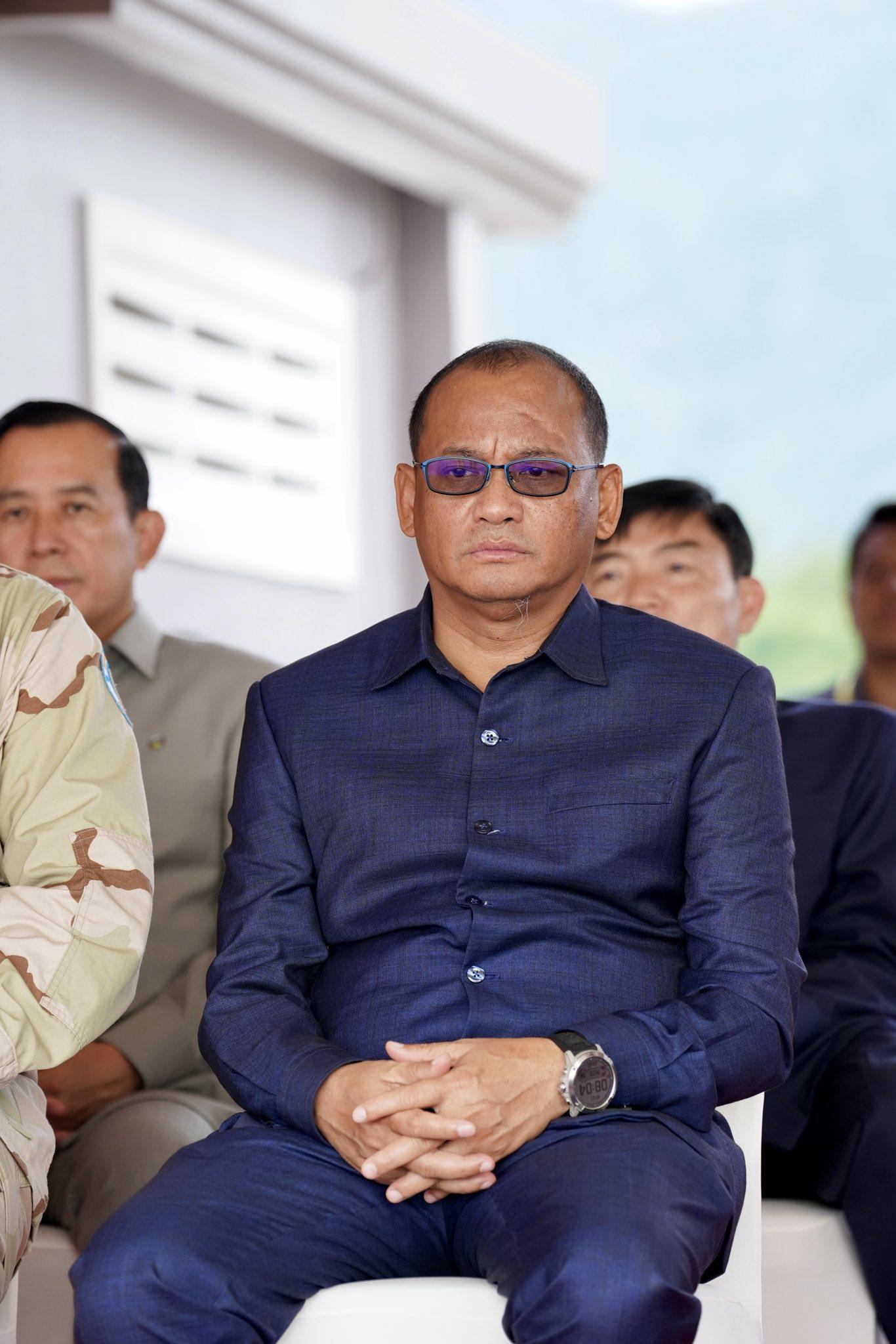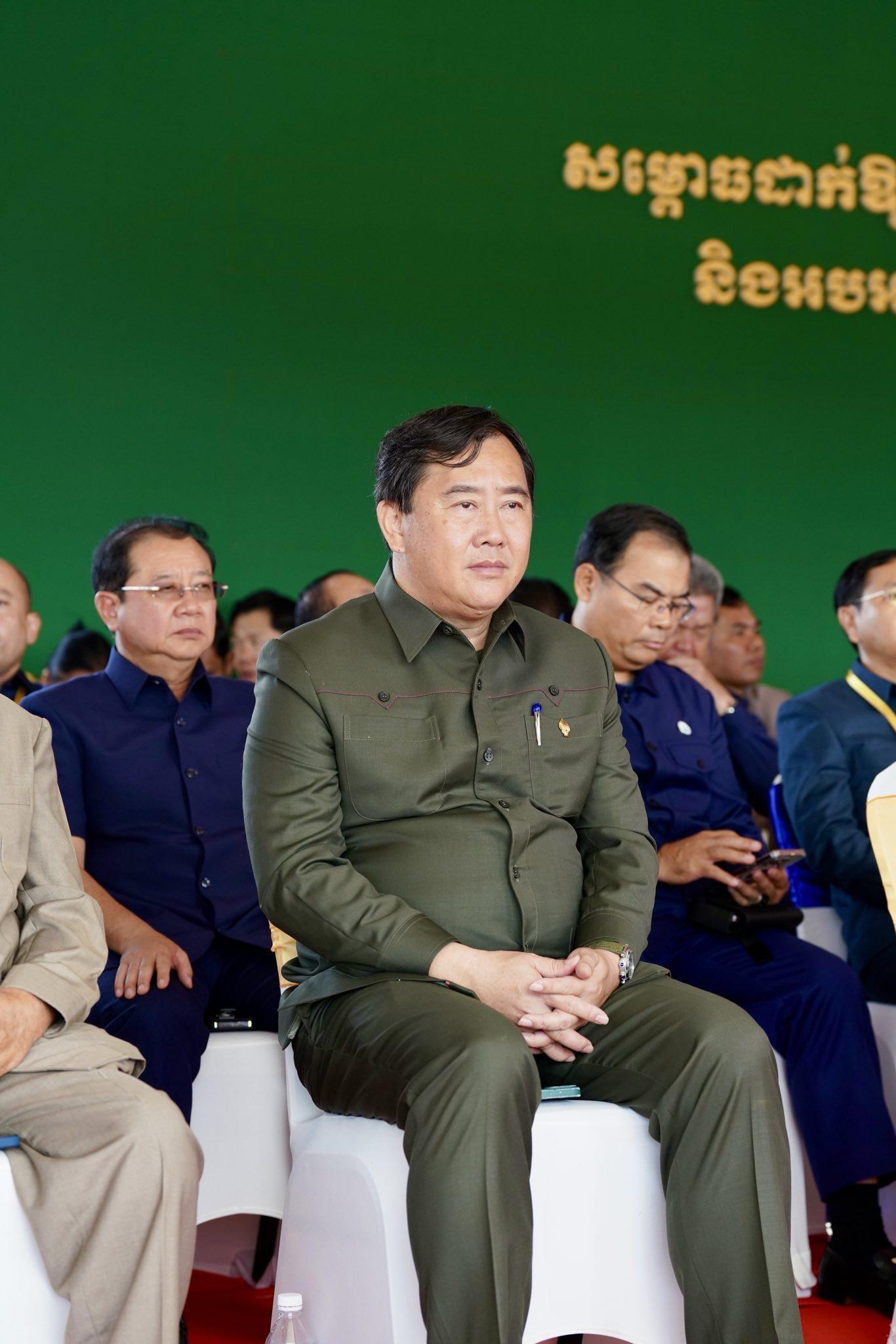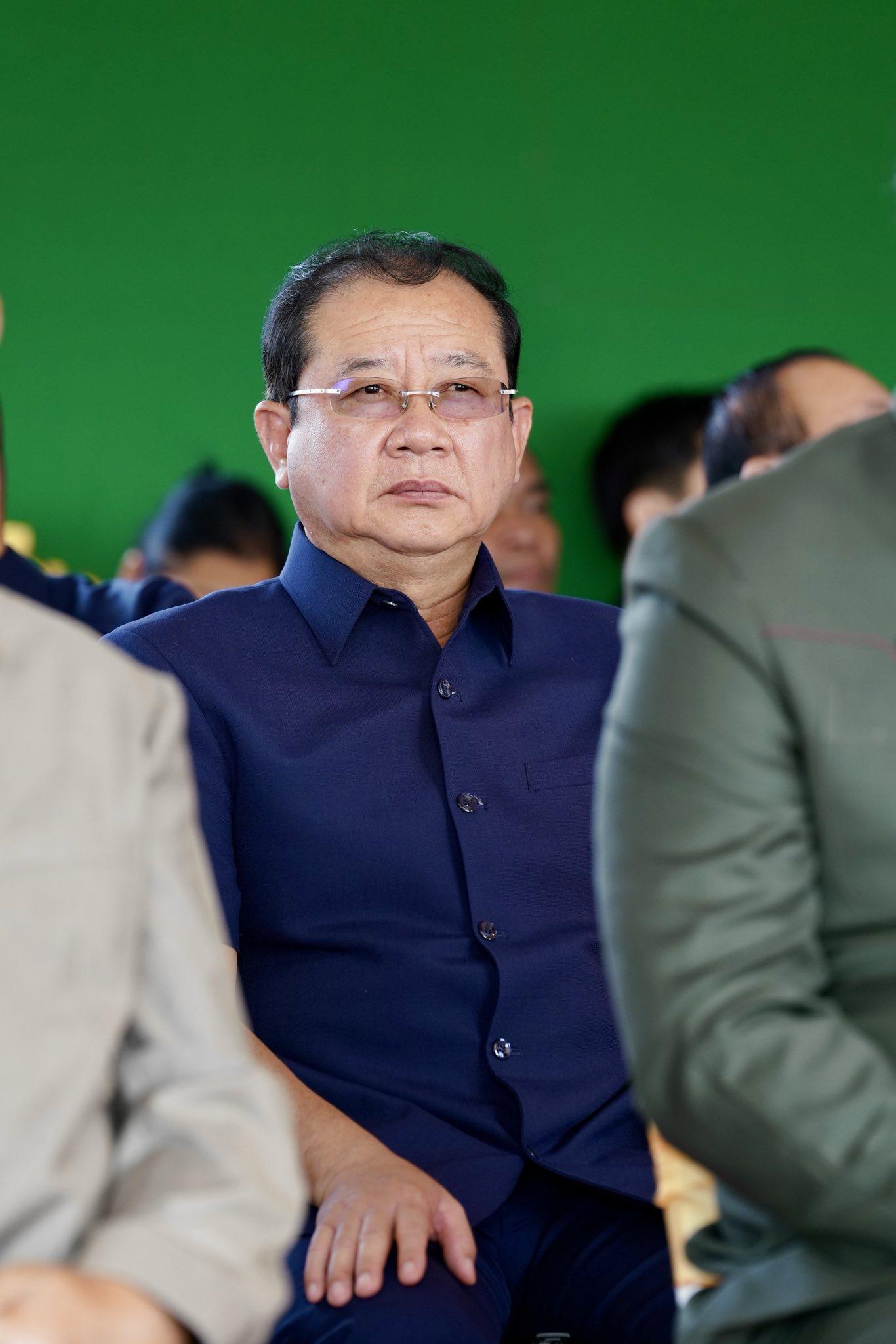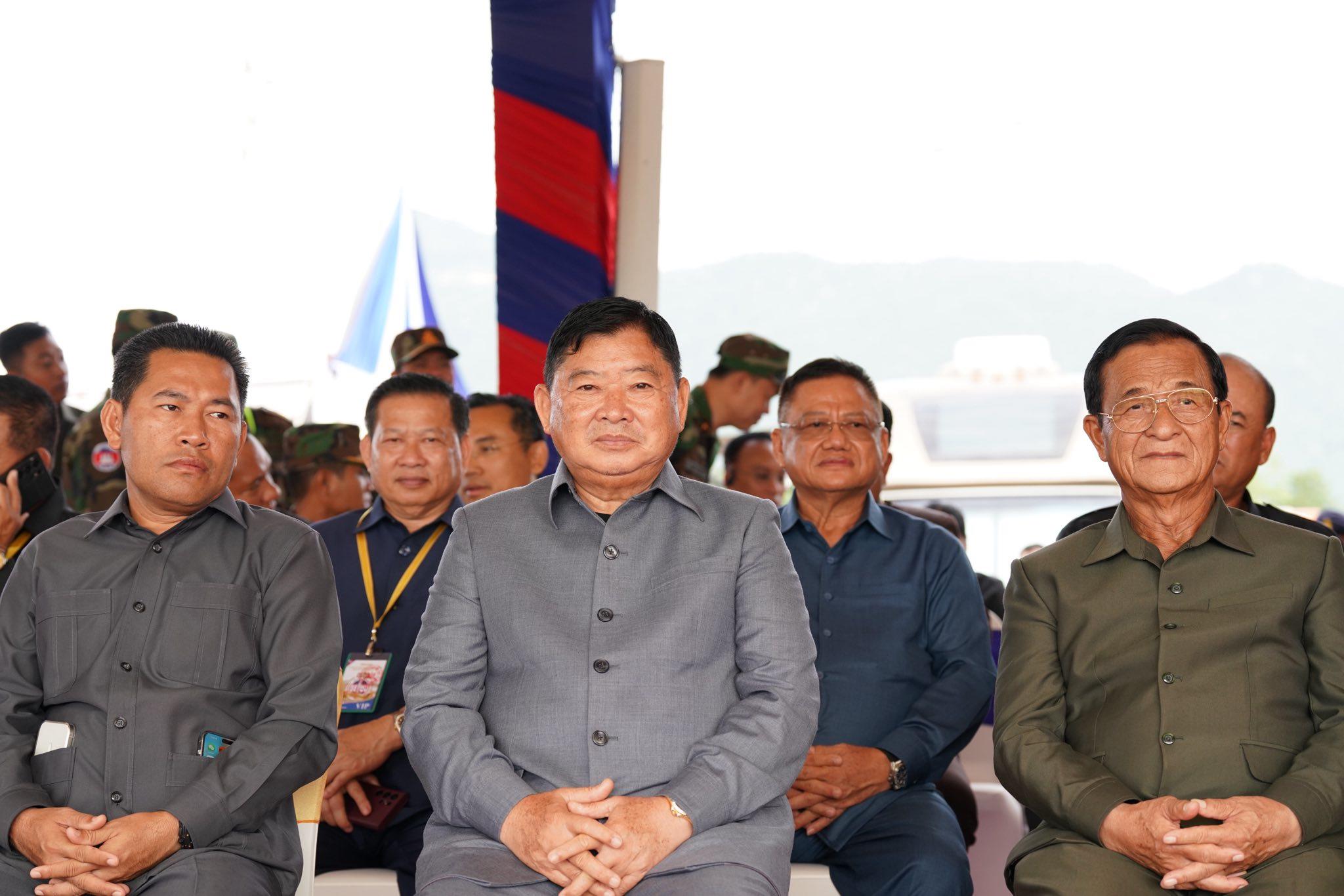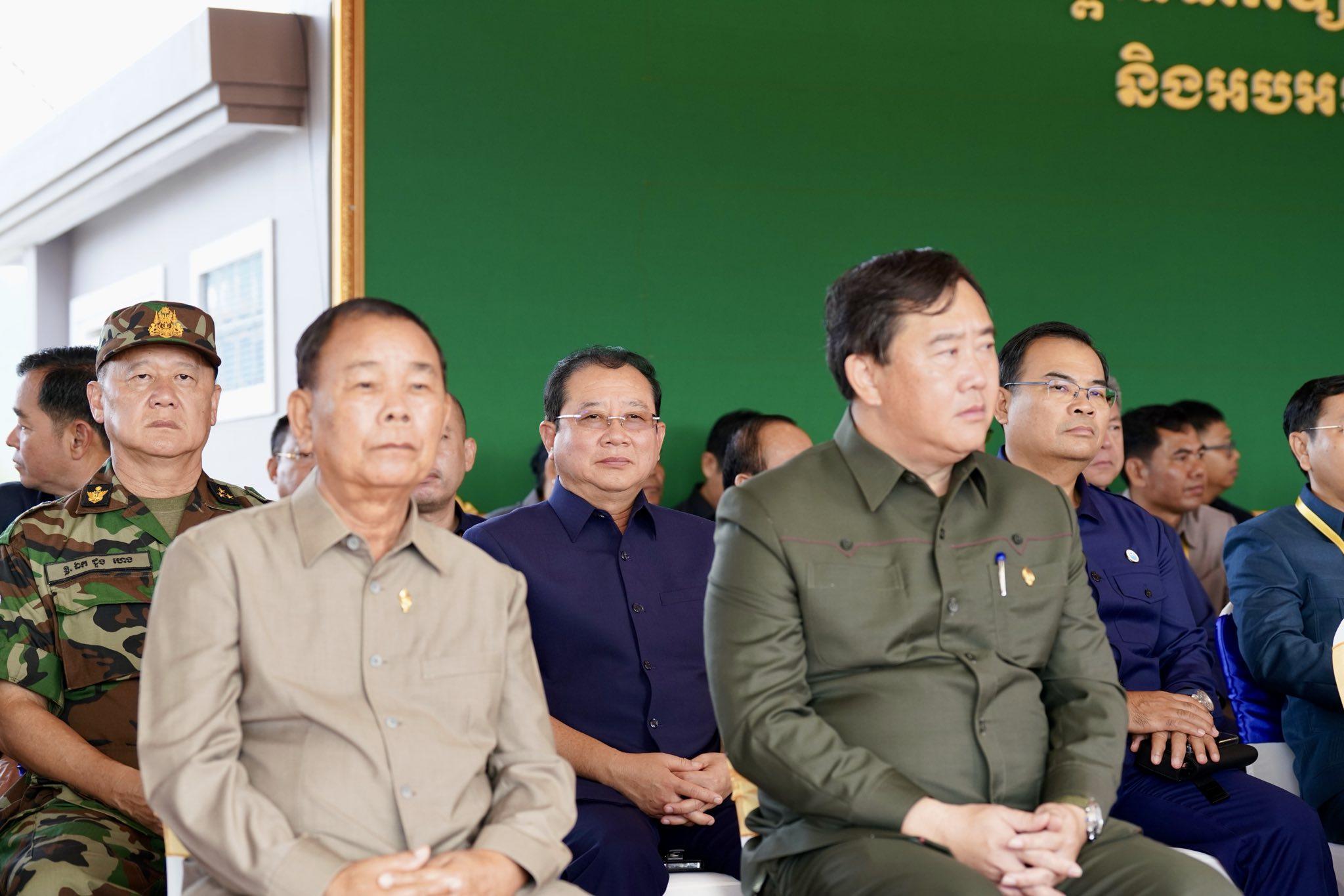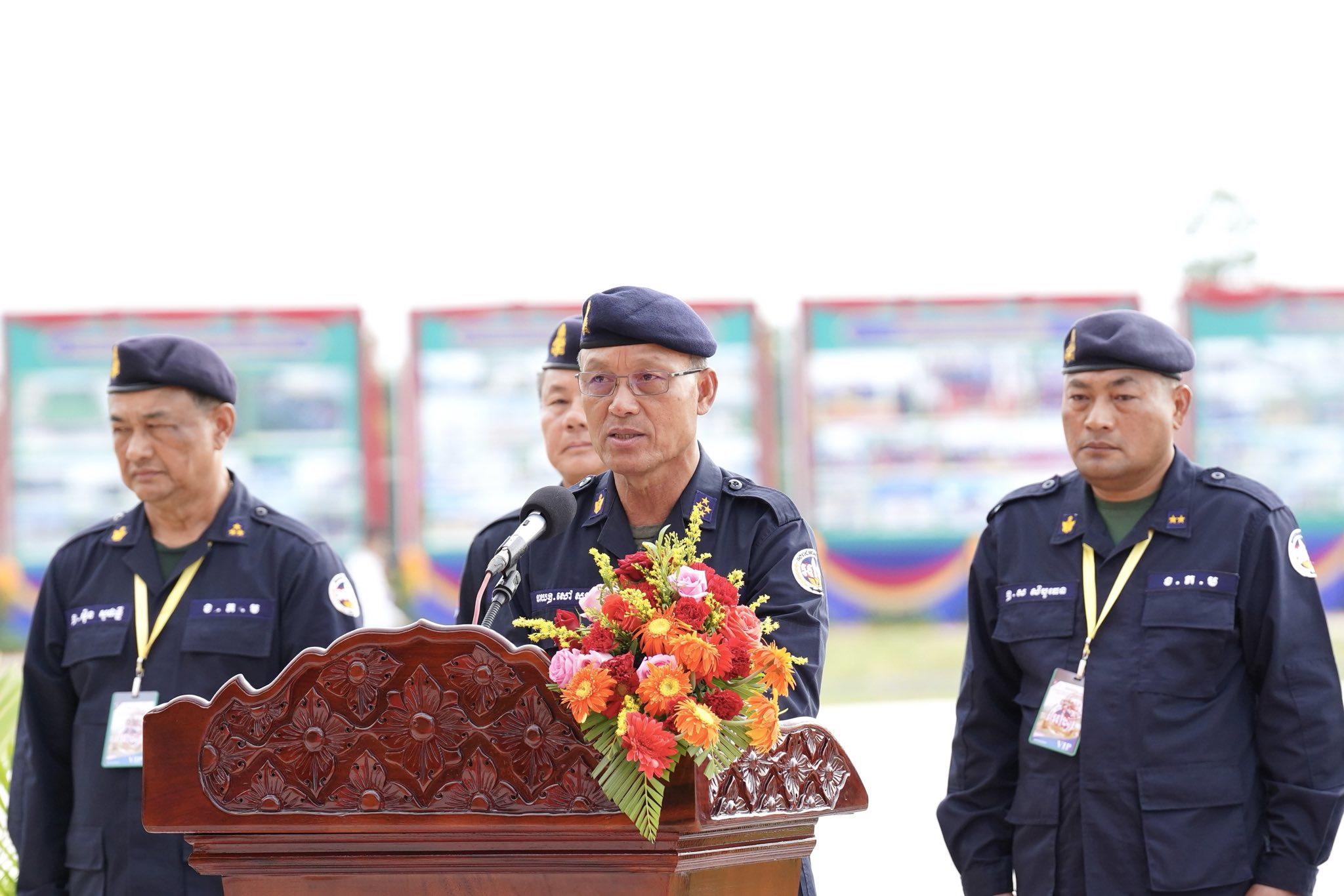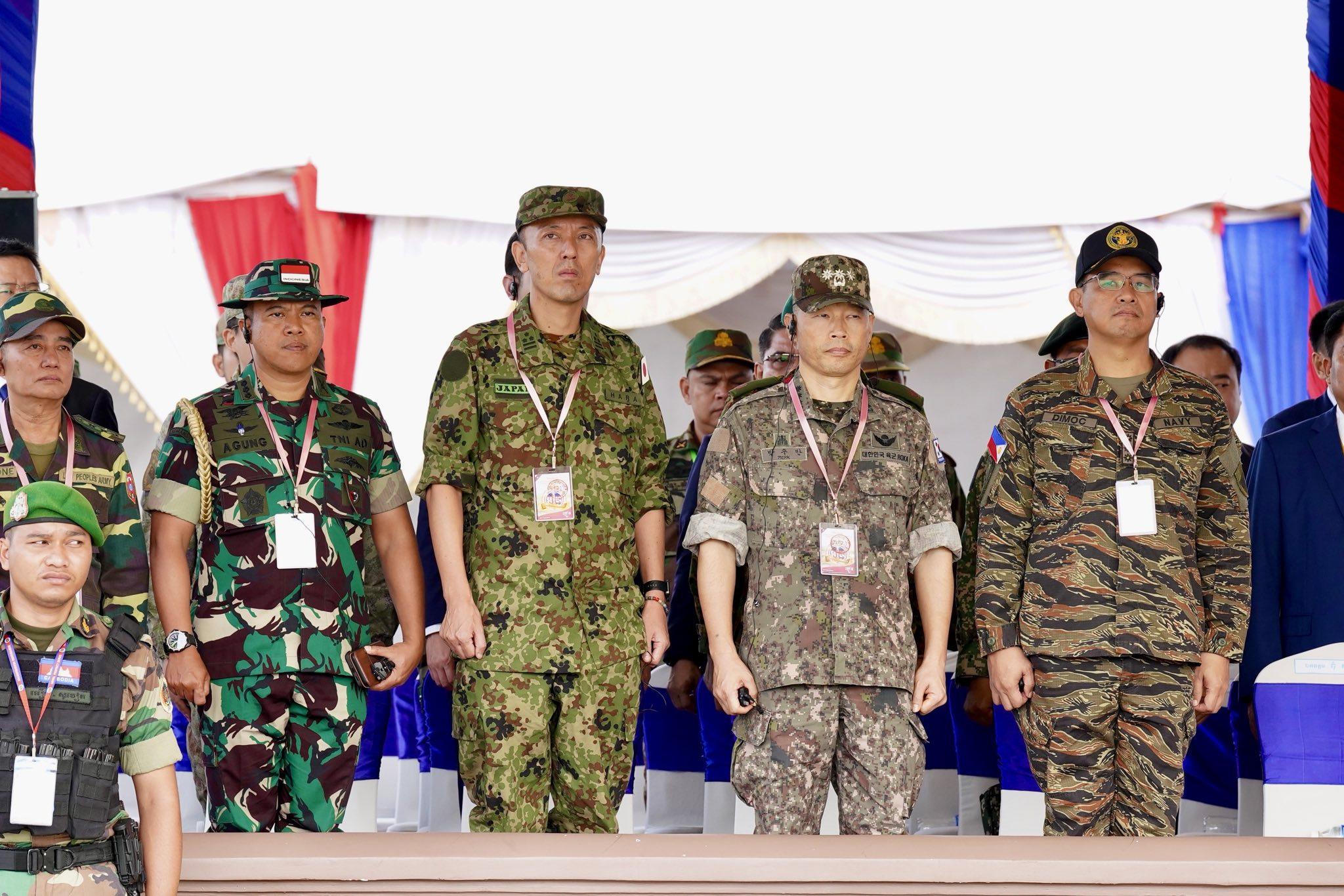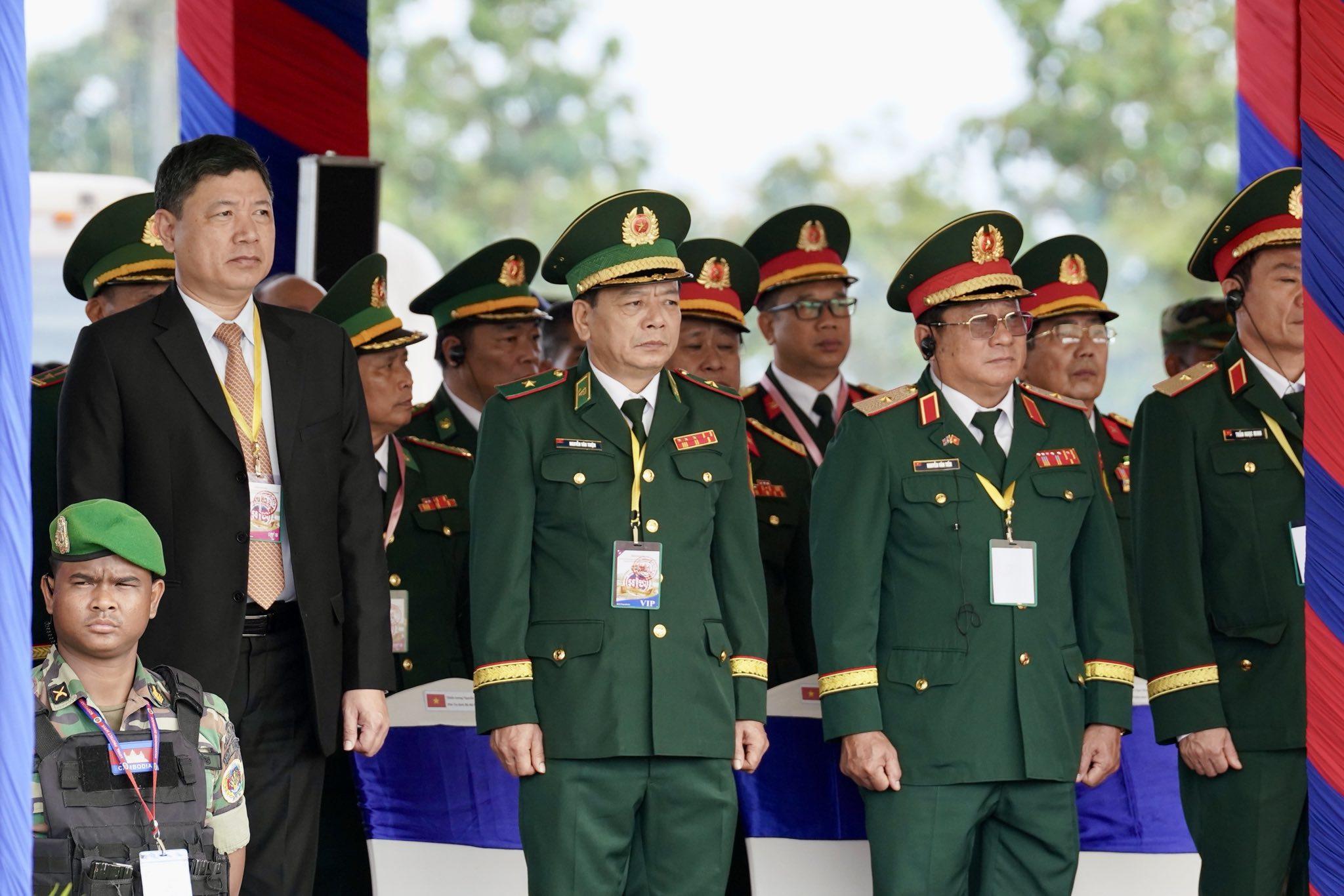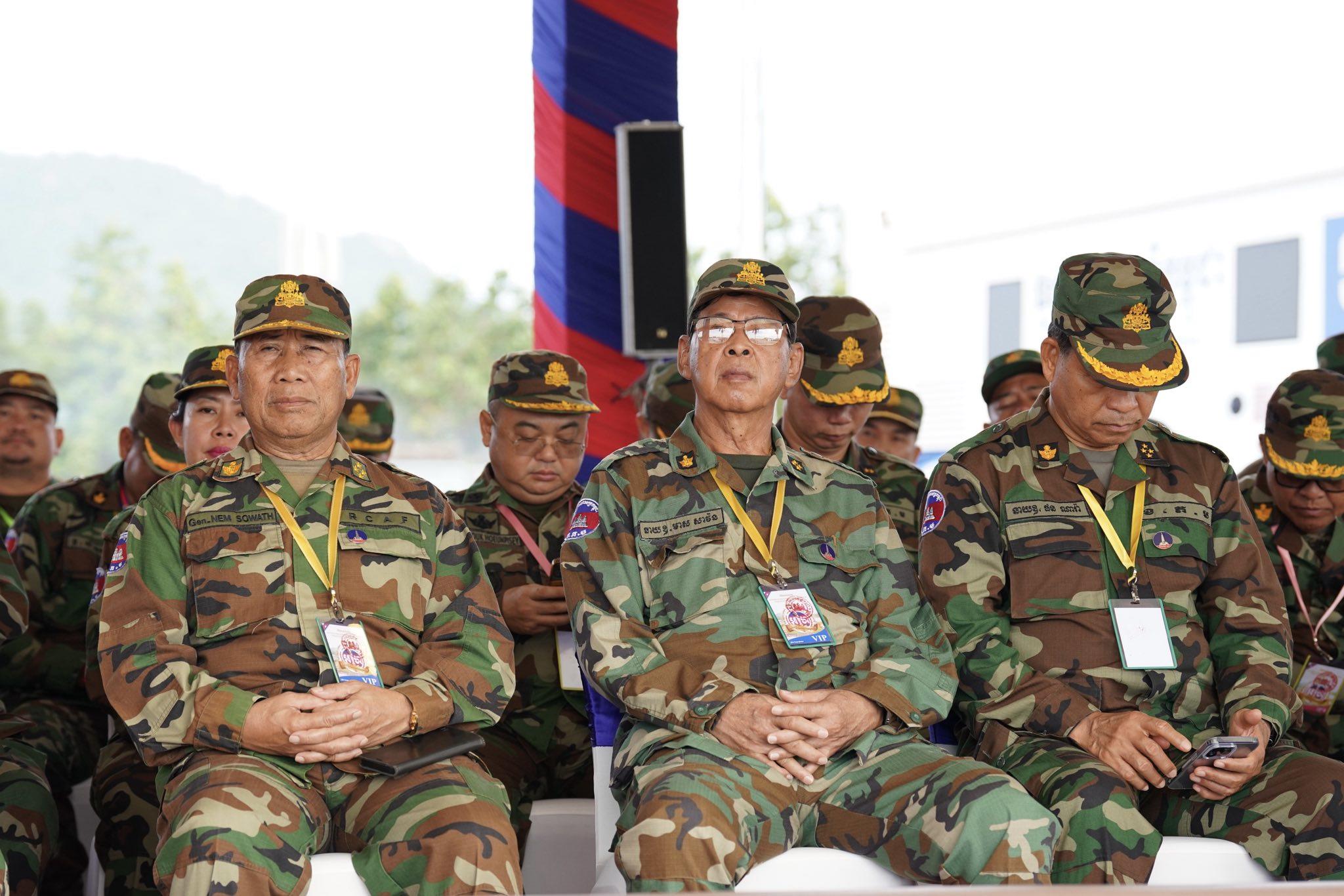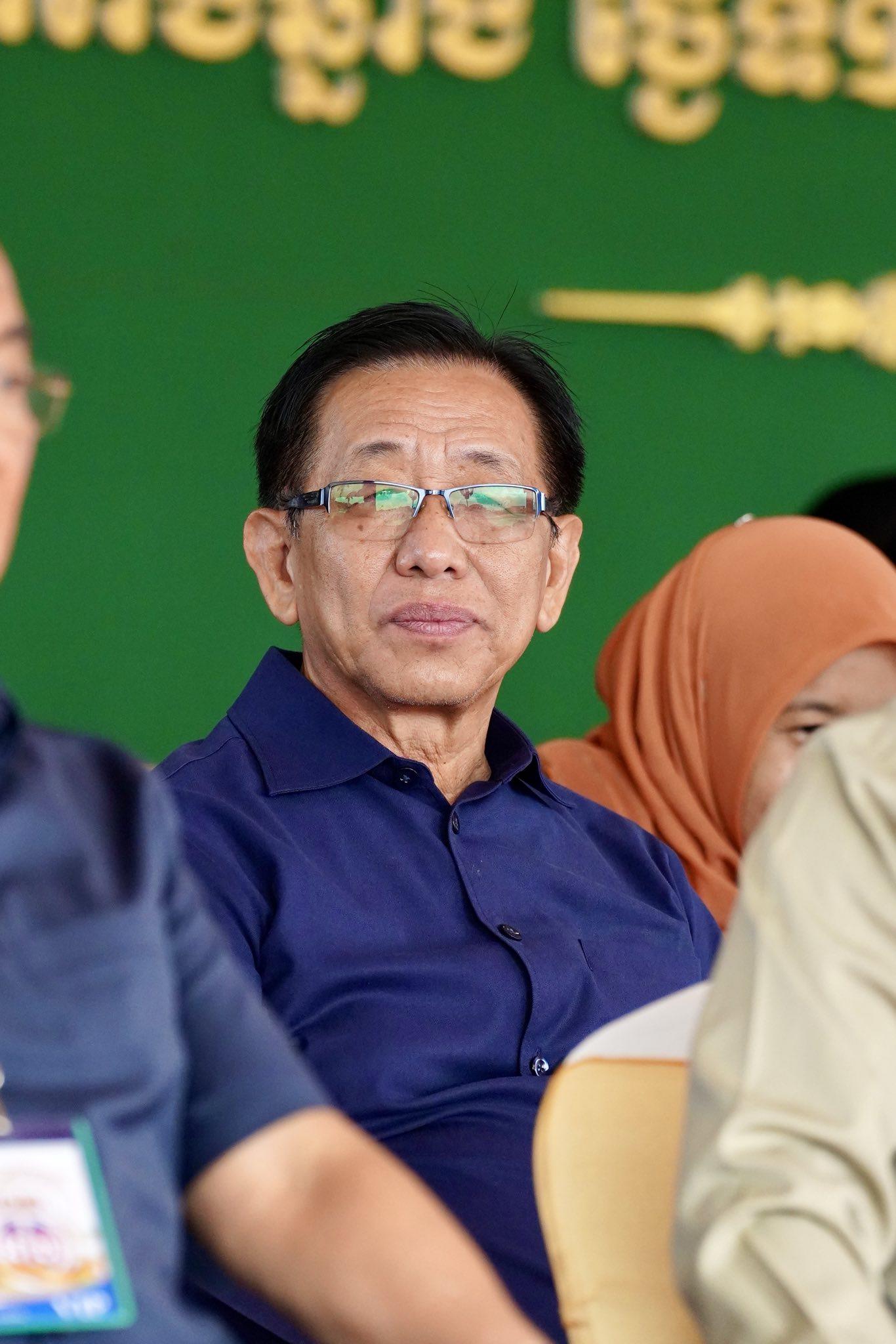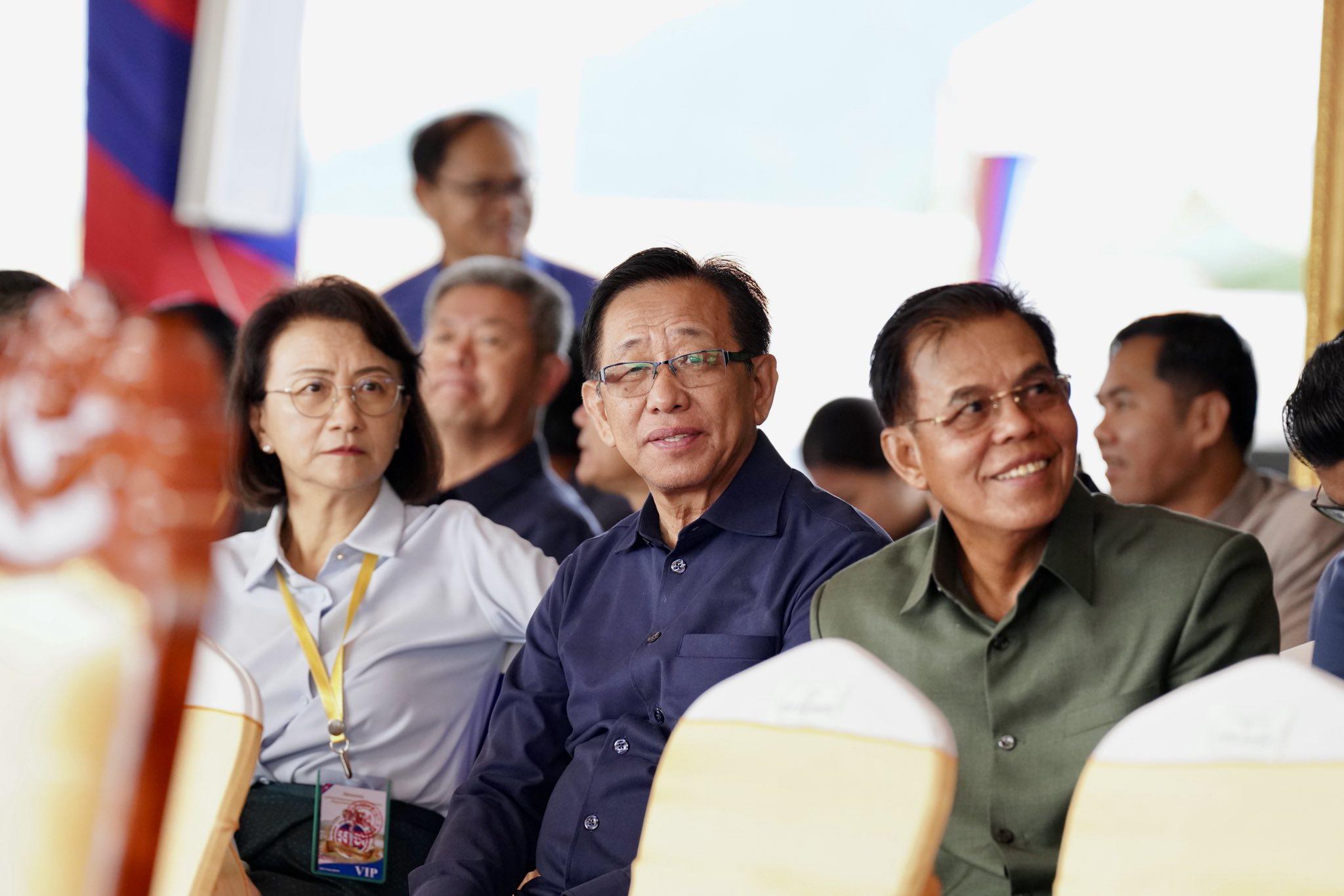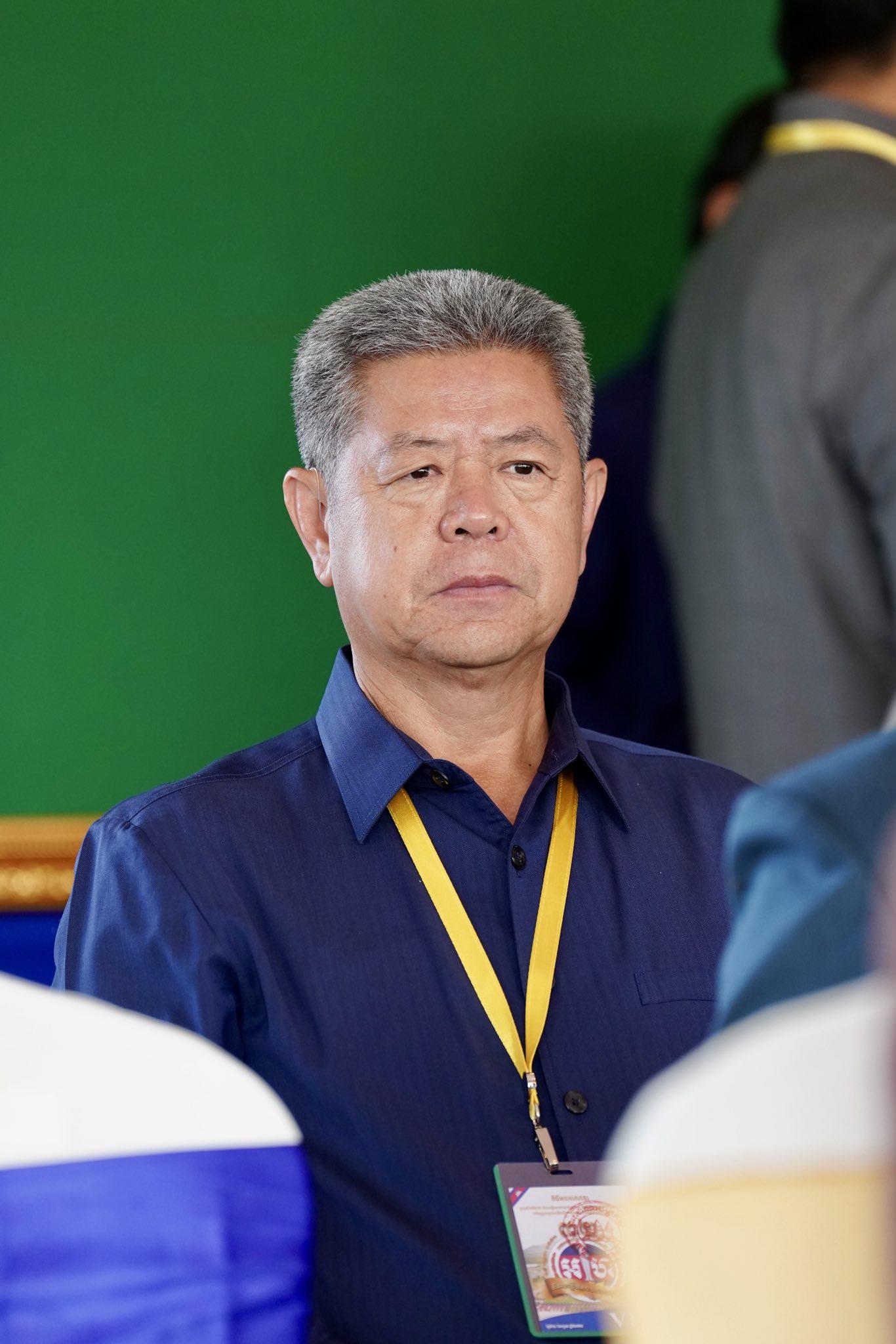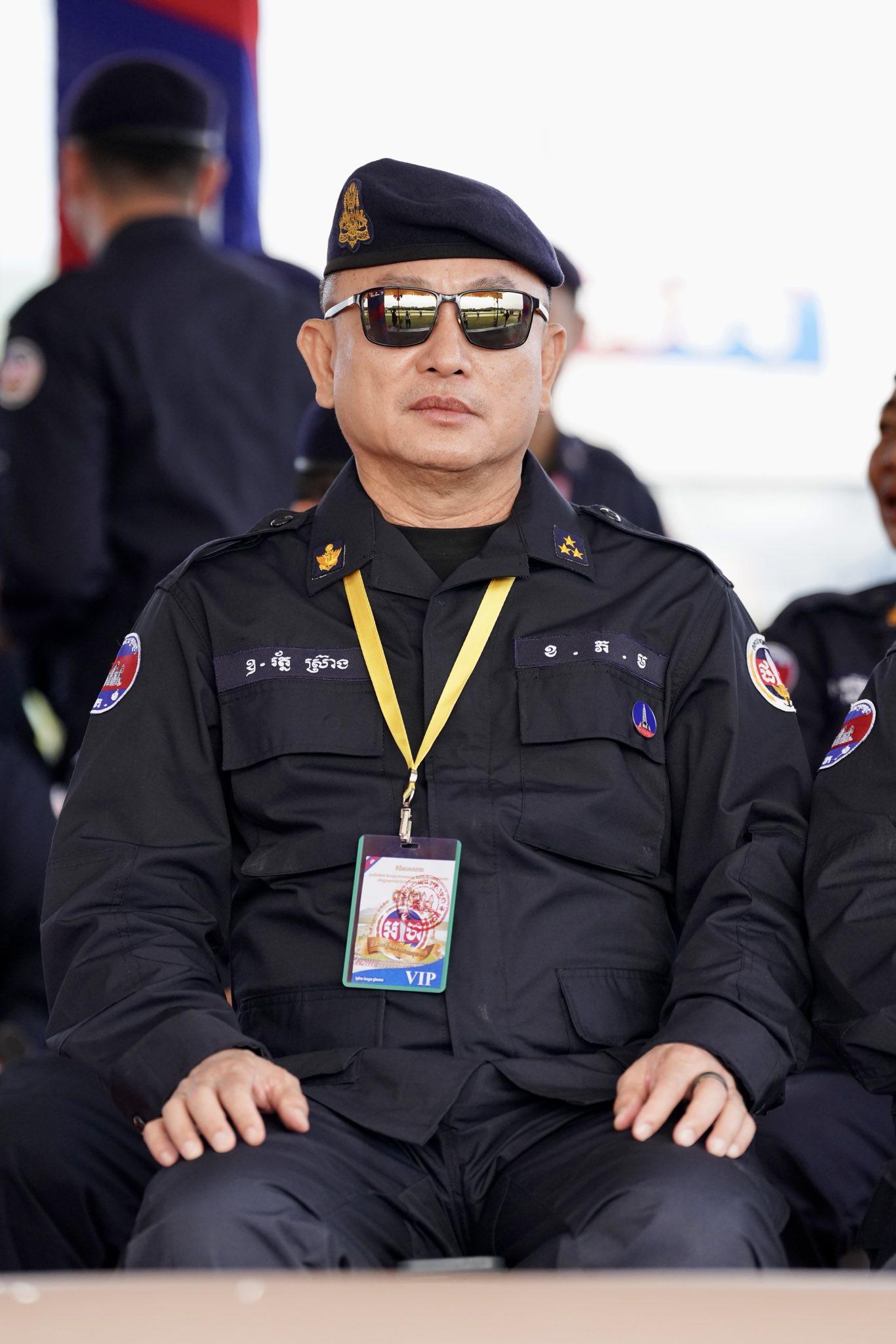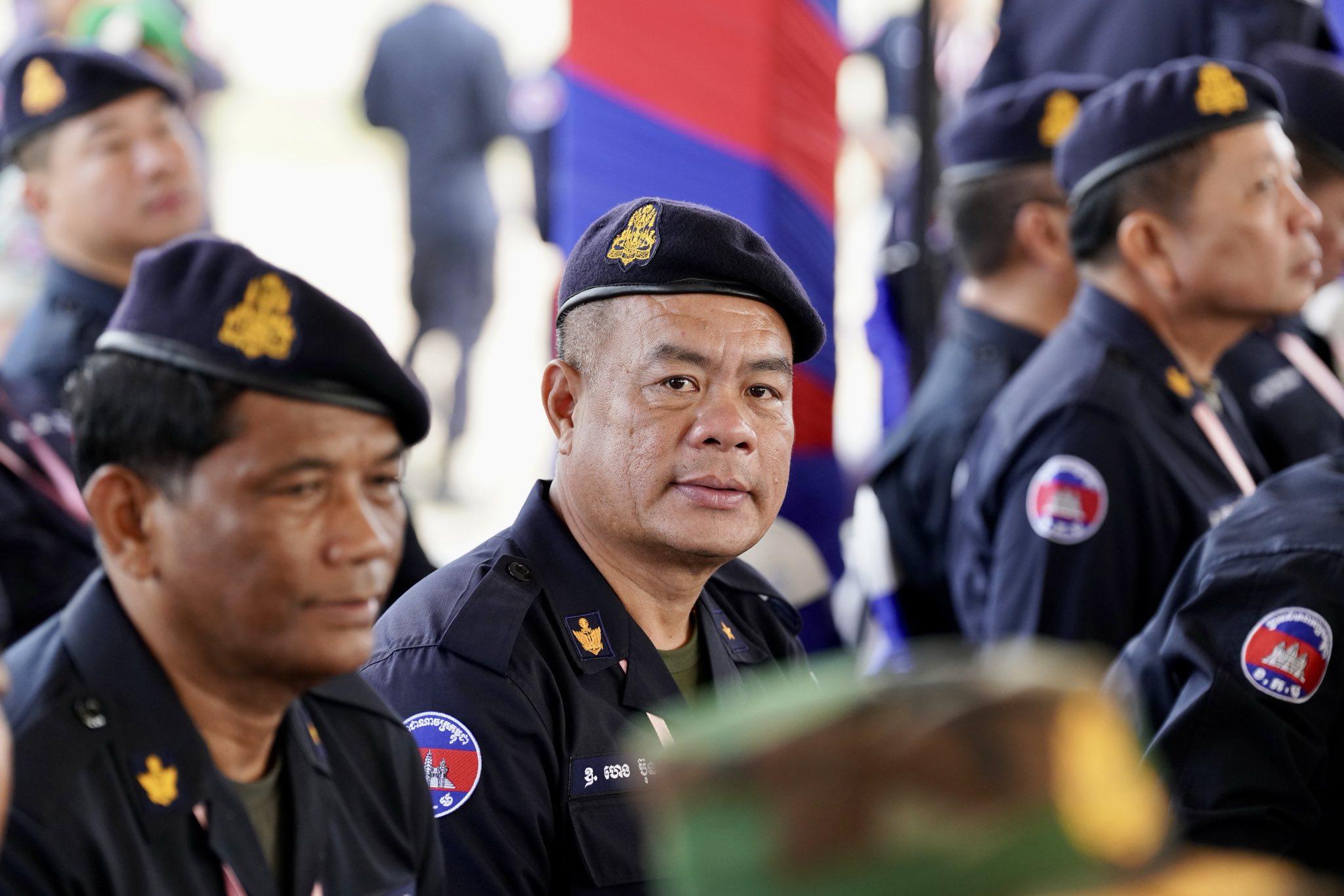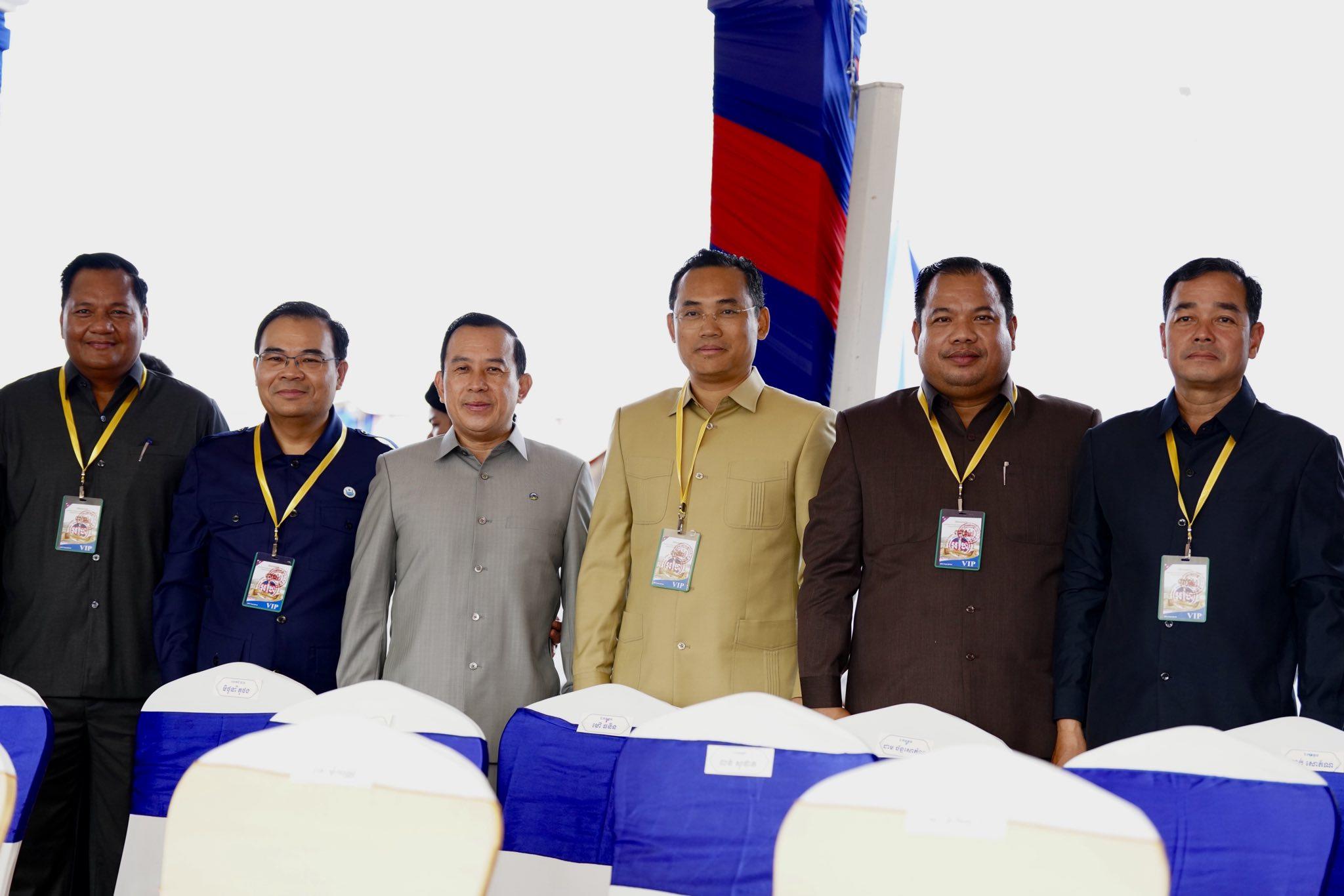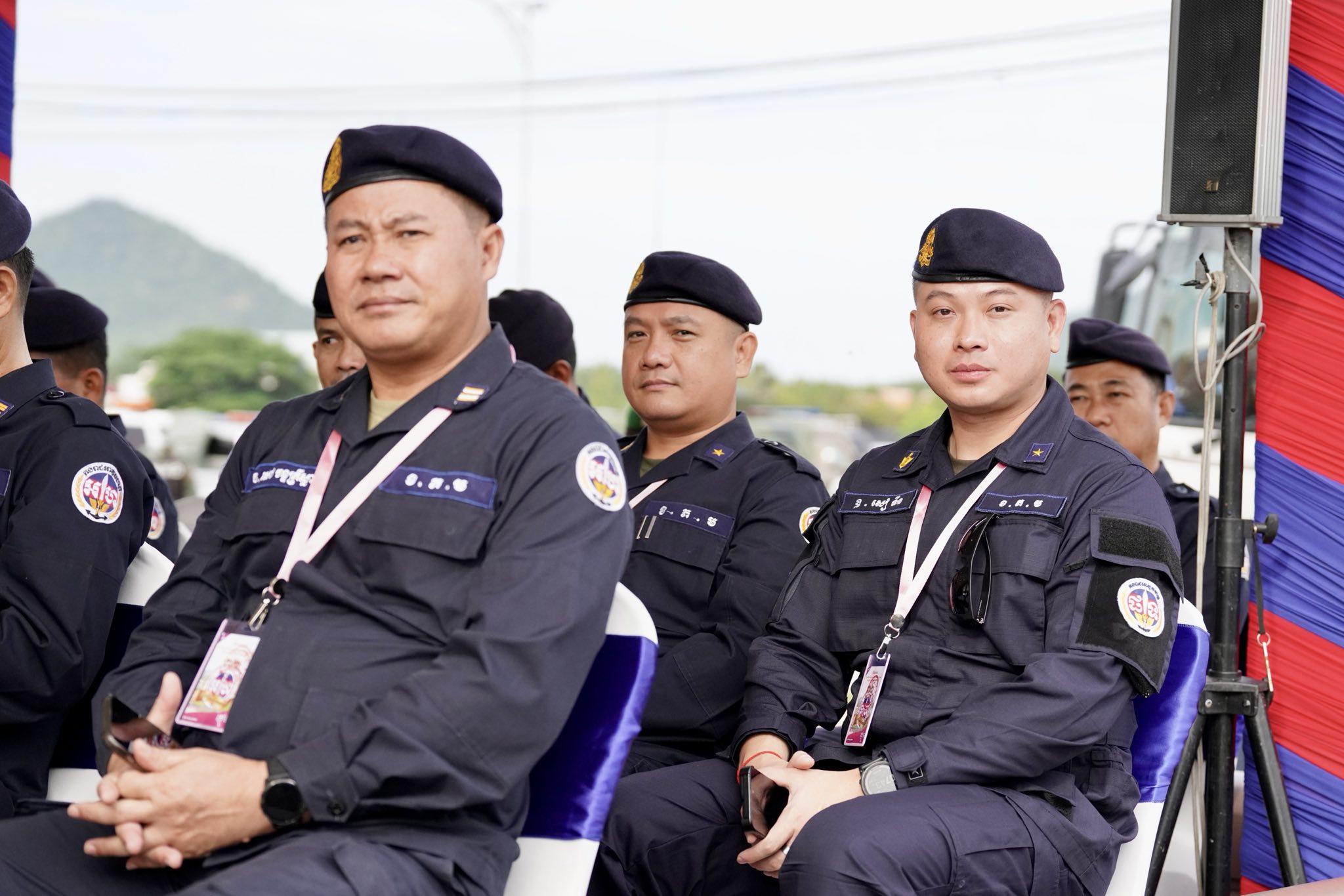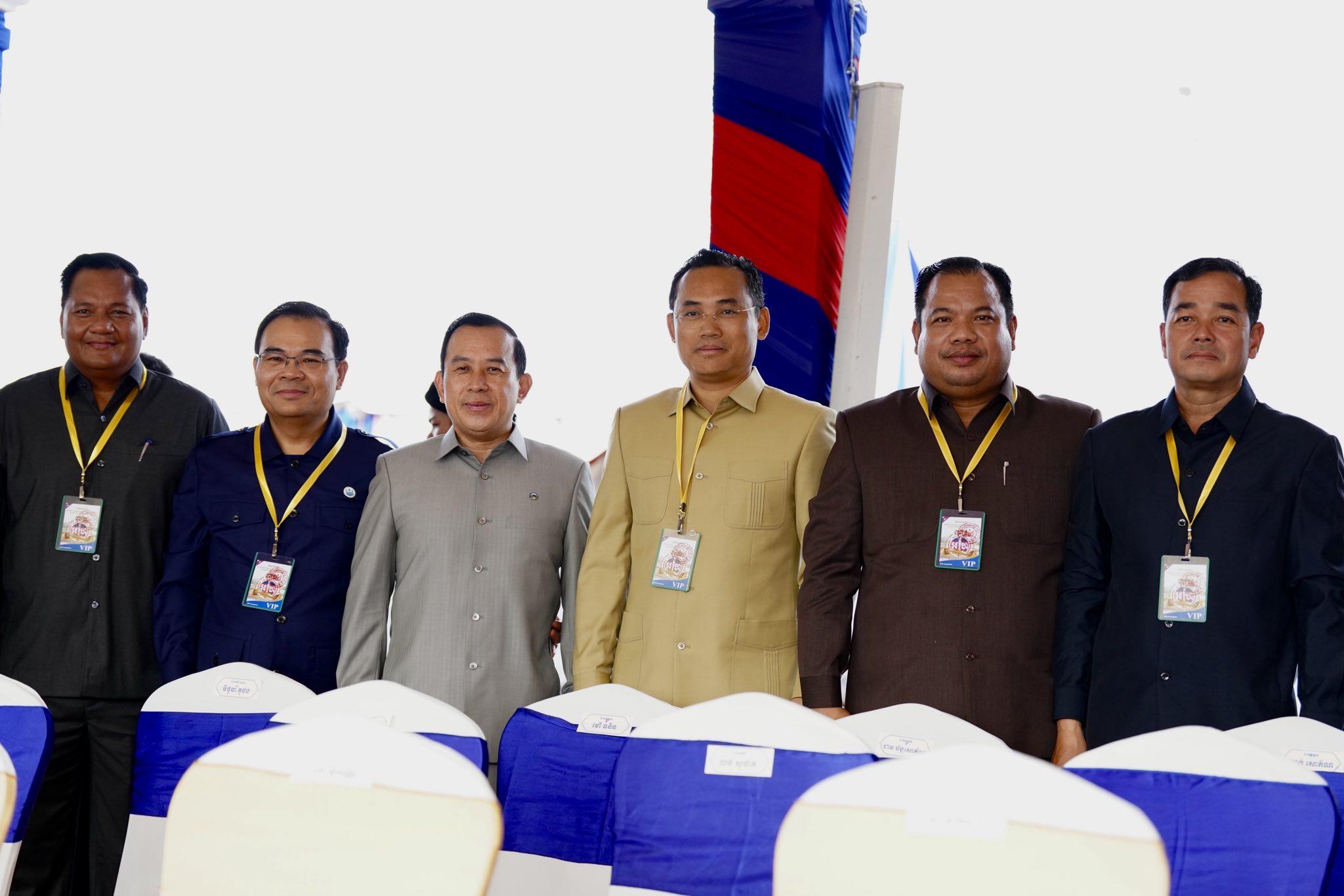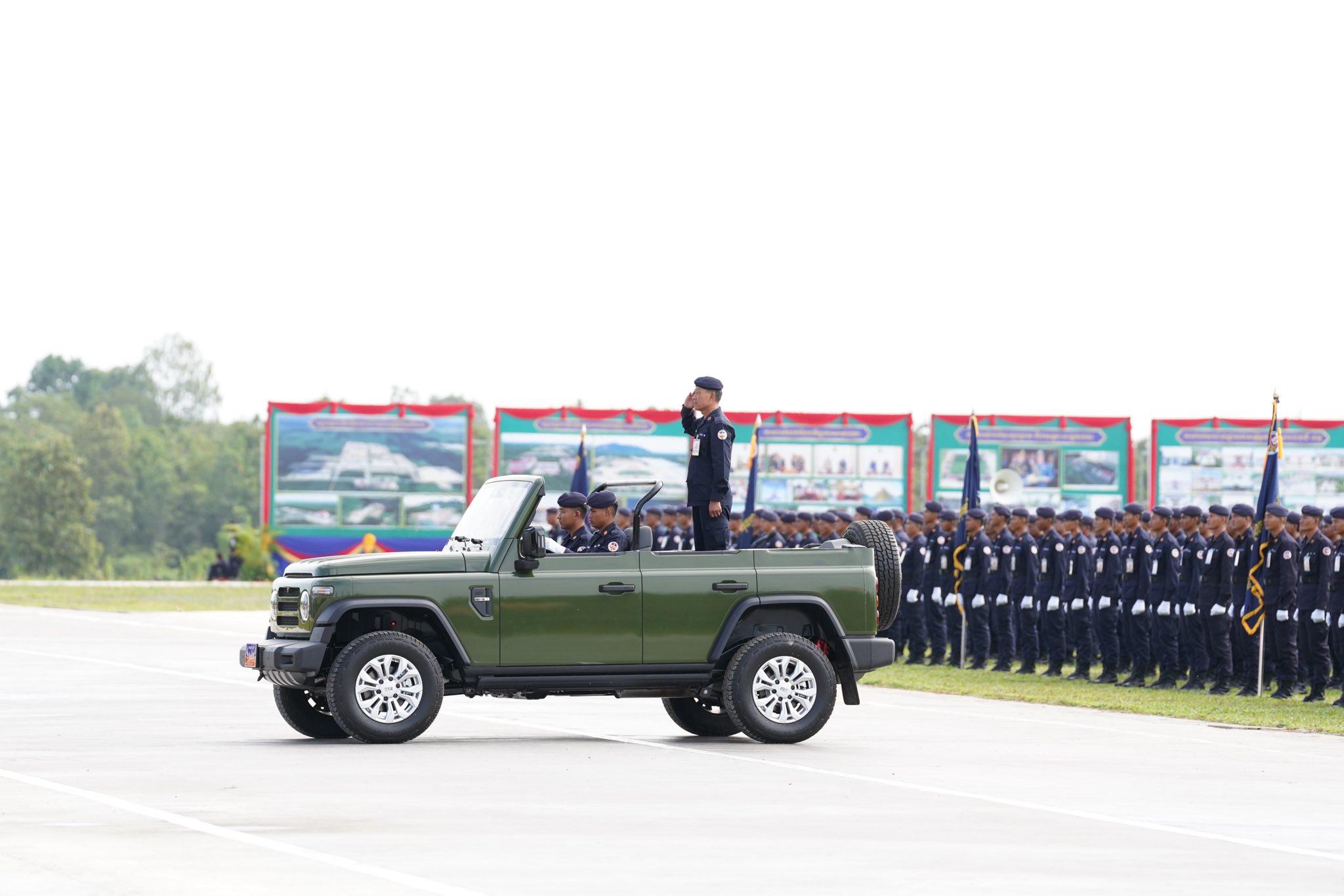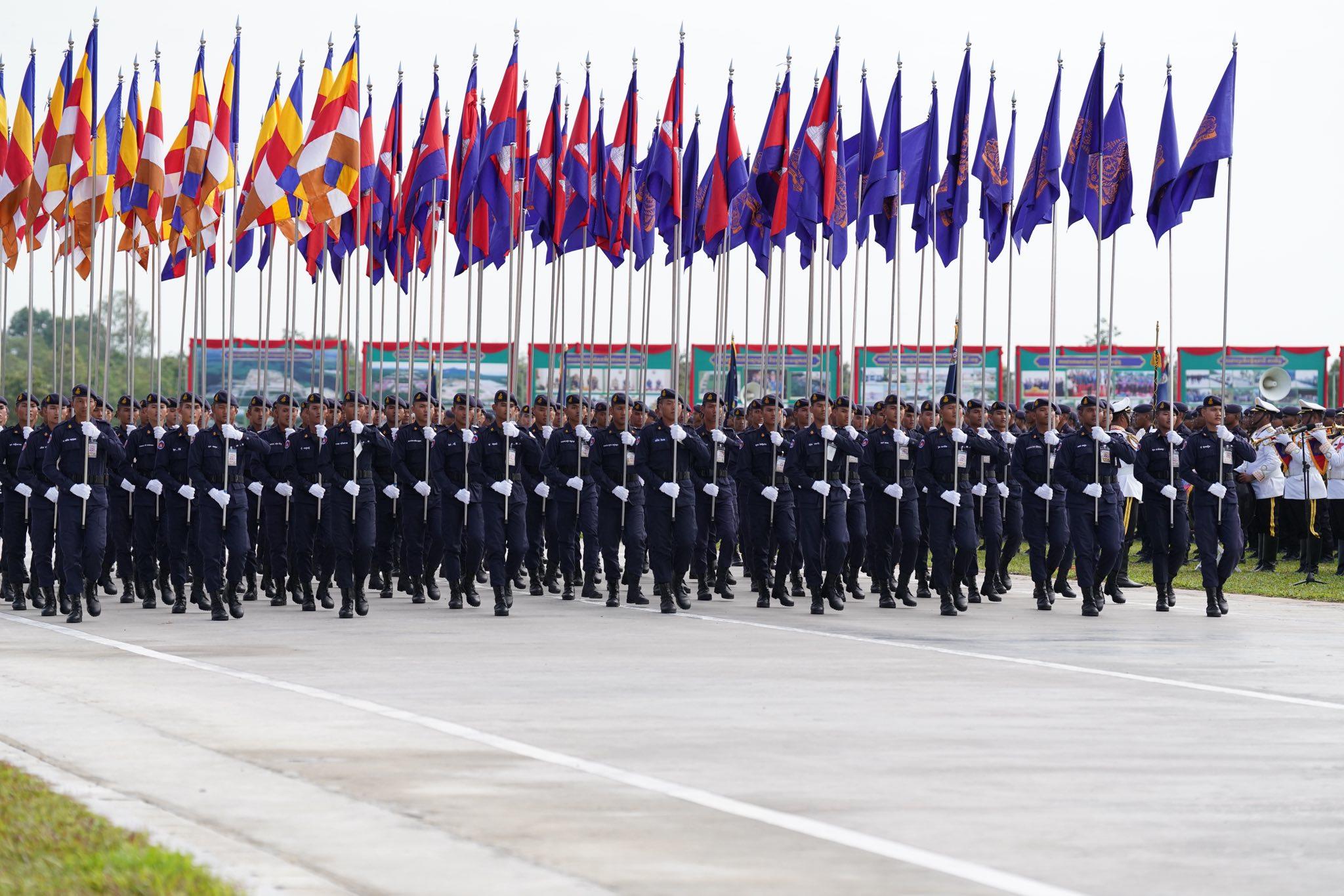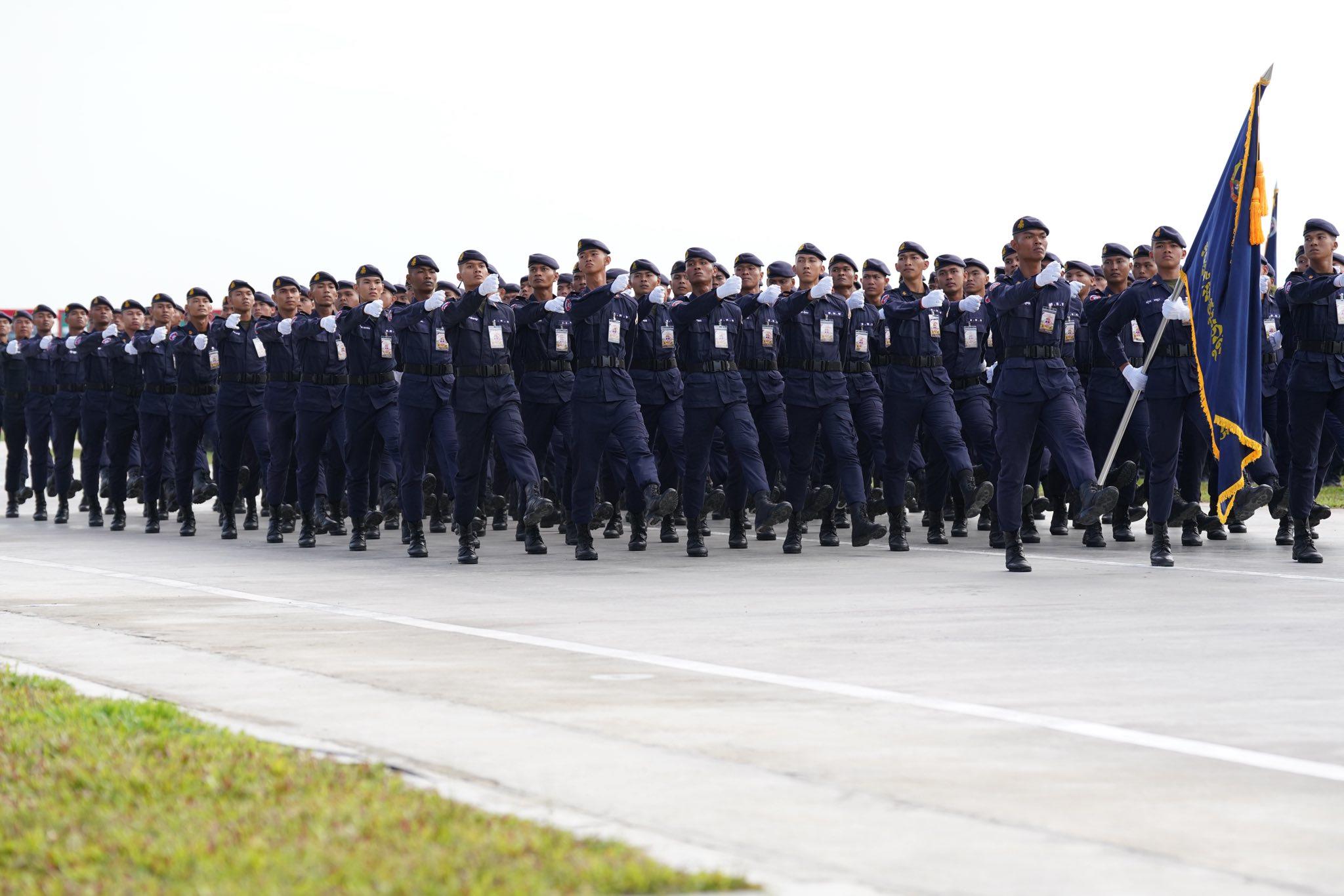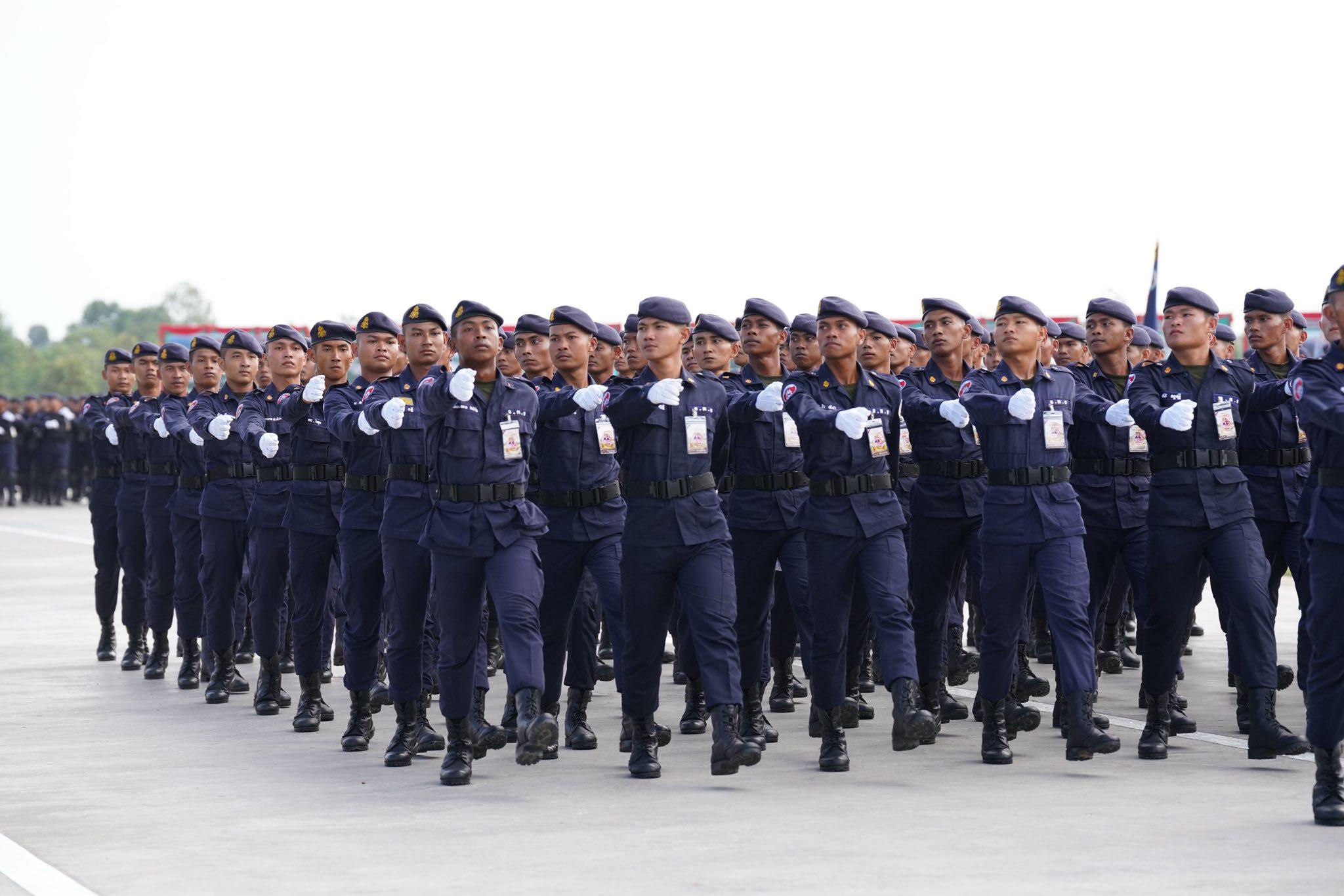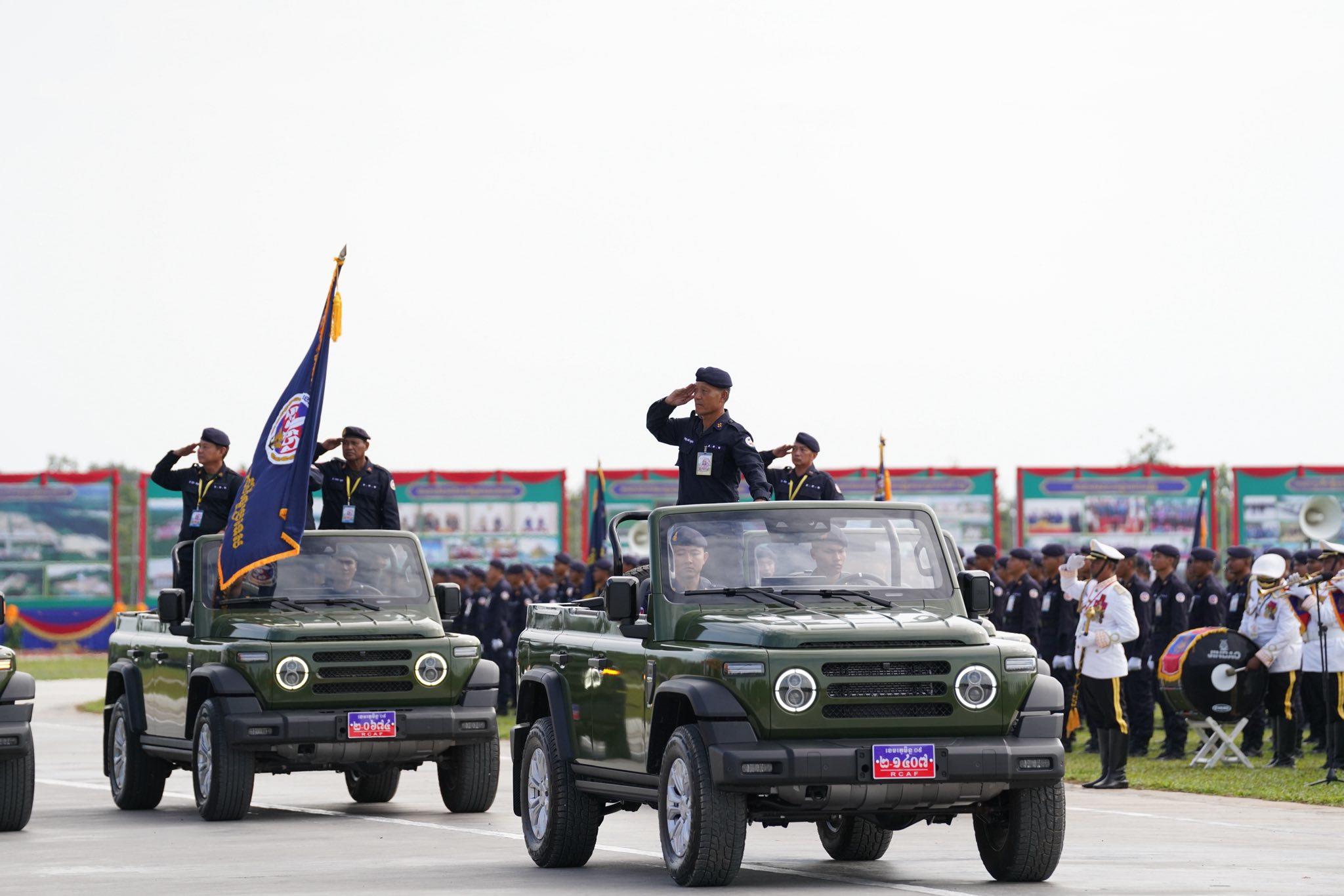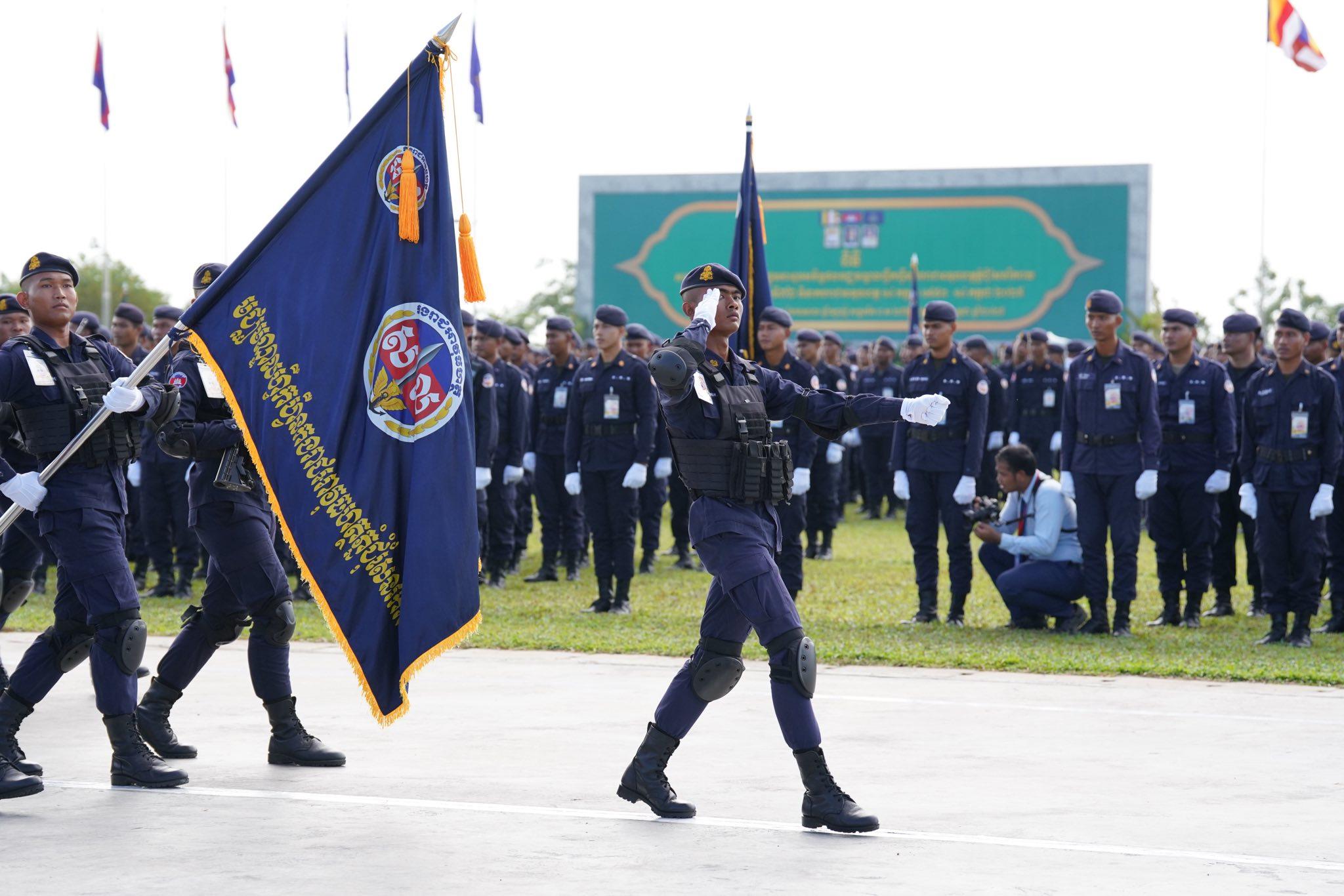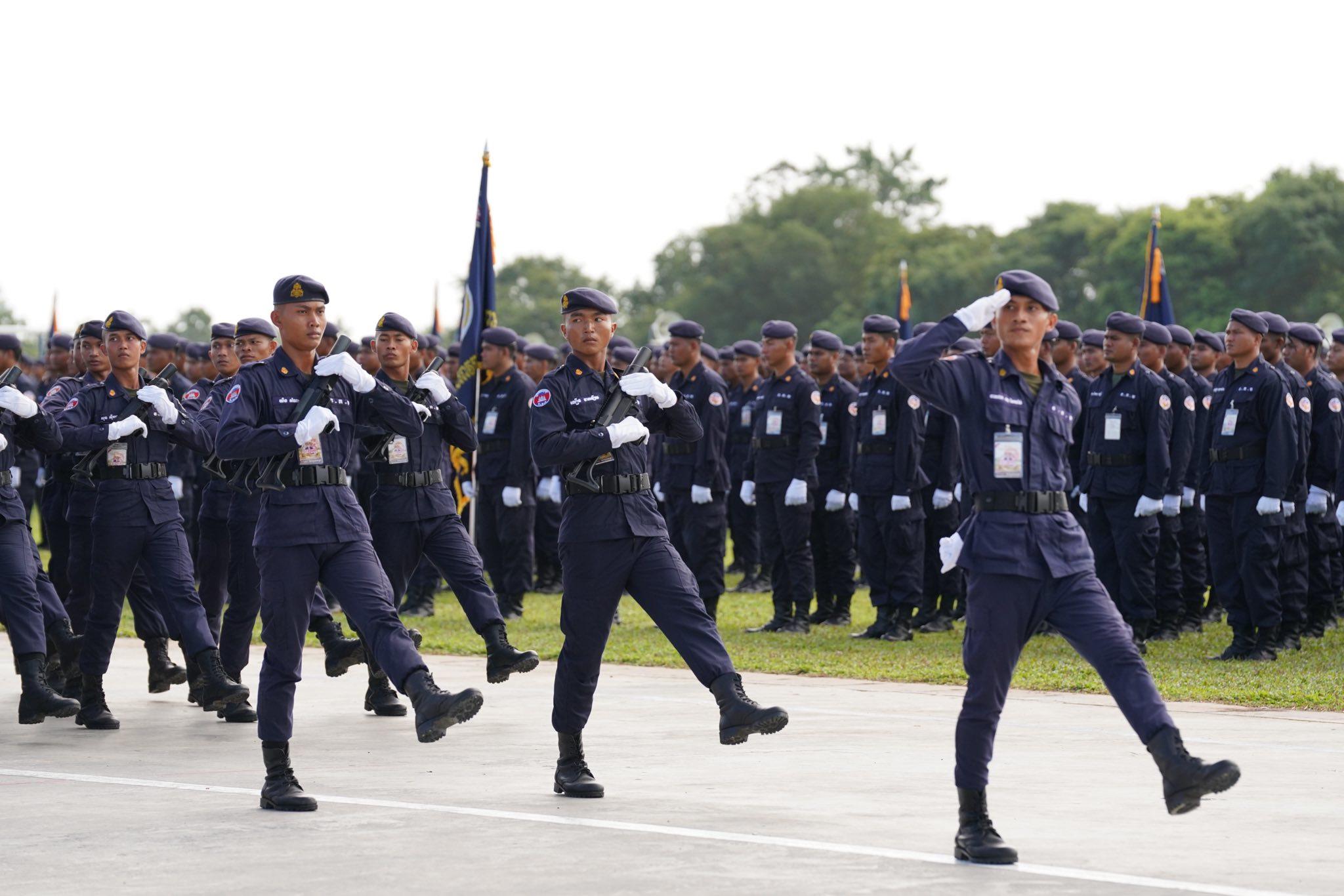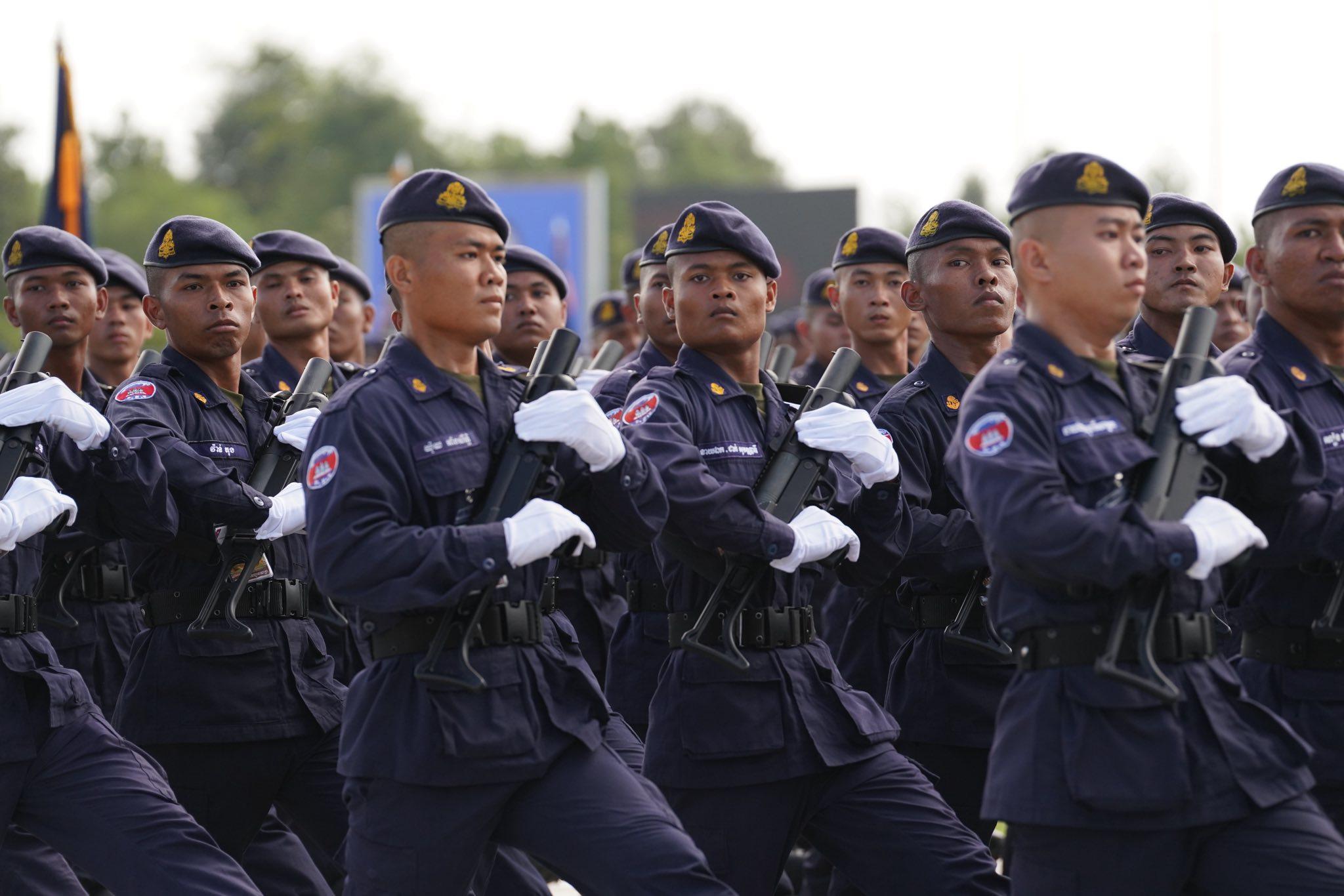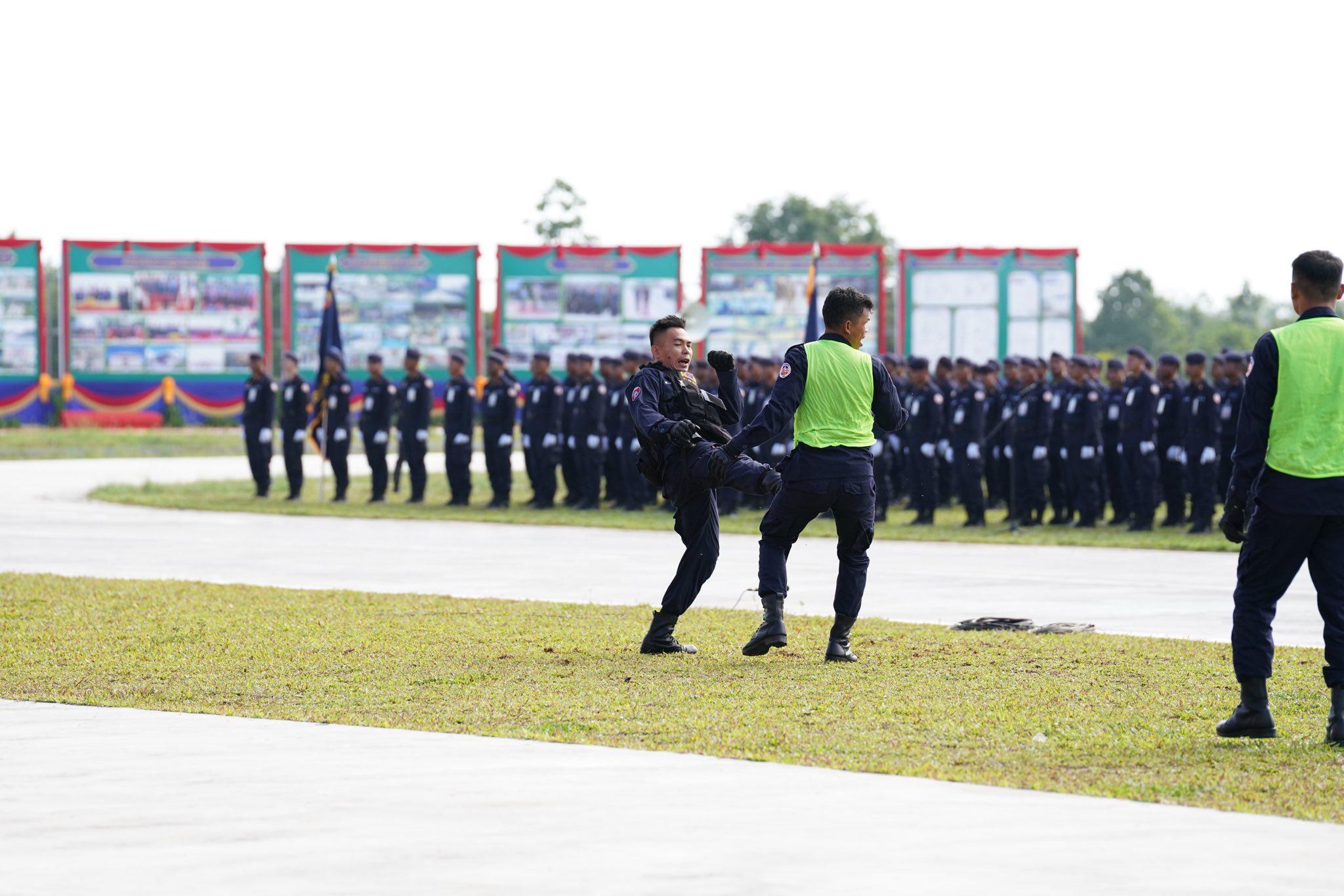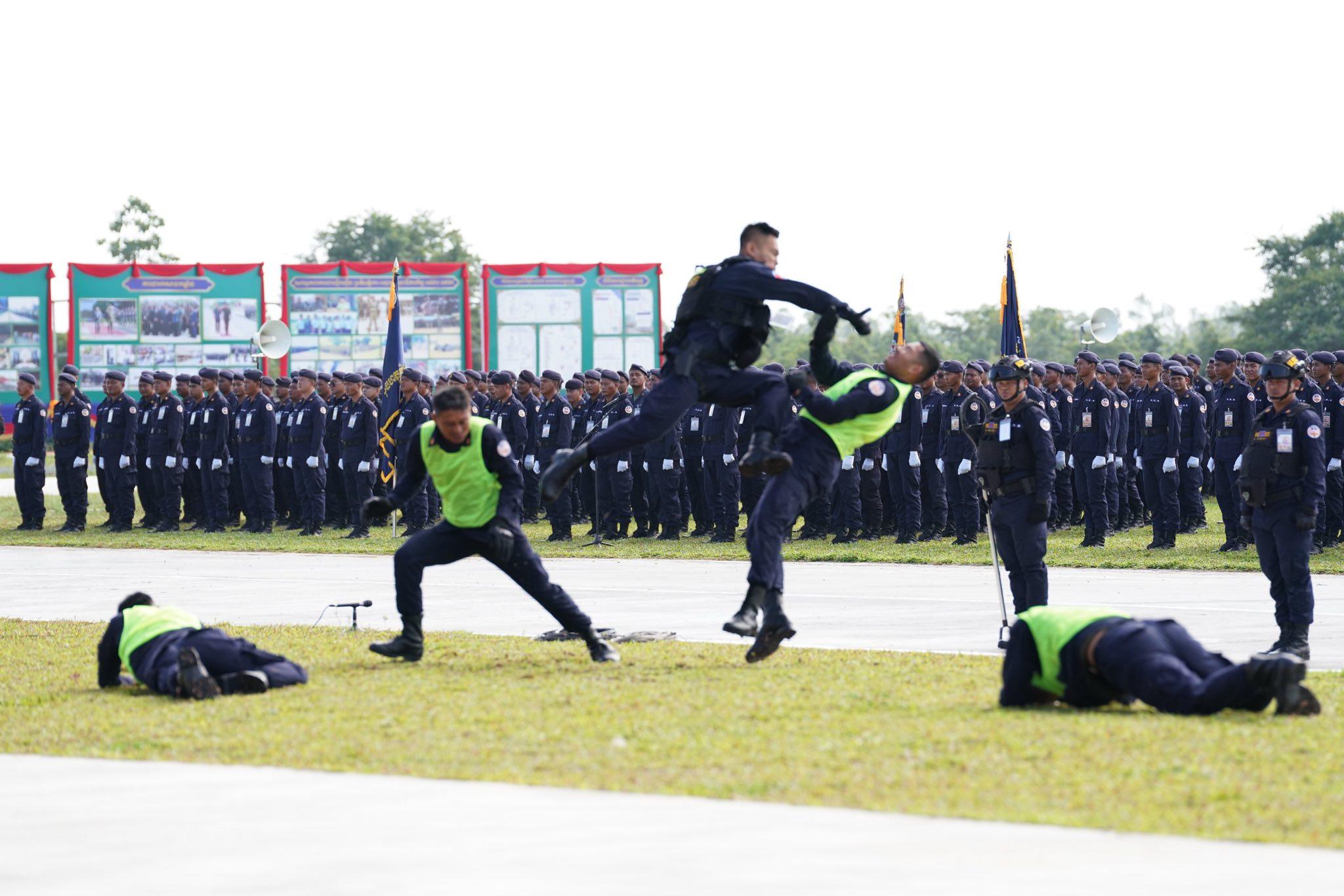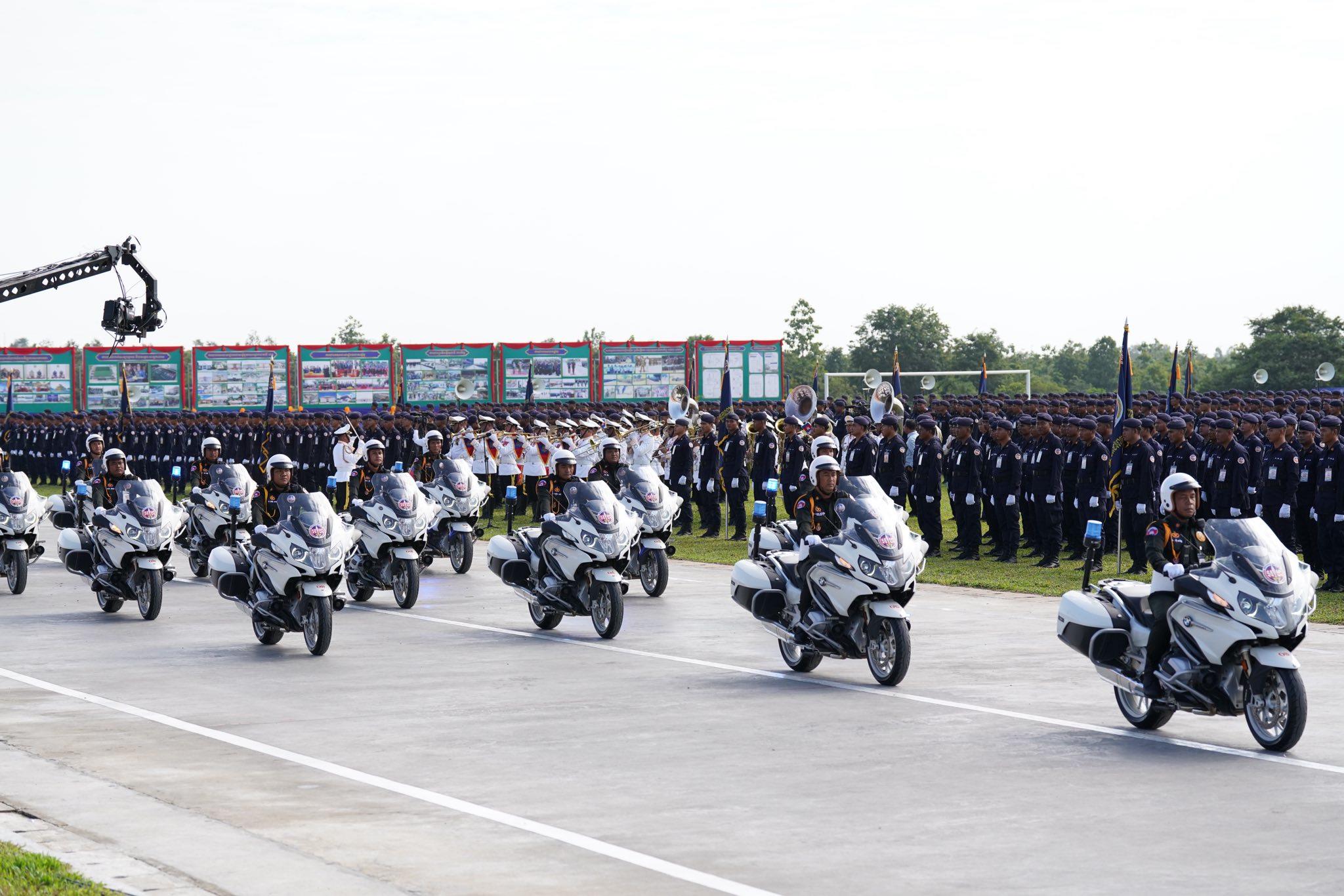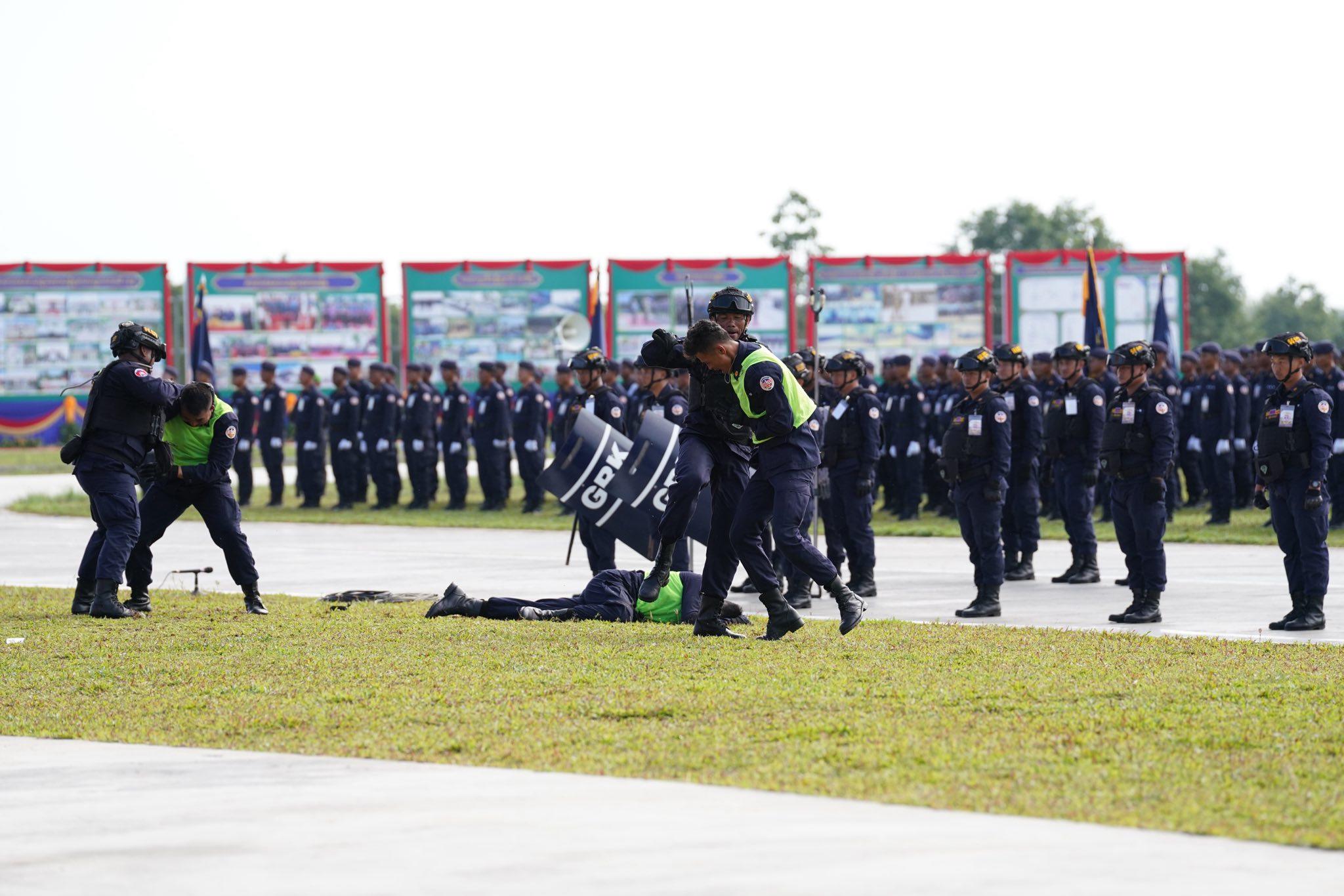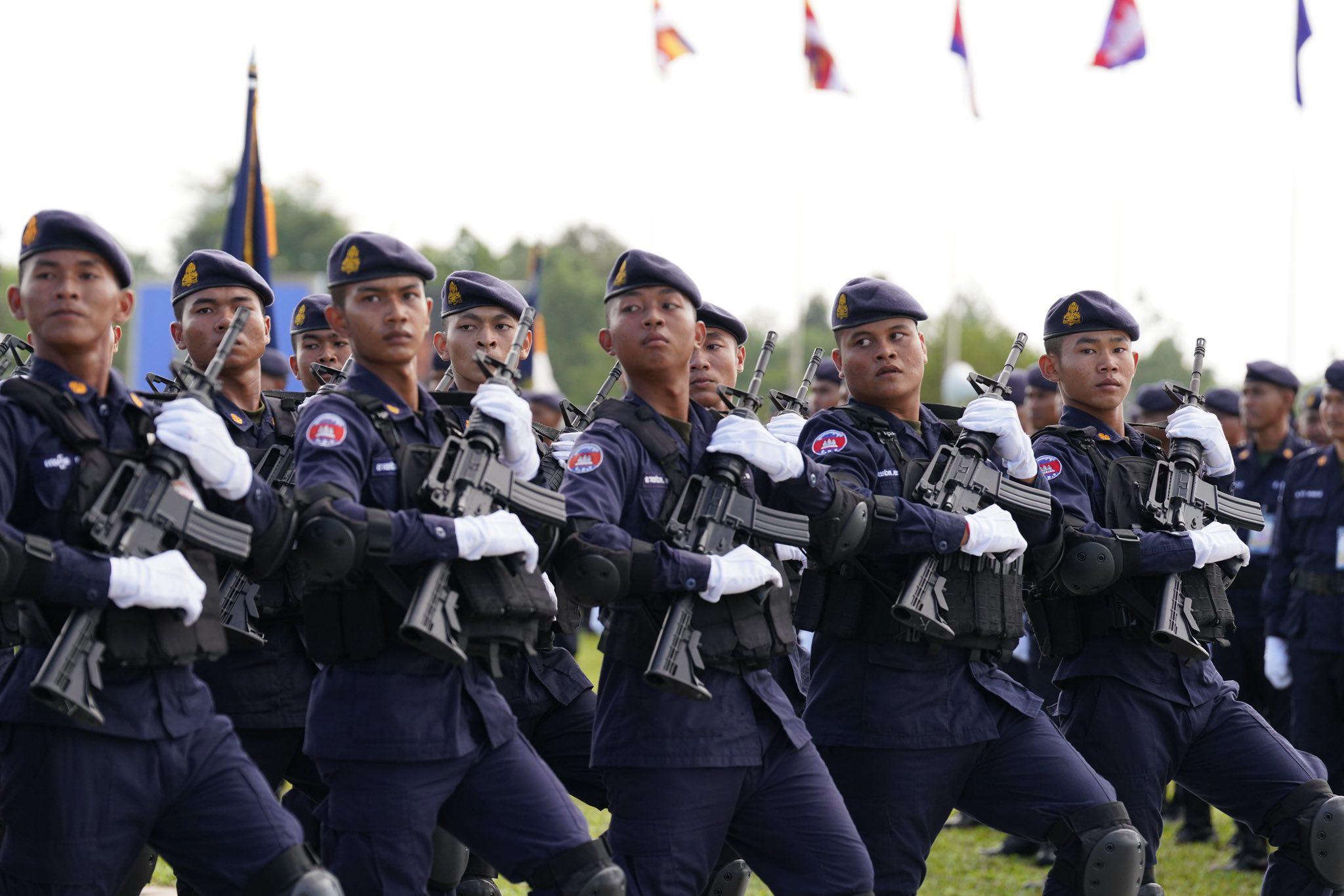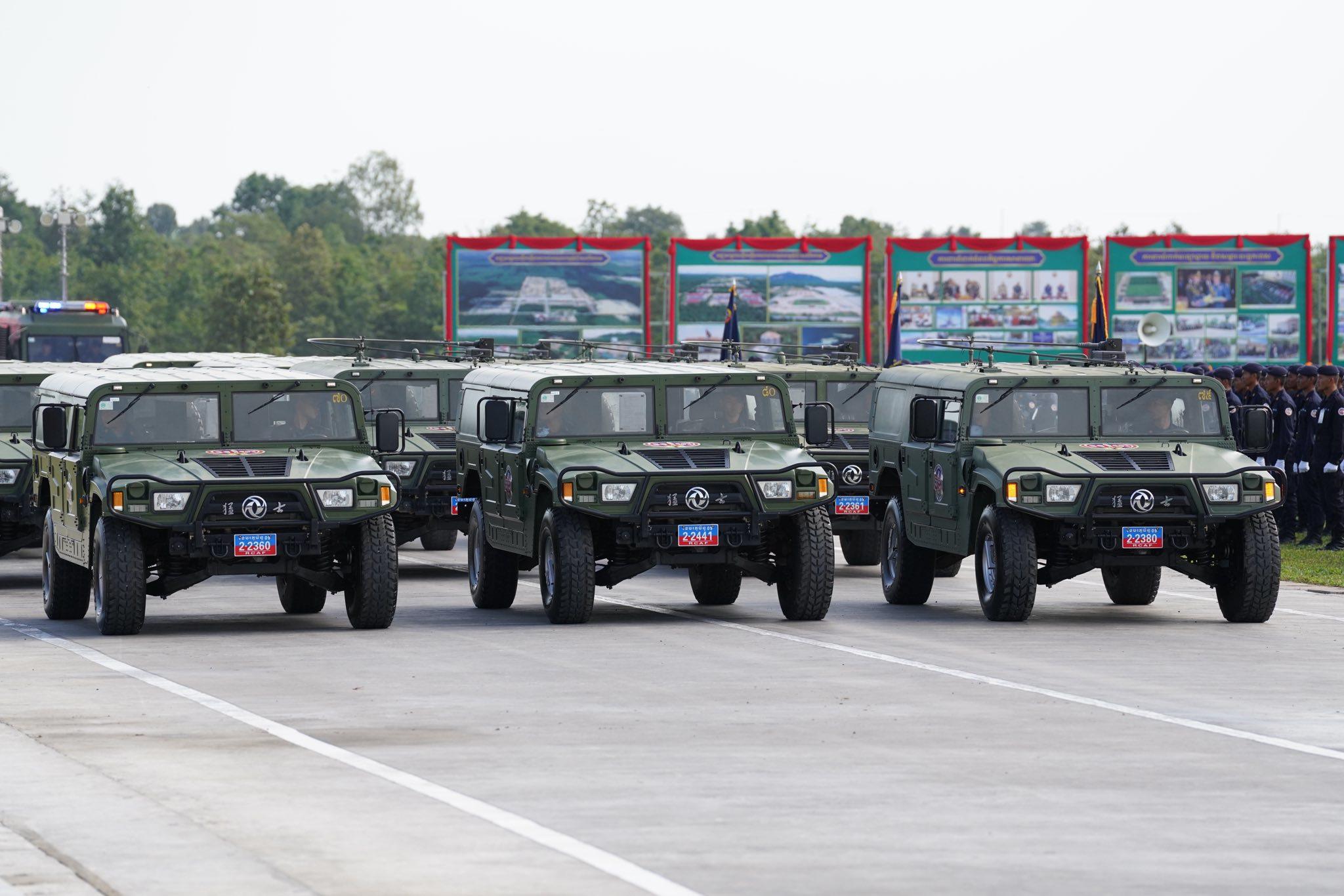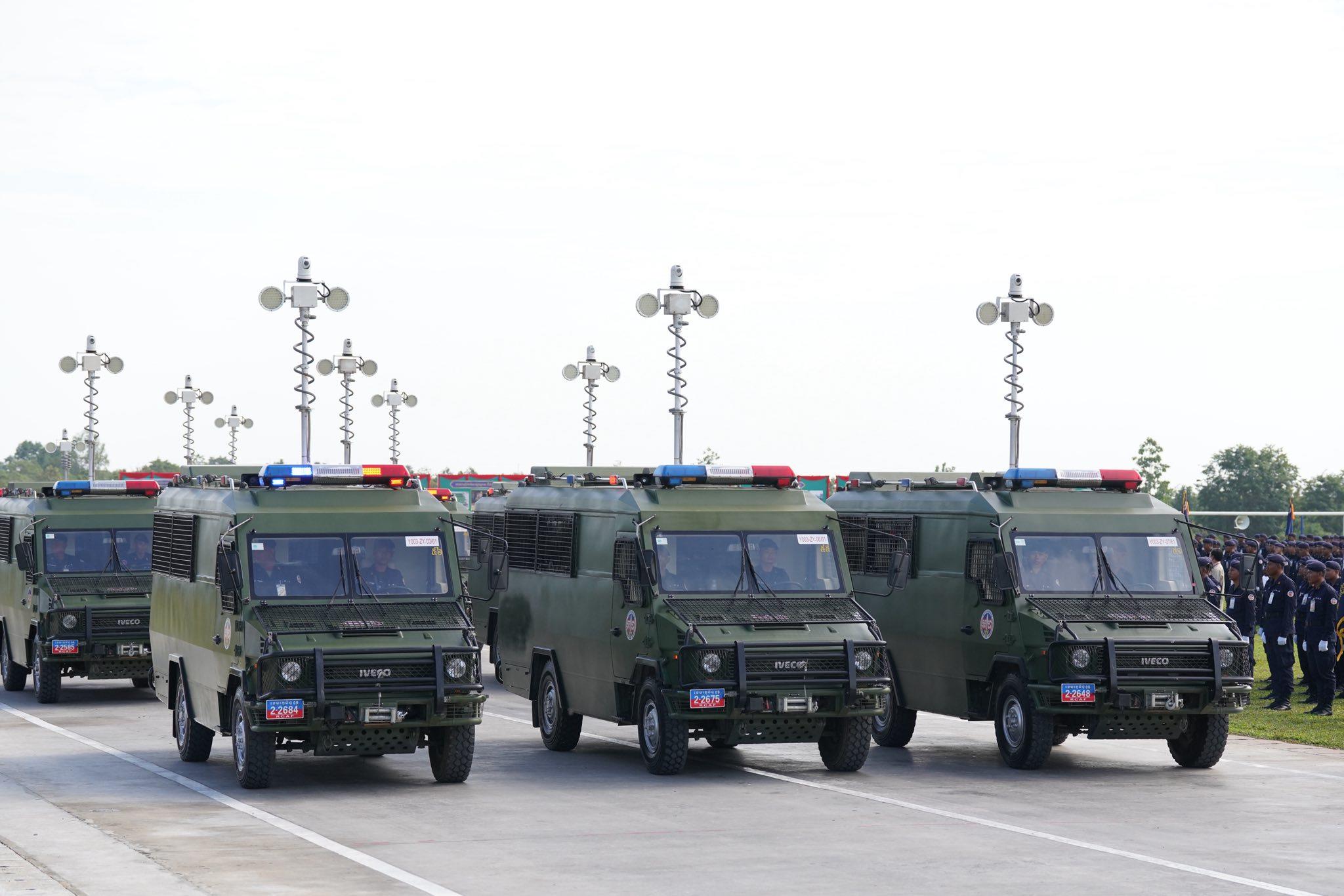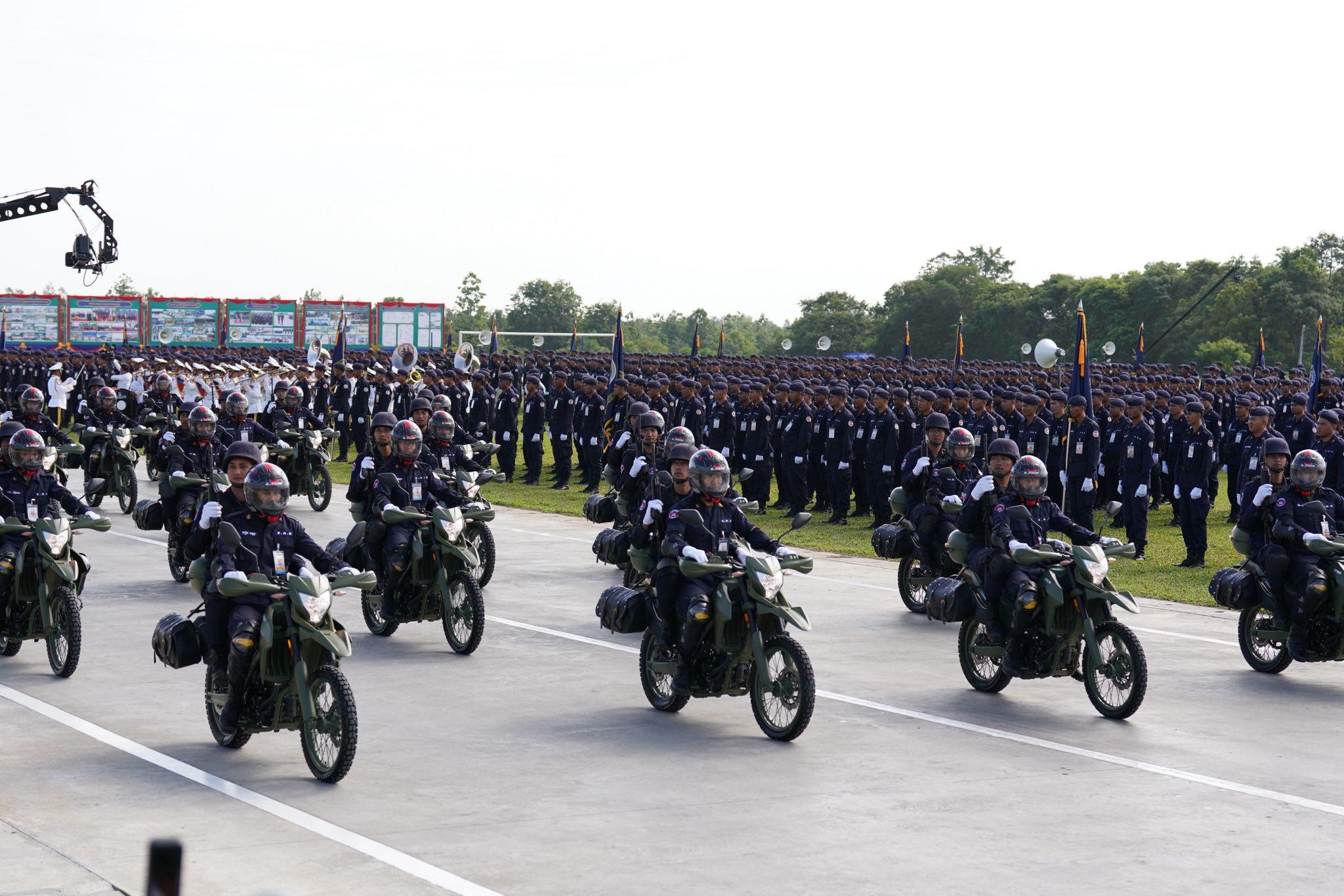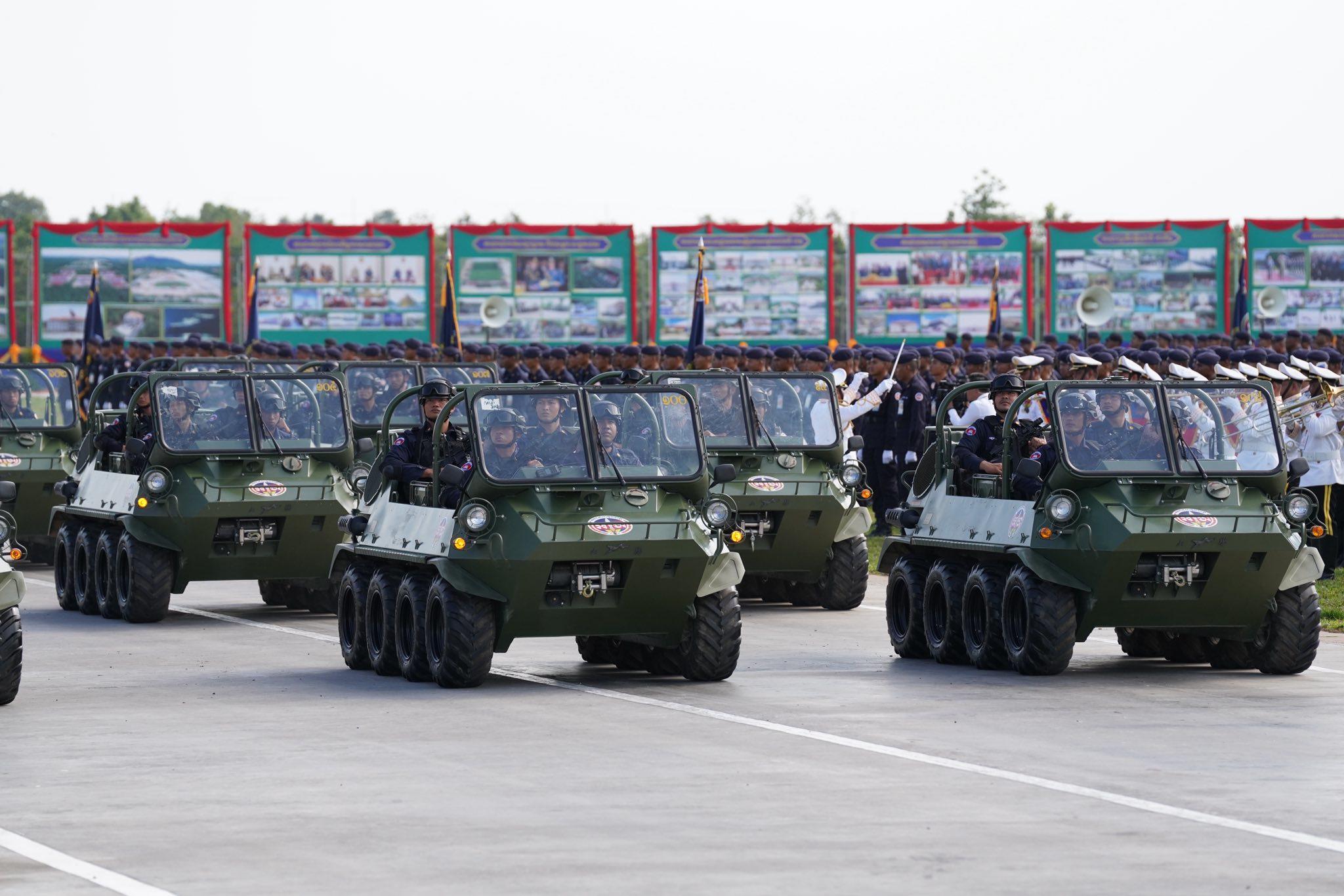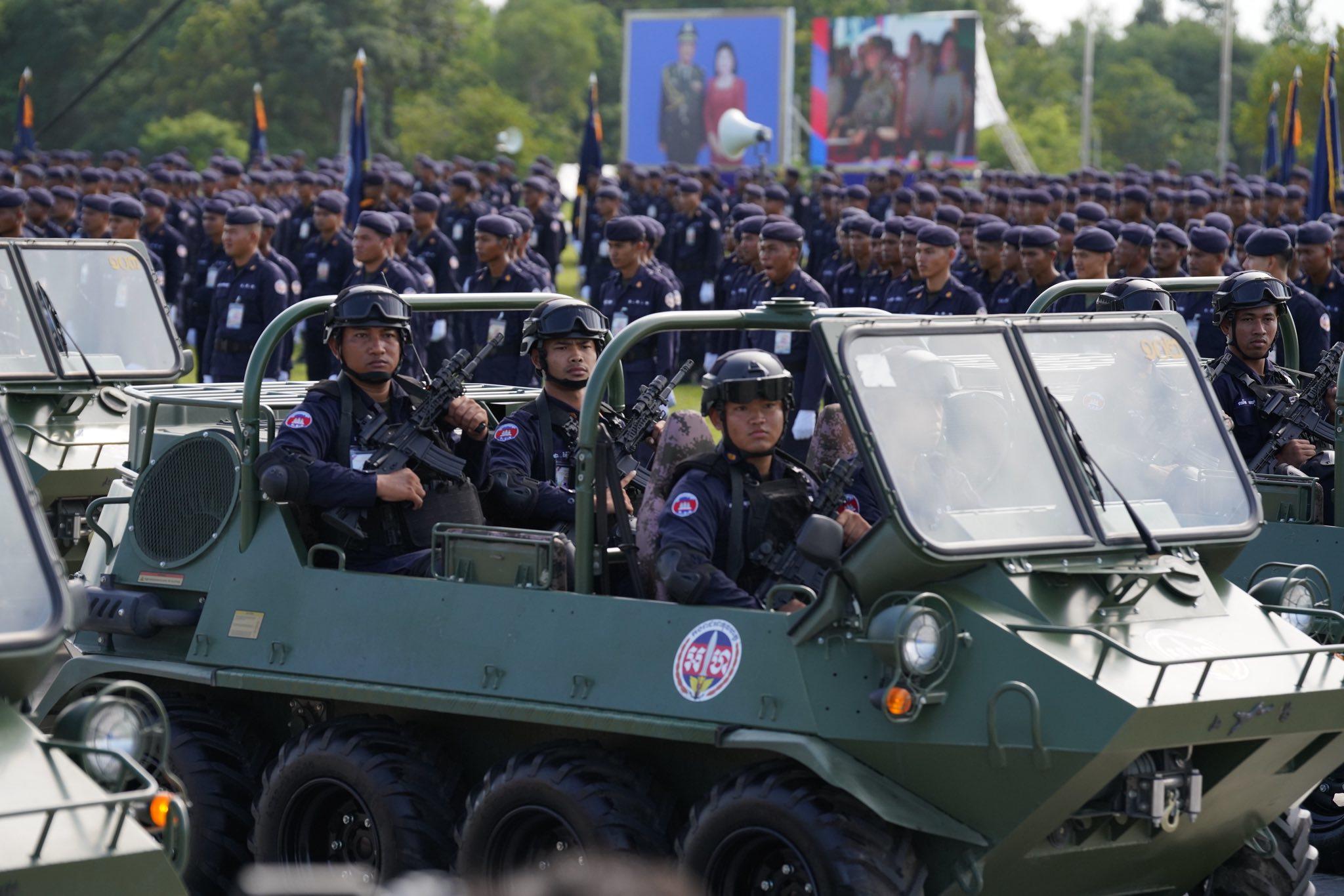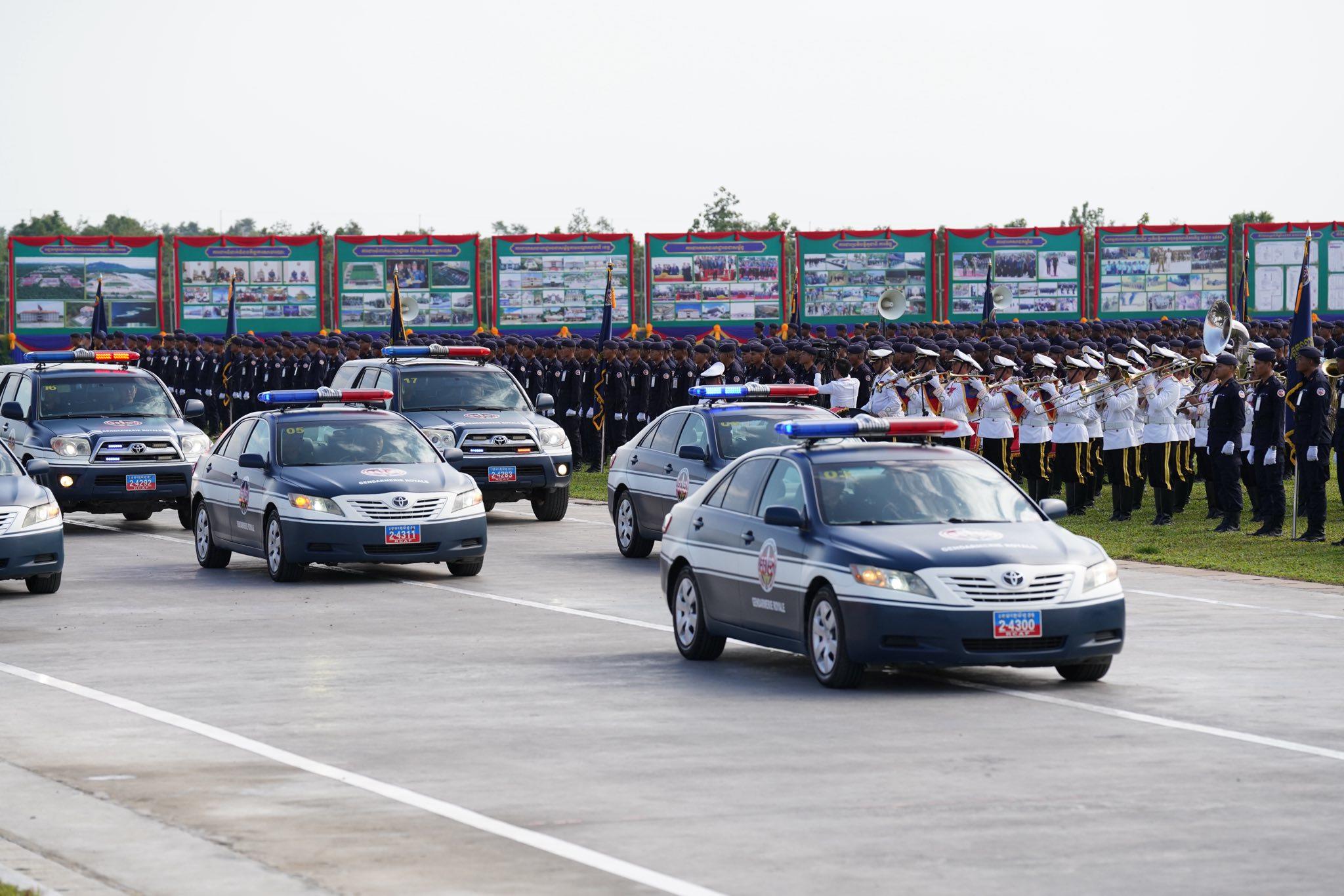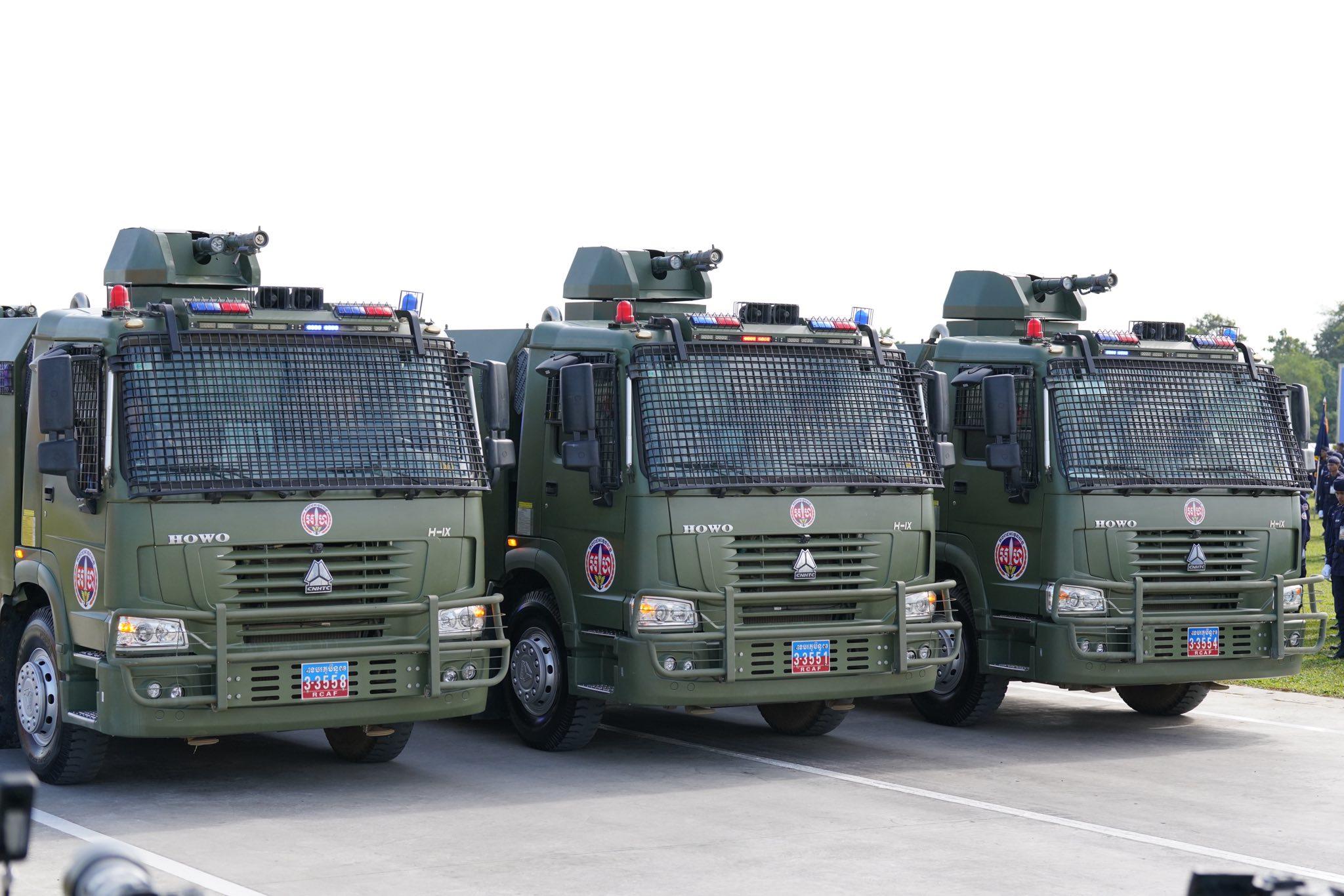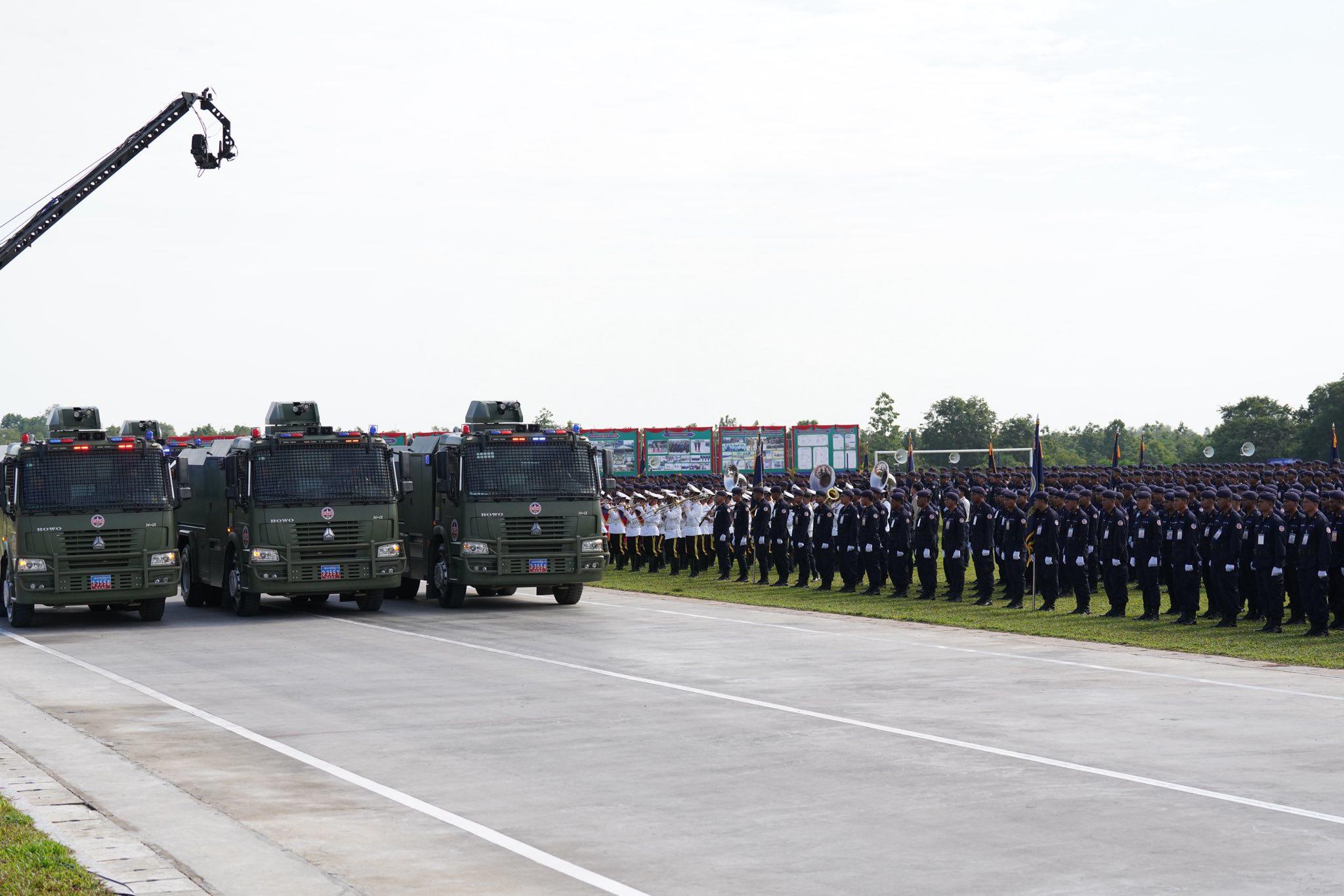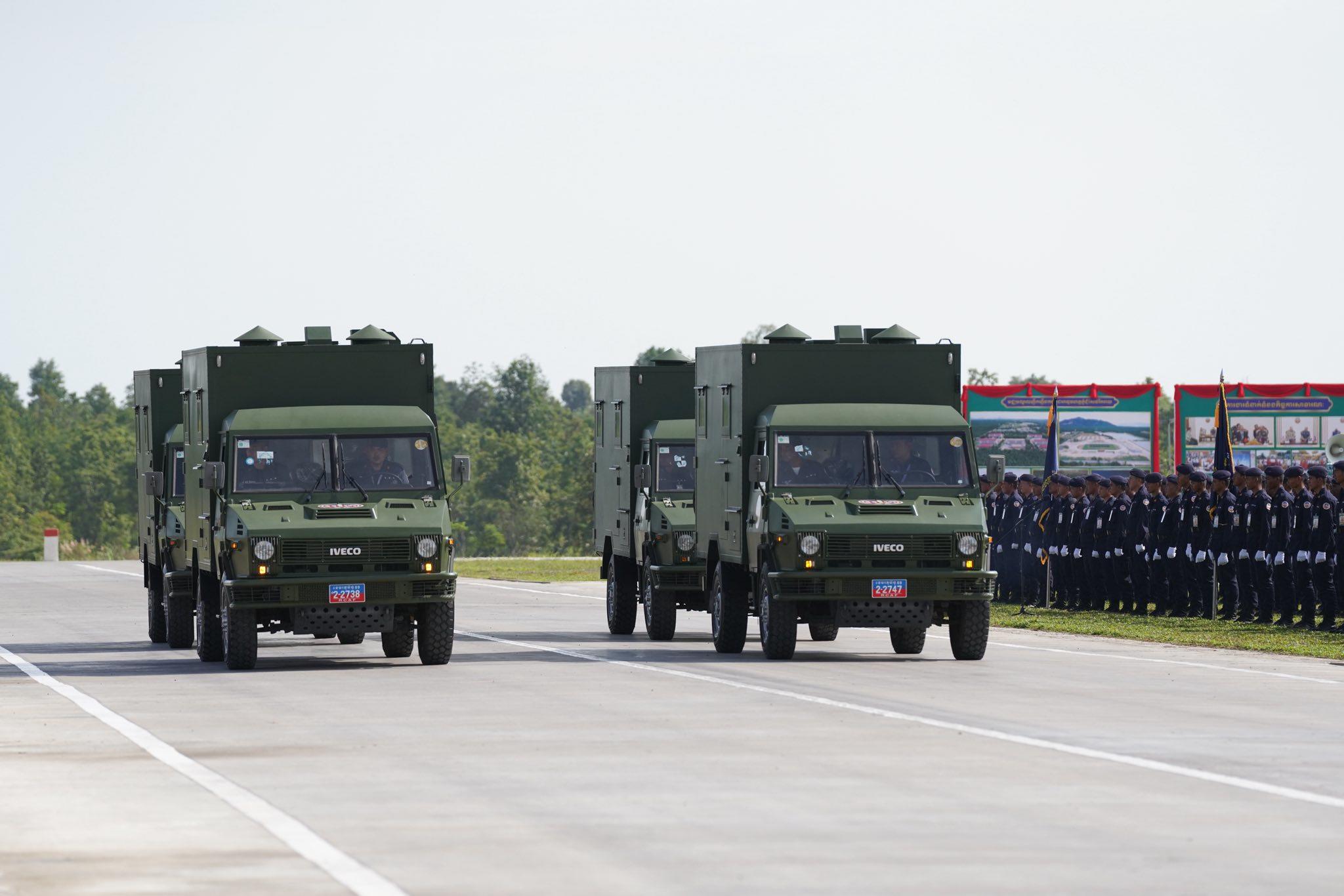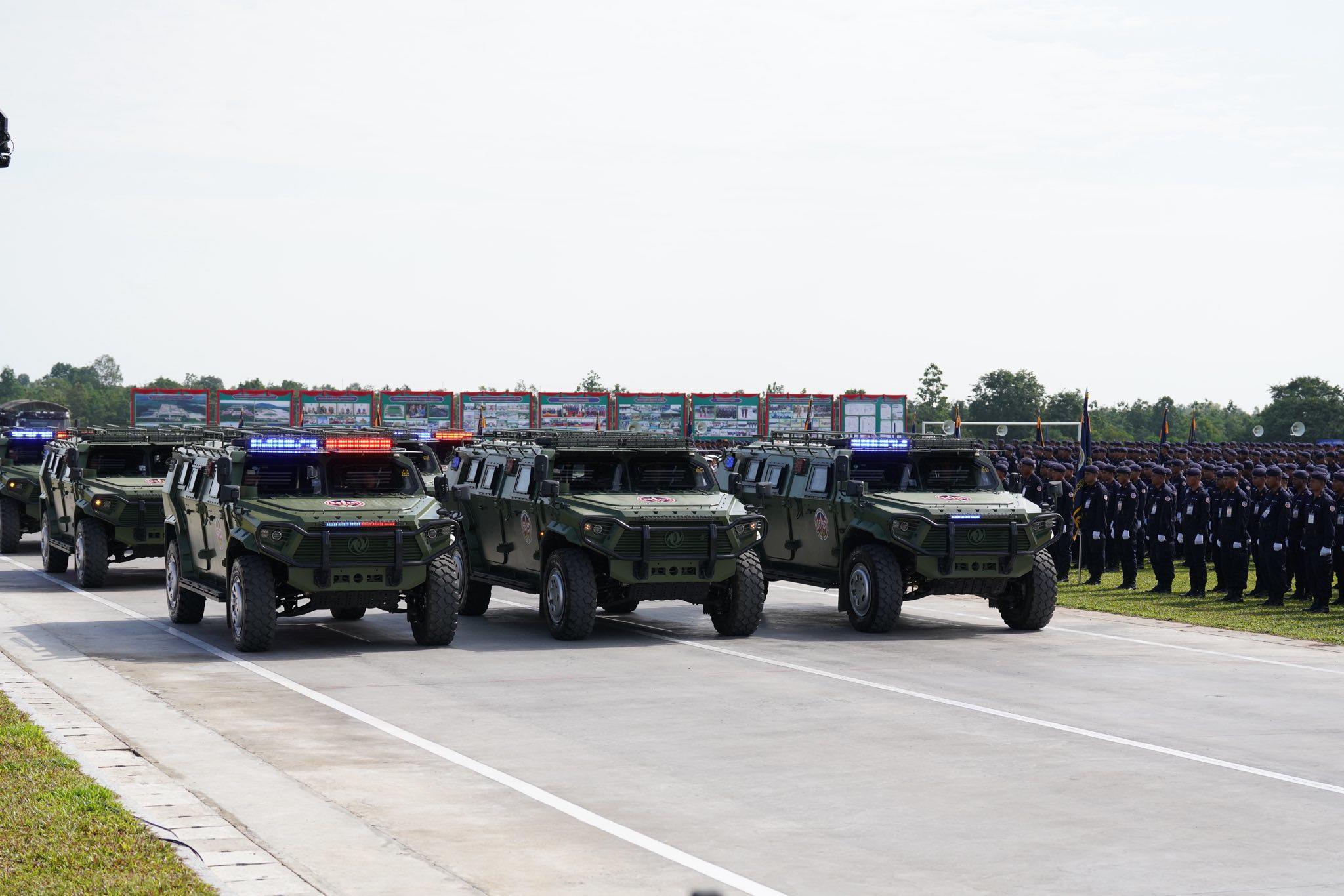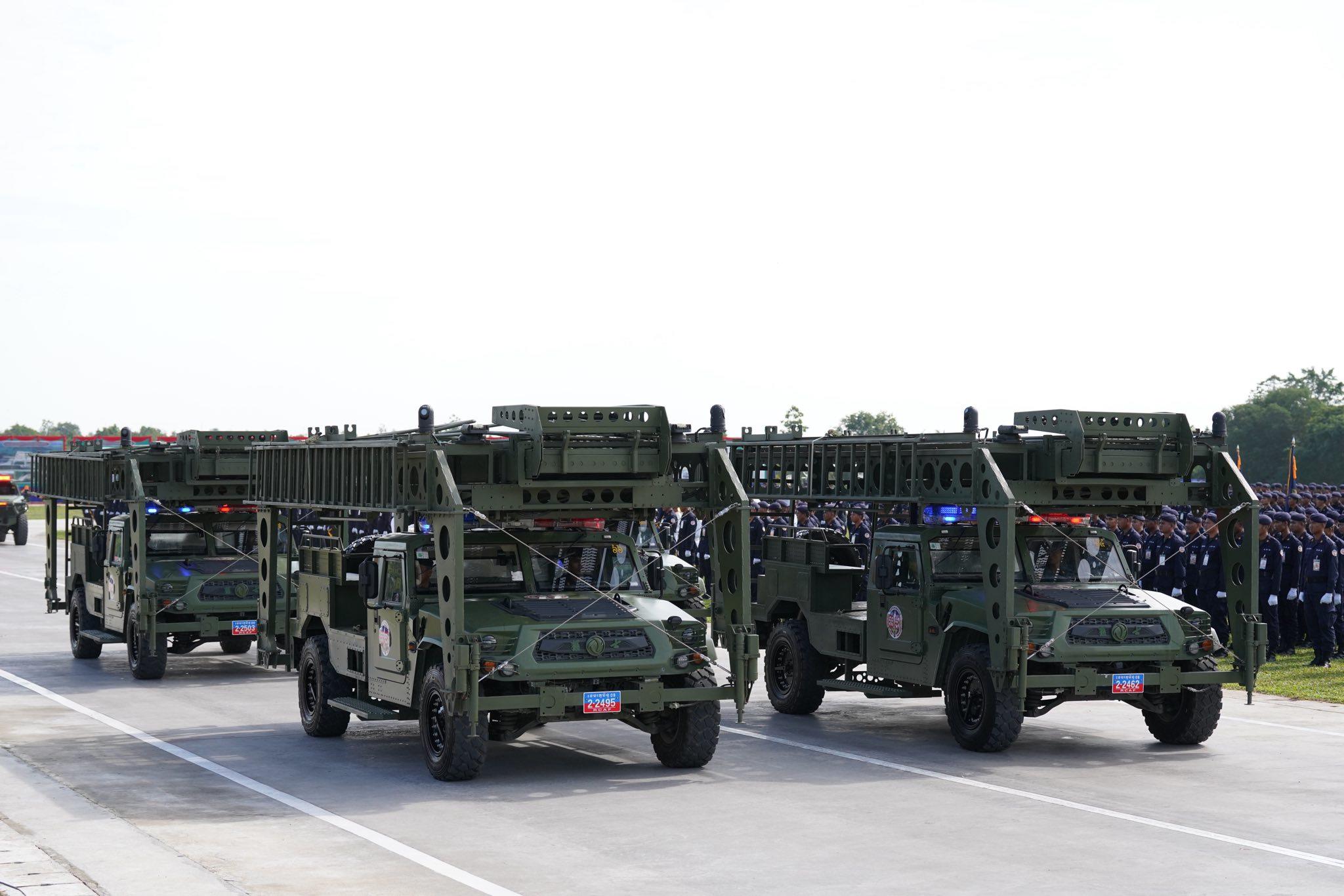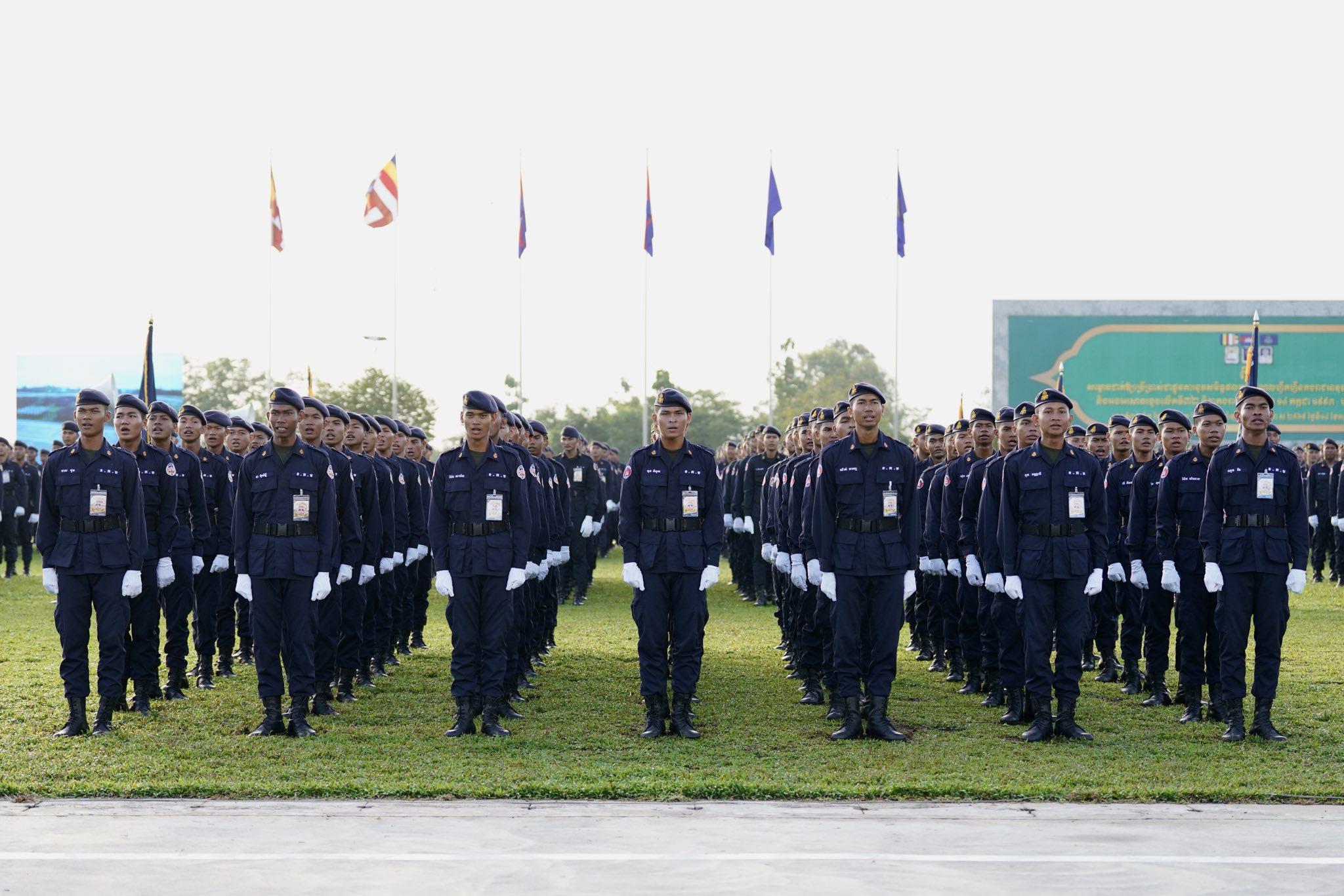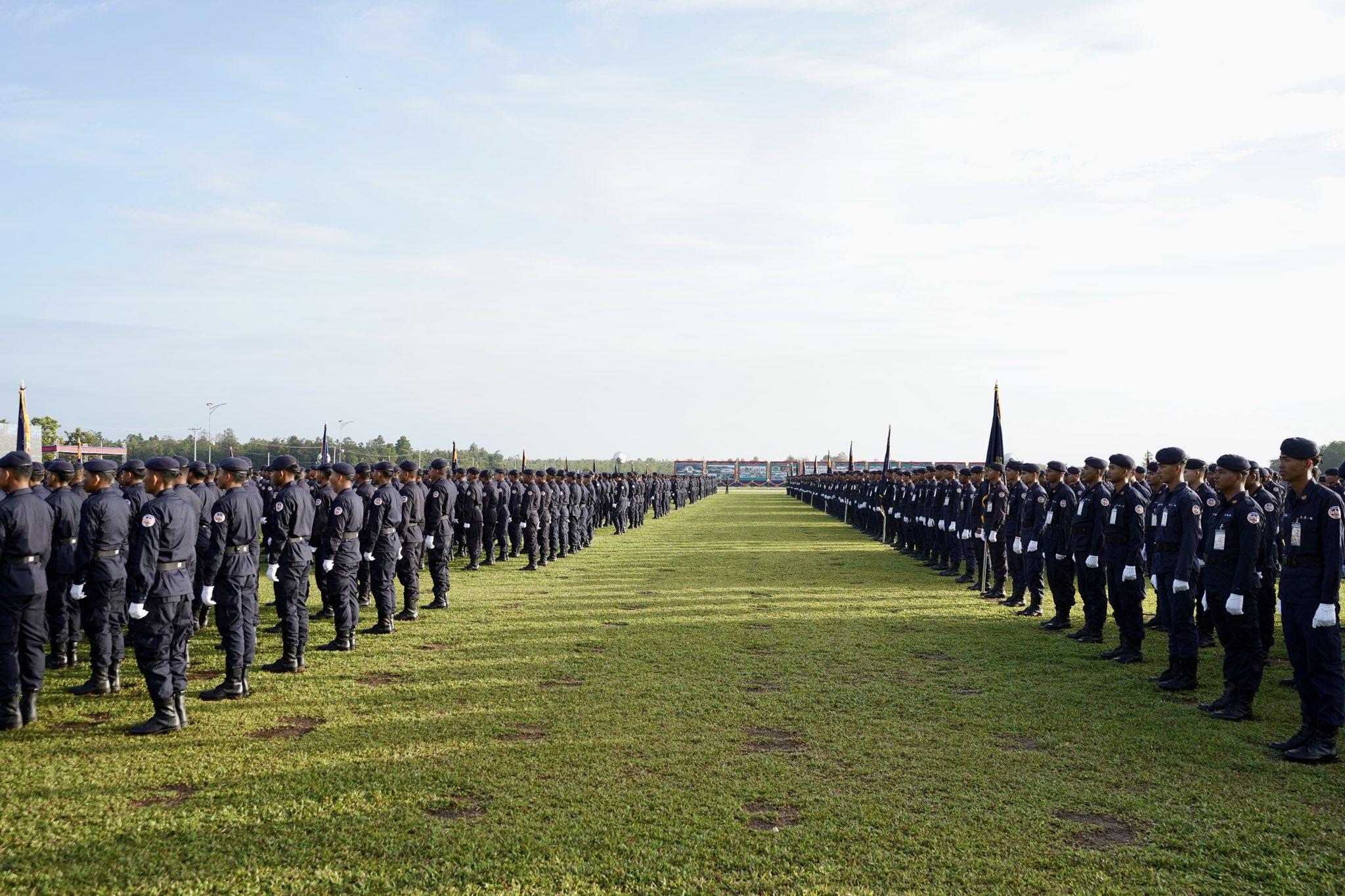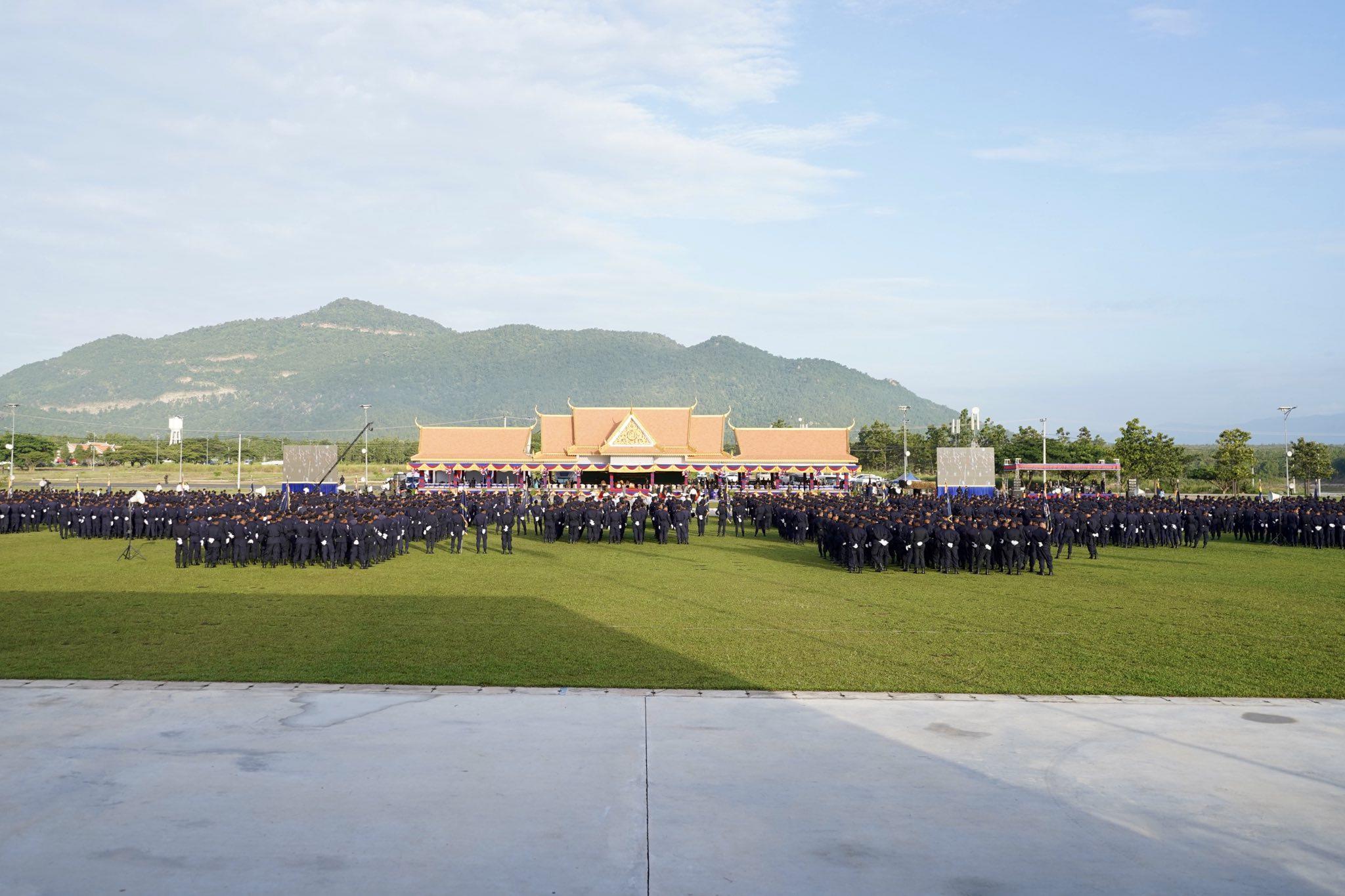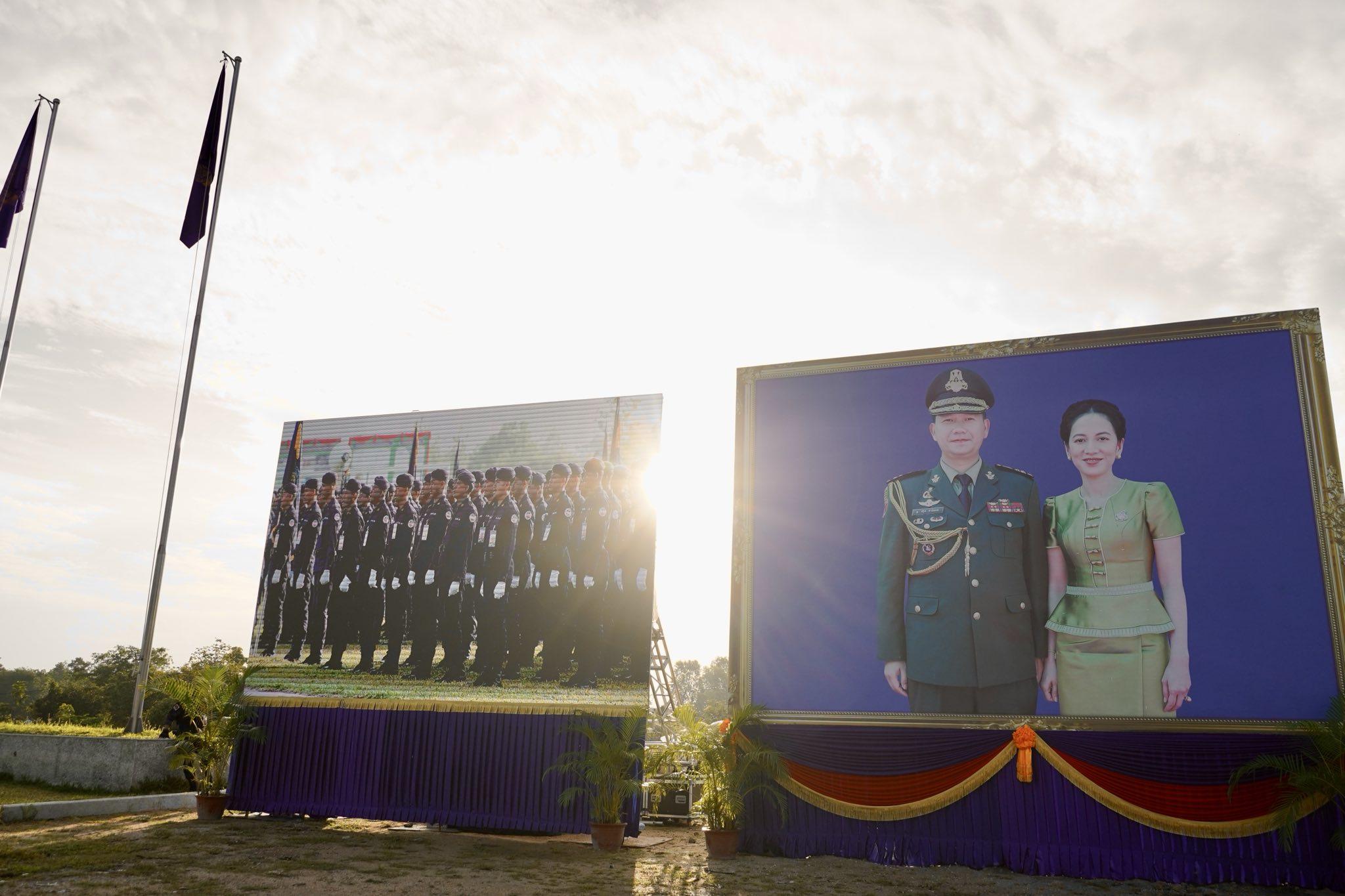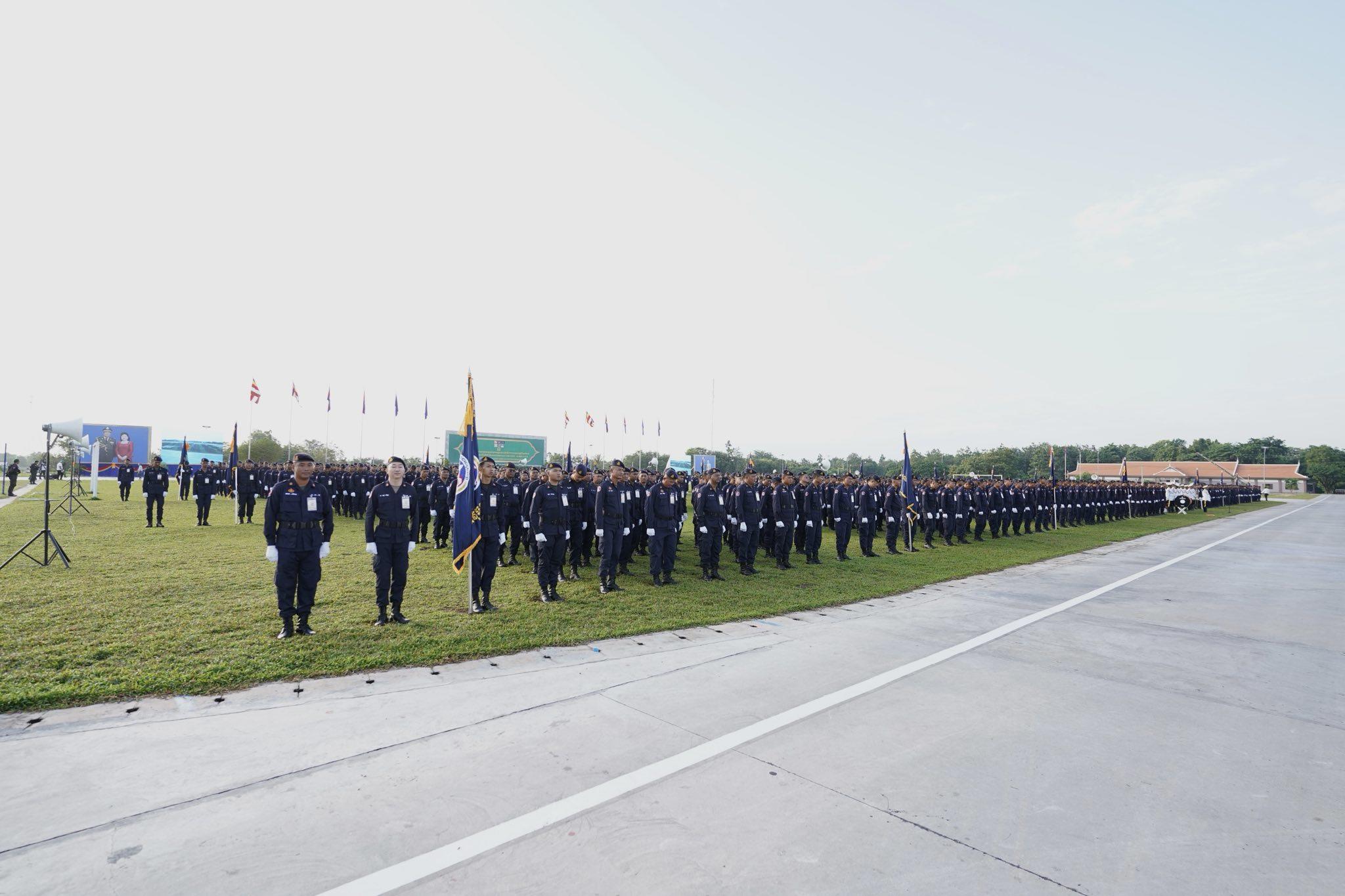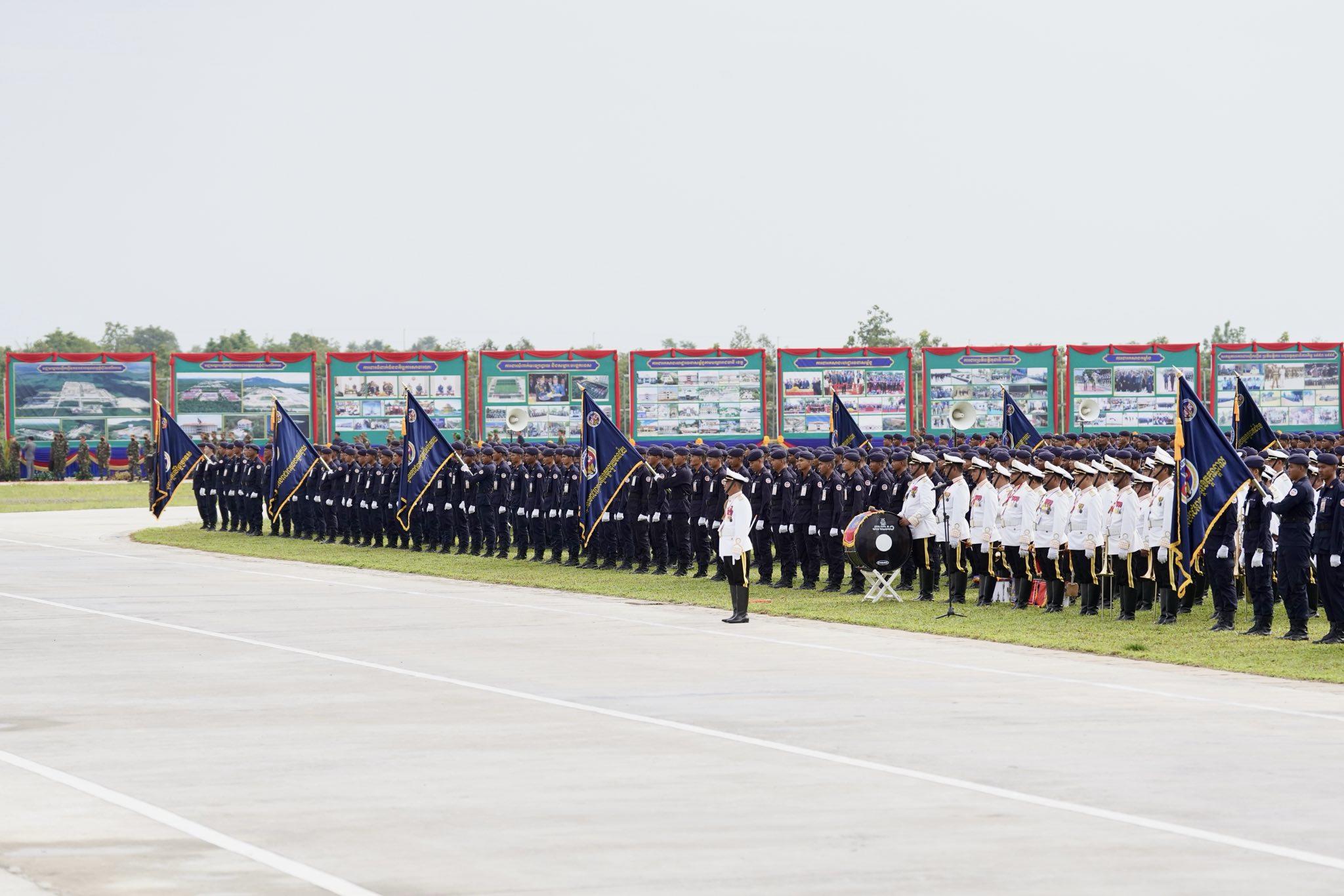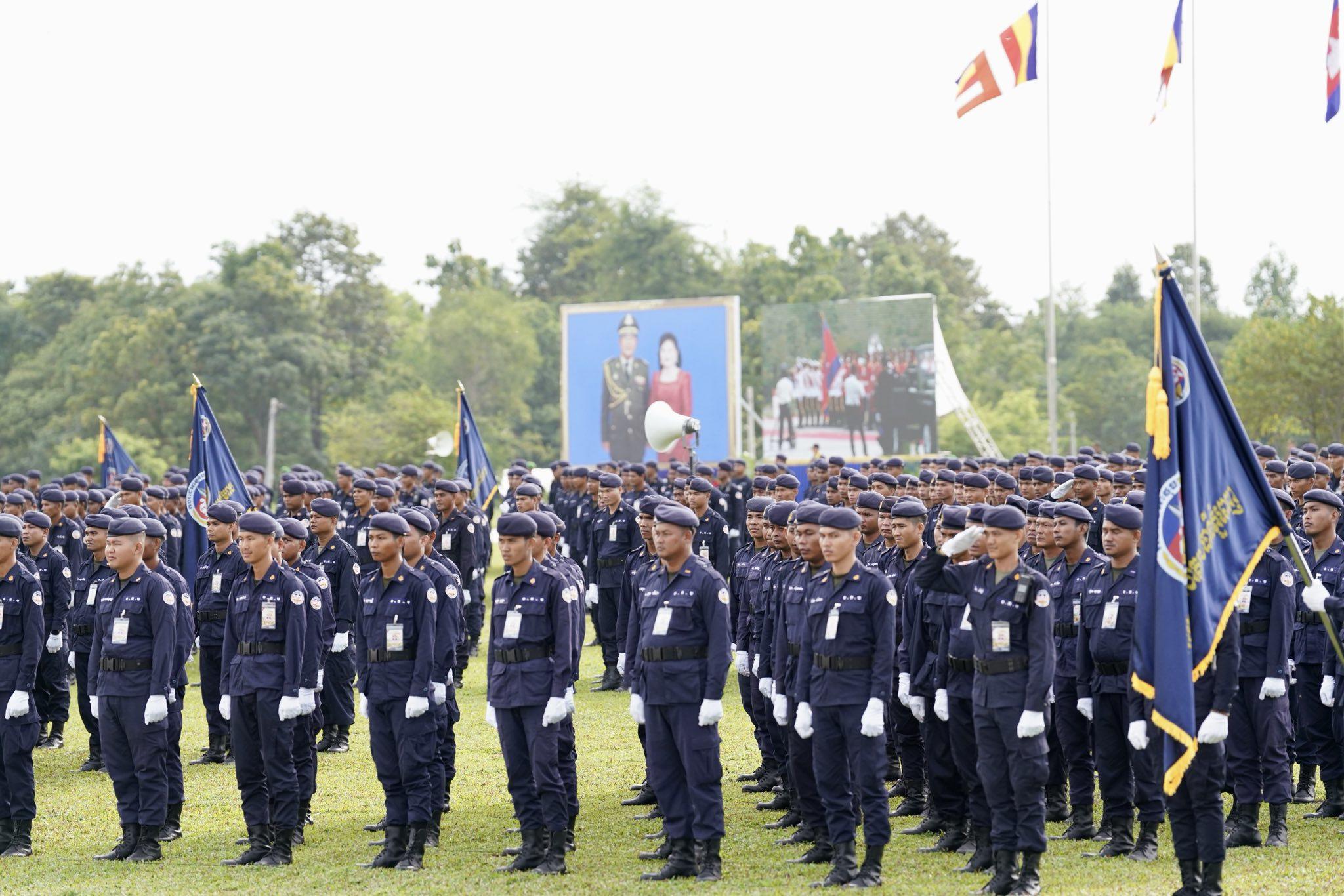(Kampong Chhnang): Cambodian Prime Minister Hun Manet reaffirmed that the Royal Government of Cambodia has not abandoned bilateral negotiation mechanisms with Thailand over the border dispute between the two countries, except for the four specific areas: Ta Moan Thom Temple, Ta Moan Tauch Temple, and Ta Krabei Temple, and the Emerald Triangle area. These areas must be resolved through the International Court of Justice (ICJ).
The premier spoke on Monday (Jul. 14) during the inauguration of achievements at the Royal Gendarmerie Training Centre (Phnom Chum Sen Reak Reay) coinciding with the 32nd anniversary celebration of the Royal Gendarmerie Day (14 July 1993 – 14 July 2025) in Kampong Chhnang Province.
Samdech Thipadei said that while Cambodia remains committed to resolving disputes peacefully, these specific cases reflect deep-rooted historical complexities. Therefore, the Royal Government maintains a clear and unwavering stance that the issues concerning the Ta Moan Thom Temple, Ta Moan Tauch Temple, and Ta Krabei Temple, and the Emerald Triangle area, must be submitted to the ICJ for resolution.
The premier added that Cambodia’s position in resolving border issues includes demarcation and clarification of border posts with neighbouring countries. The government continues to uphold peace, friendship, and good cooperation with all neighbouring states, including Thailand. Cambodia also remains engaged with Thailand to push forward with demarcating the remaining undefined border areas, in accordance with official agreements, including the 2000 Memorandum of Understanding (MoU), which is being implemented by the Joint Boundary Commission (JBC). However, the four mentioned areas are exceptions and must be resolved by the ICJ.
“Indeed, many friends have asked whether Cambodia has withdrawn from the bilateral mechanism in resolving the border dispute with Thailand. The answer is no. Cambodia continues to use the bilateral JBC mechanism and the 2000 MoU to resolve the 800 km of borders with Thailand, except for the four contested areas, which we have submitted to the ICJ to avoid ambiguity and minimize the risk of armed conflict,” the premier underscored.
Samdech Thipadei emphasised that Cambodia still welcomes cooperation with Thailand to complete border demarcation and the placement of boundary markers, in accordance with the 2000 MoU signed on 14 June 2000, regarding the land boundary between the Royal Governments of Cambodia and Thailand, implemented by the JBC. The four disputed areas must go to the ICJ because Thailand has already claimed ownership of those territories, even publicly with companies like Google.
As for the Royal Government’s decision to bring these issues before the ICJ, Prime Minister Hun Manet explained that bilateral negotiation is not viable because Thailand maintains its claim over those territories, even using armed clashes in the past, as witnessed in 2008 and 2011.
On the occasion, Samdech Thipadei stressed that currently, the risk of renewed military clashes remains high if no mutually acceptable solution is found. This dispute could continue to impact future generations, not only among the military but also civilians living near the contested areas.
Prime Minister Hun Manet concluded by underscoring Cambodia’s unwavering position to resolve the border disputes with Thailand peacefully, based on international law and through legal mechanisms such as the ICJ, with the ultimate goal of transforming the borders into zones of peace, friendship, cooperation, and development.
=FRESH NEWS
